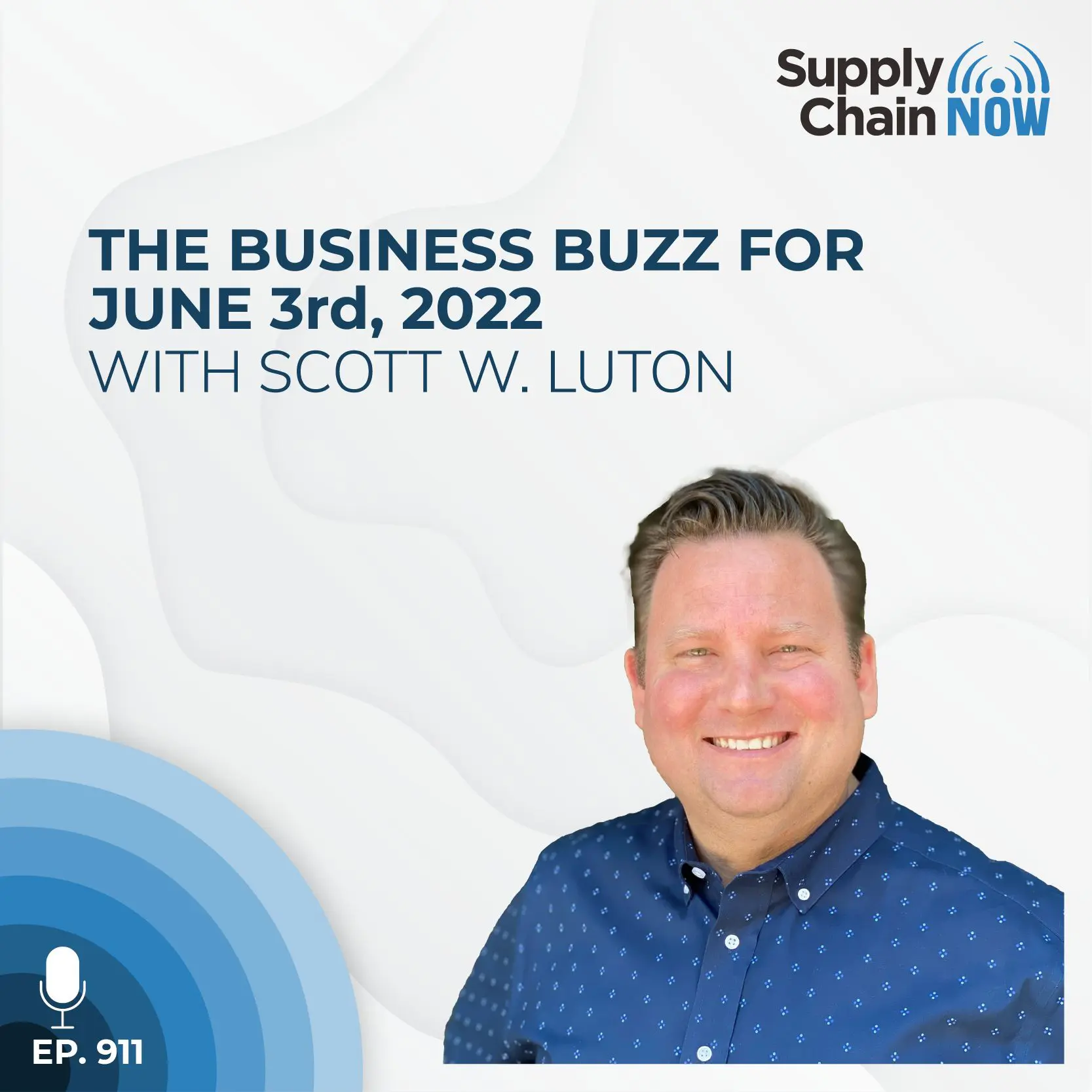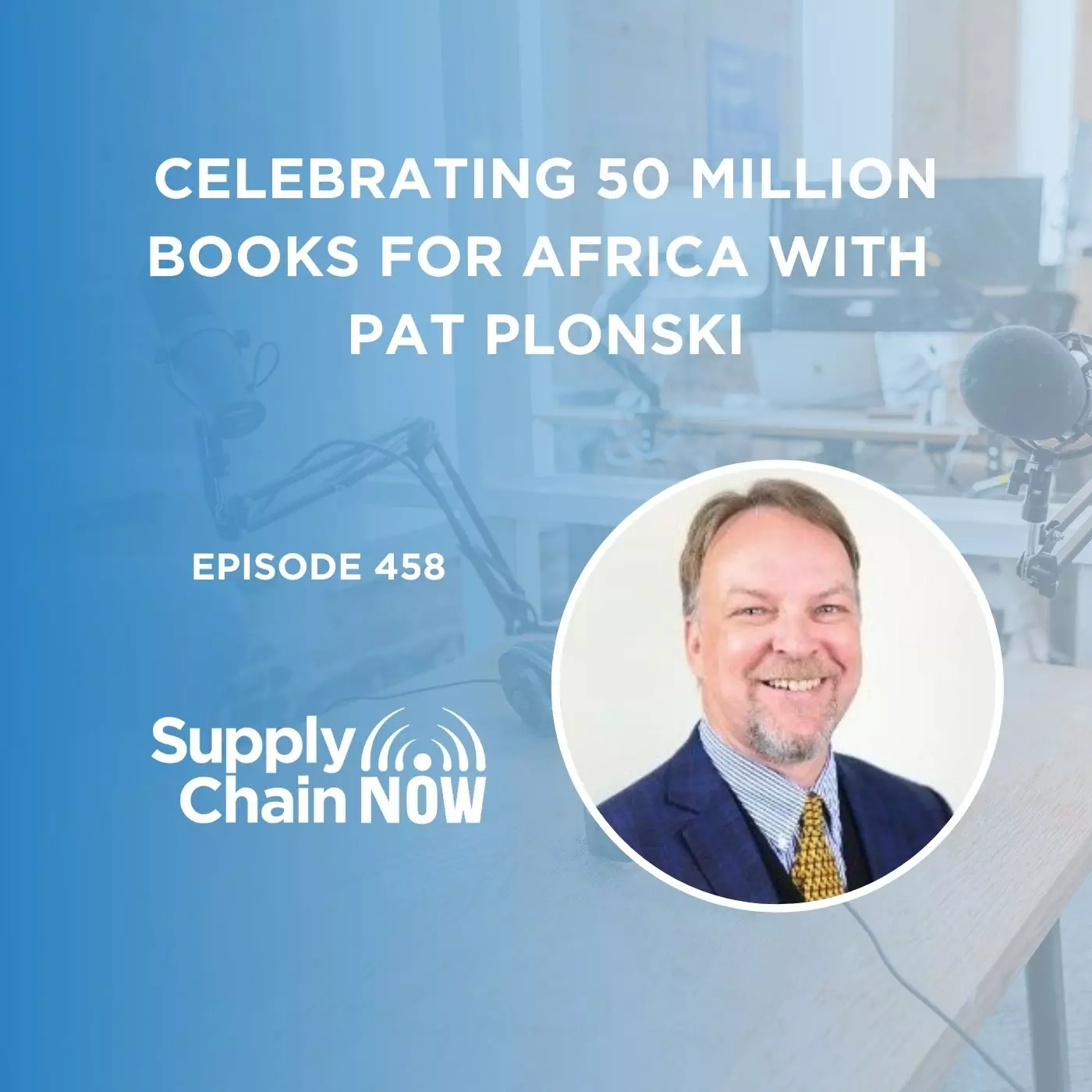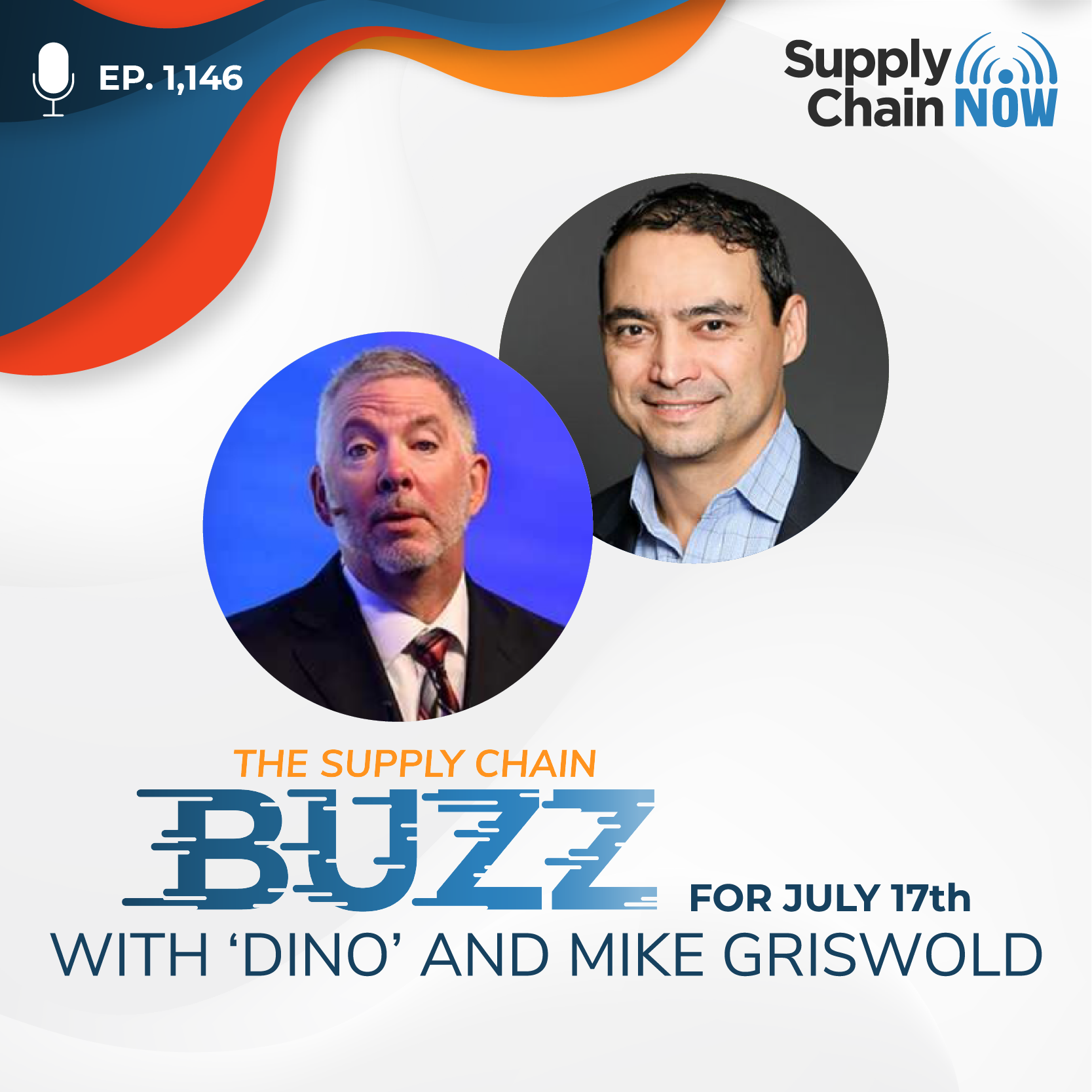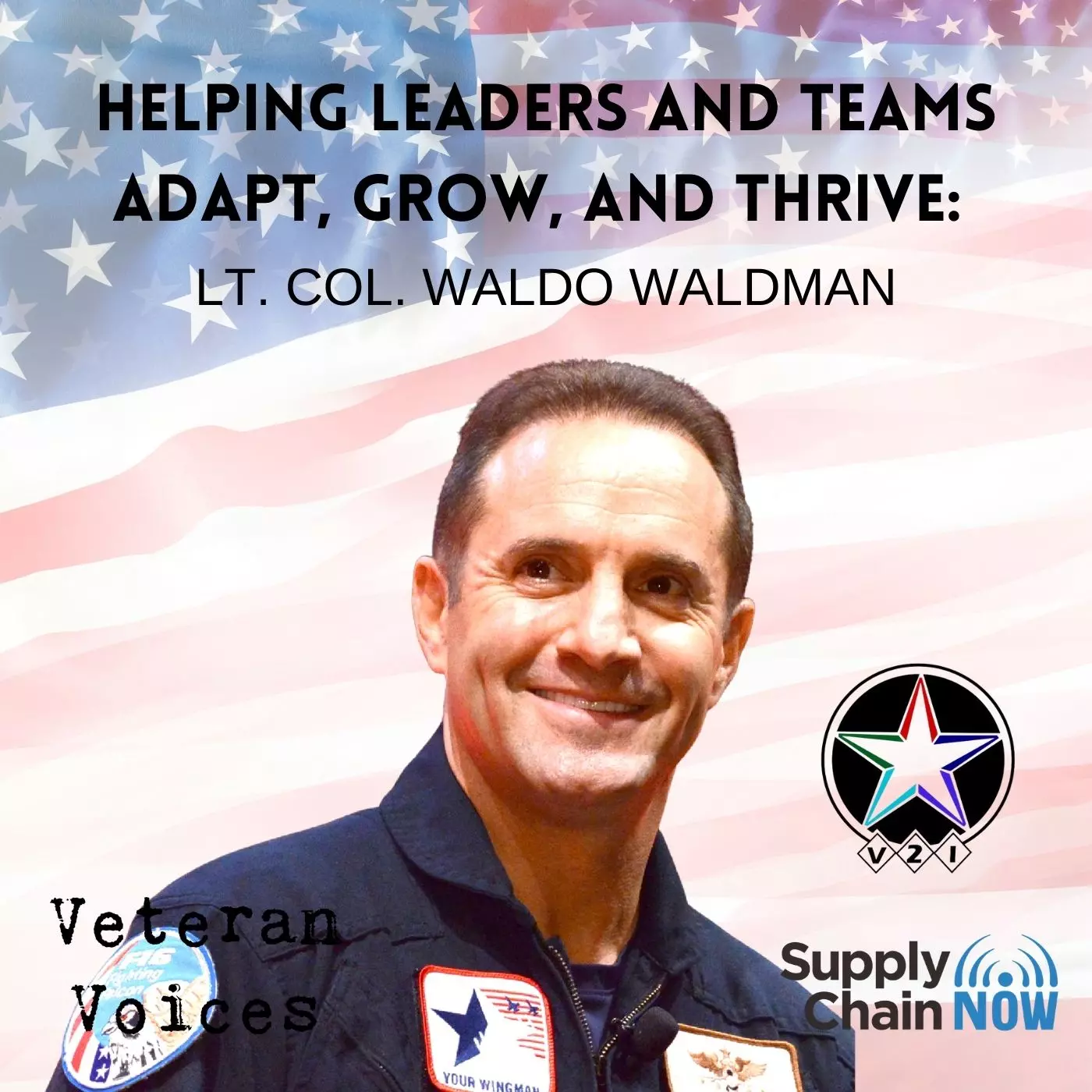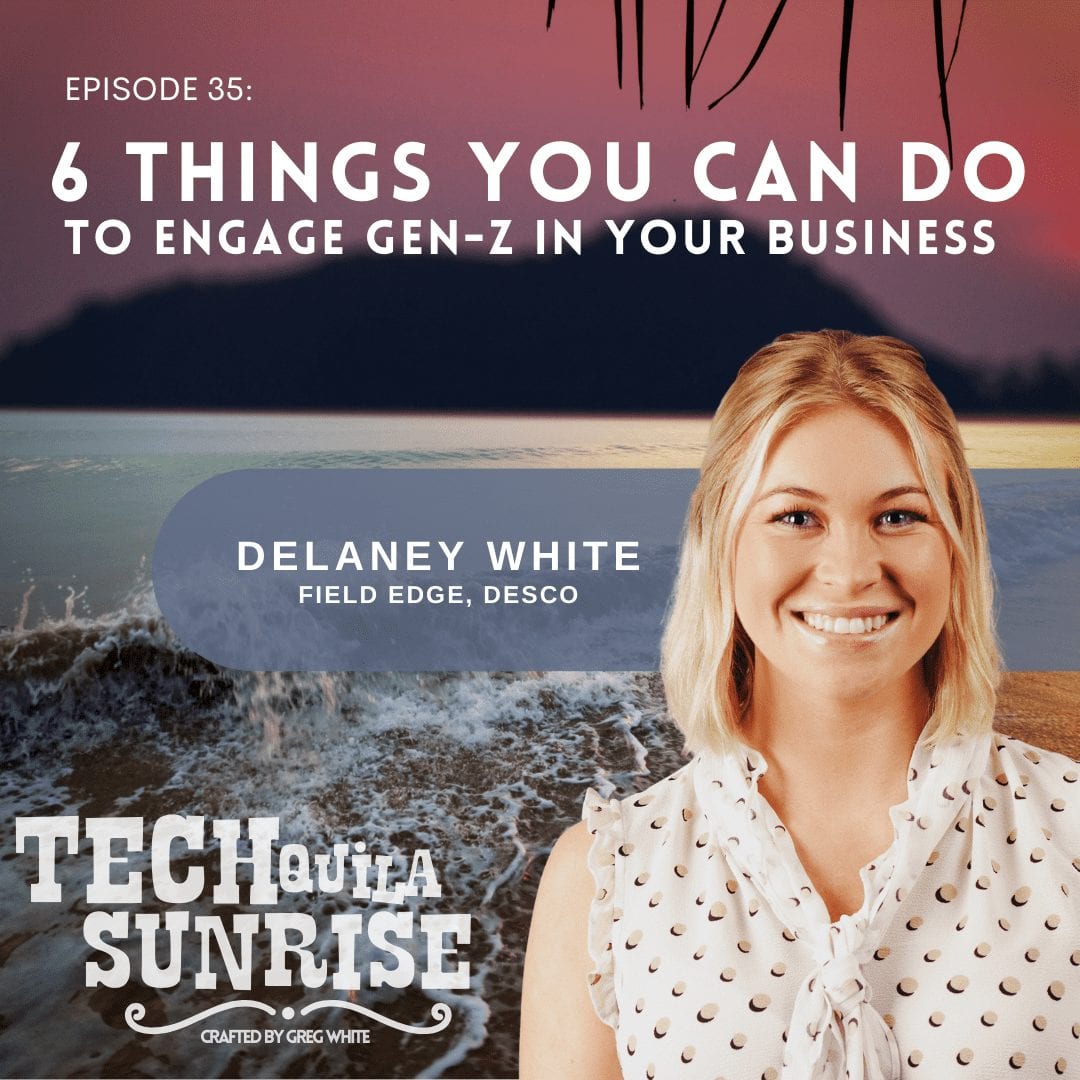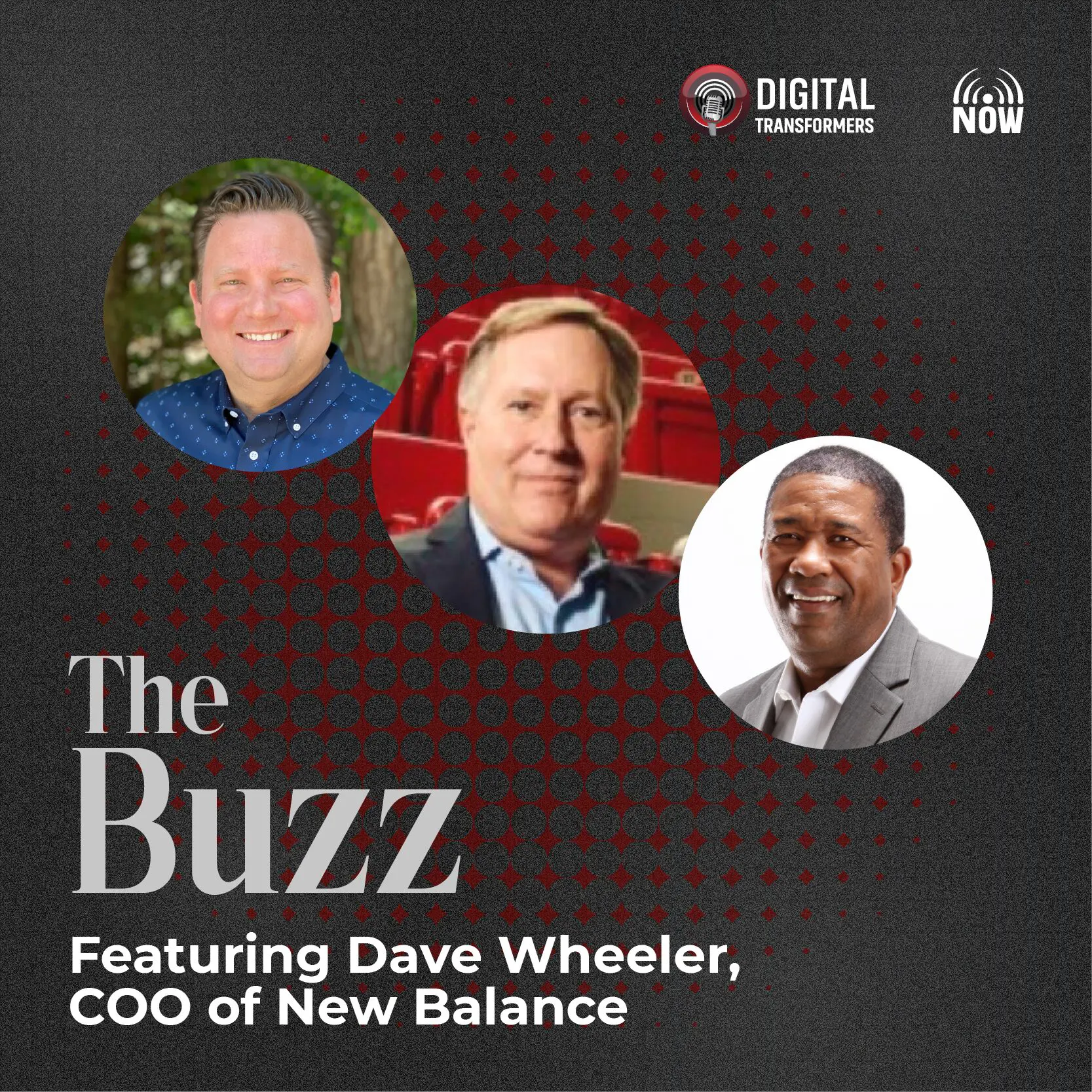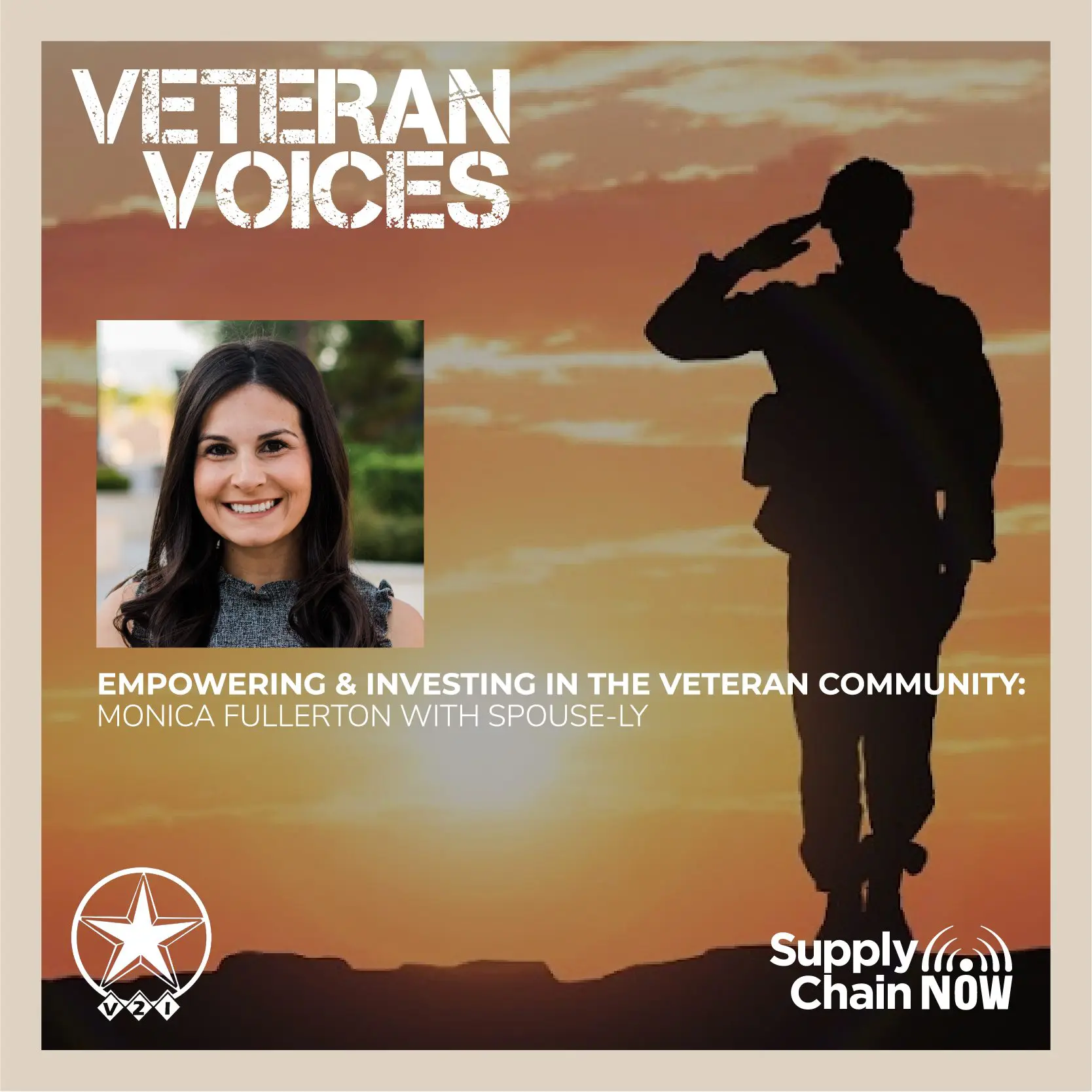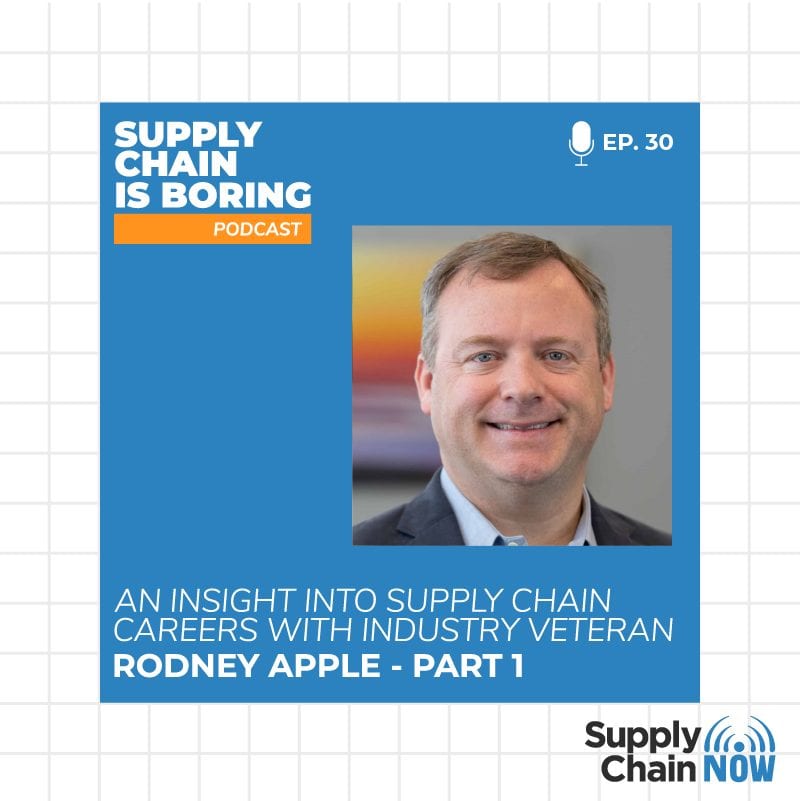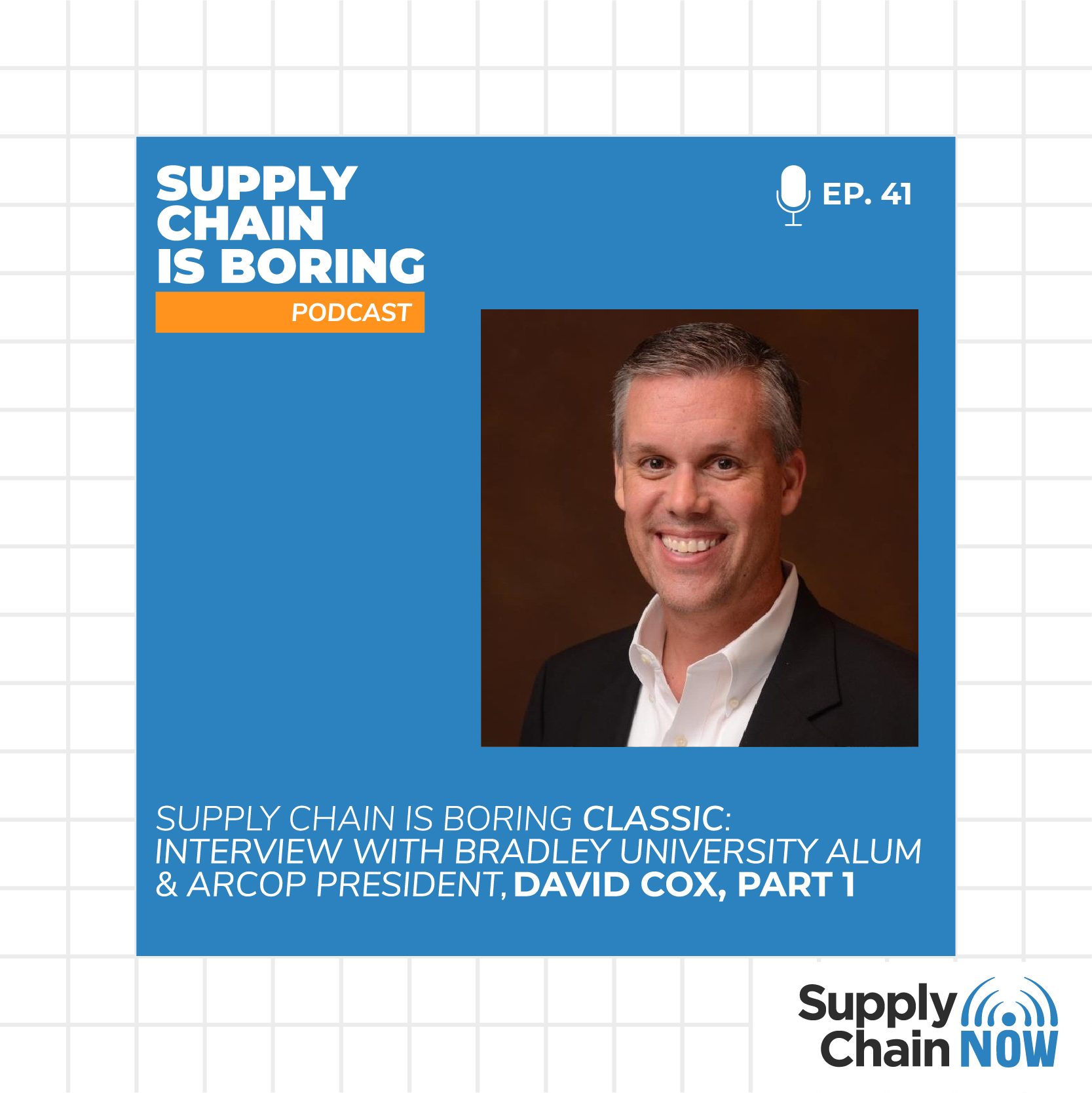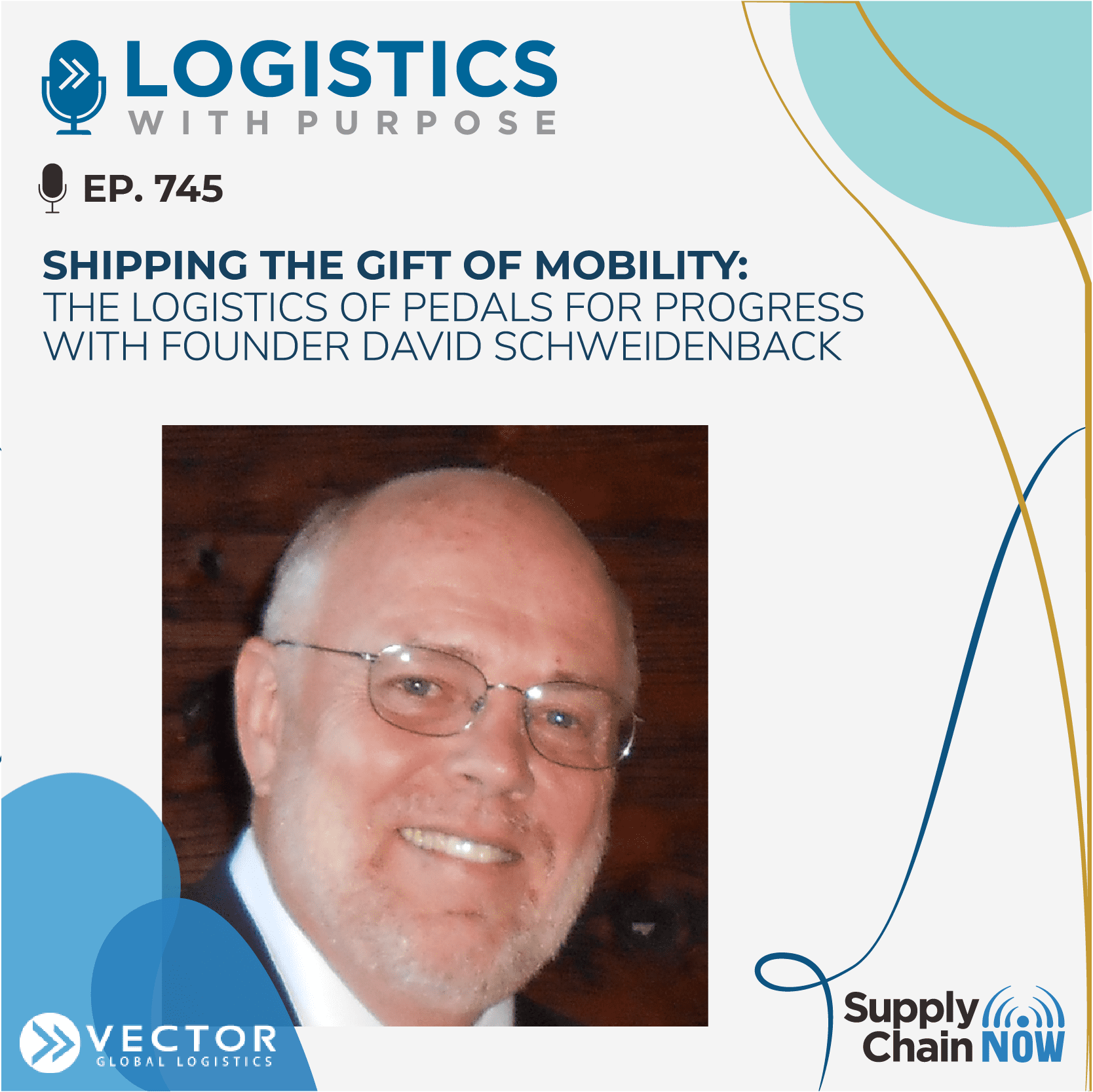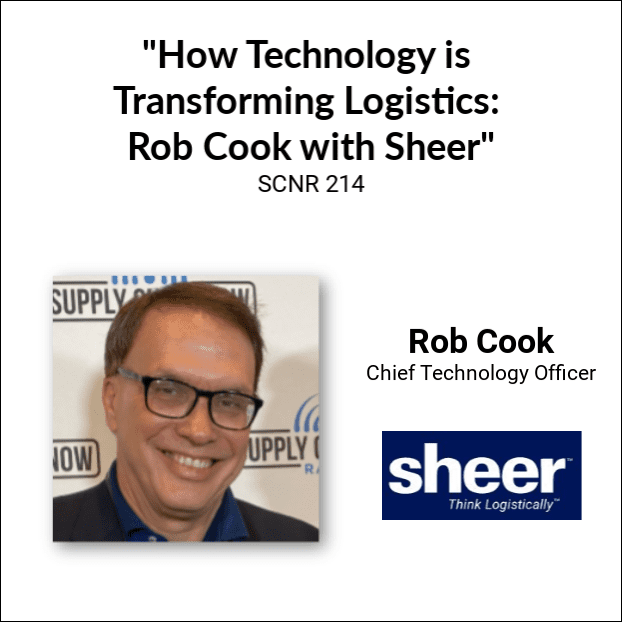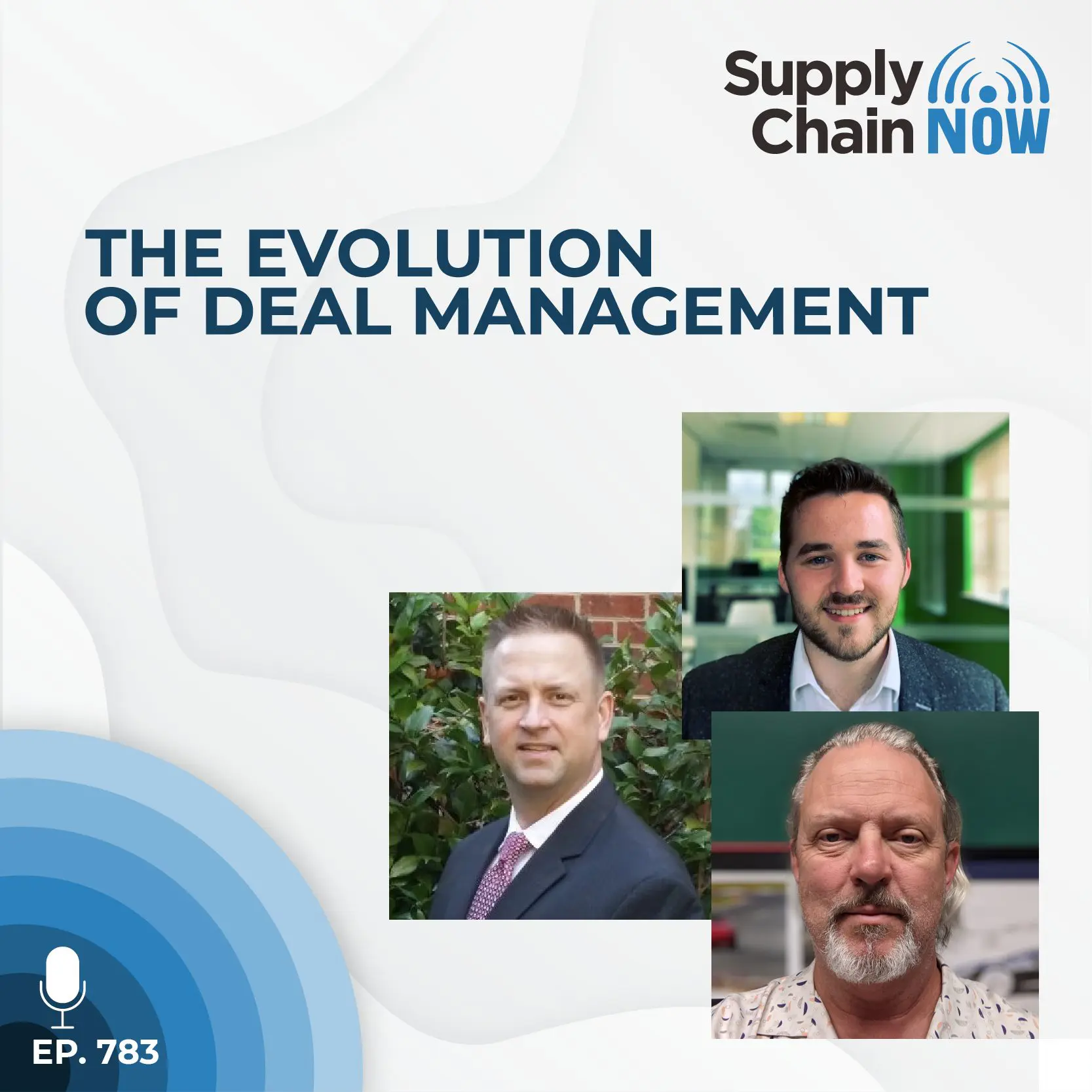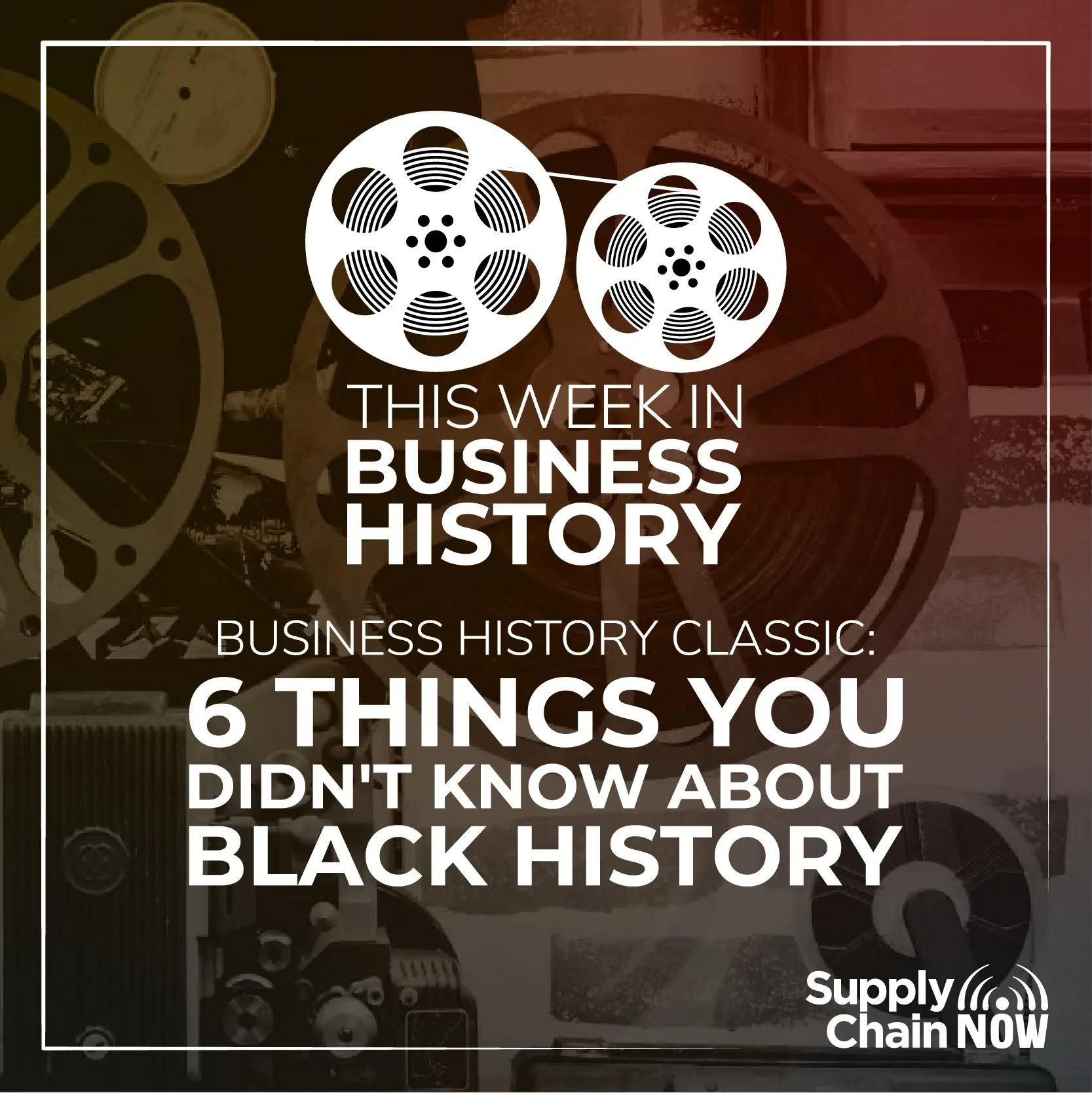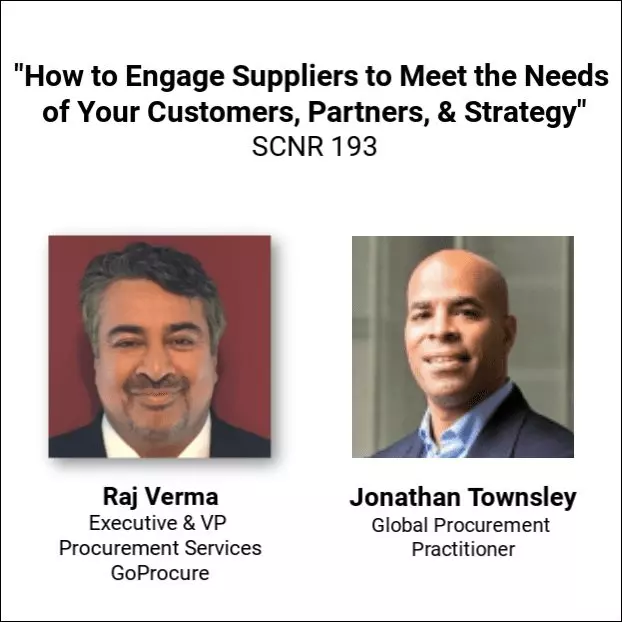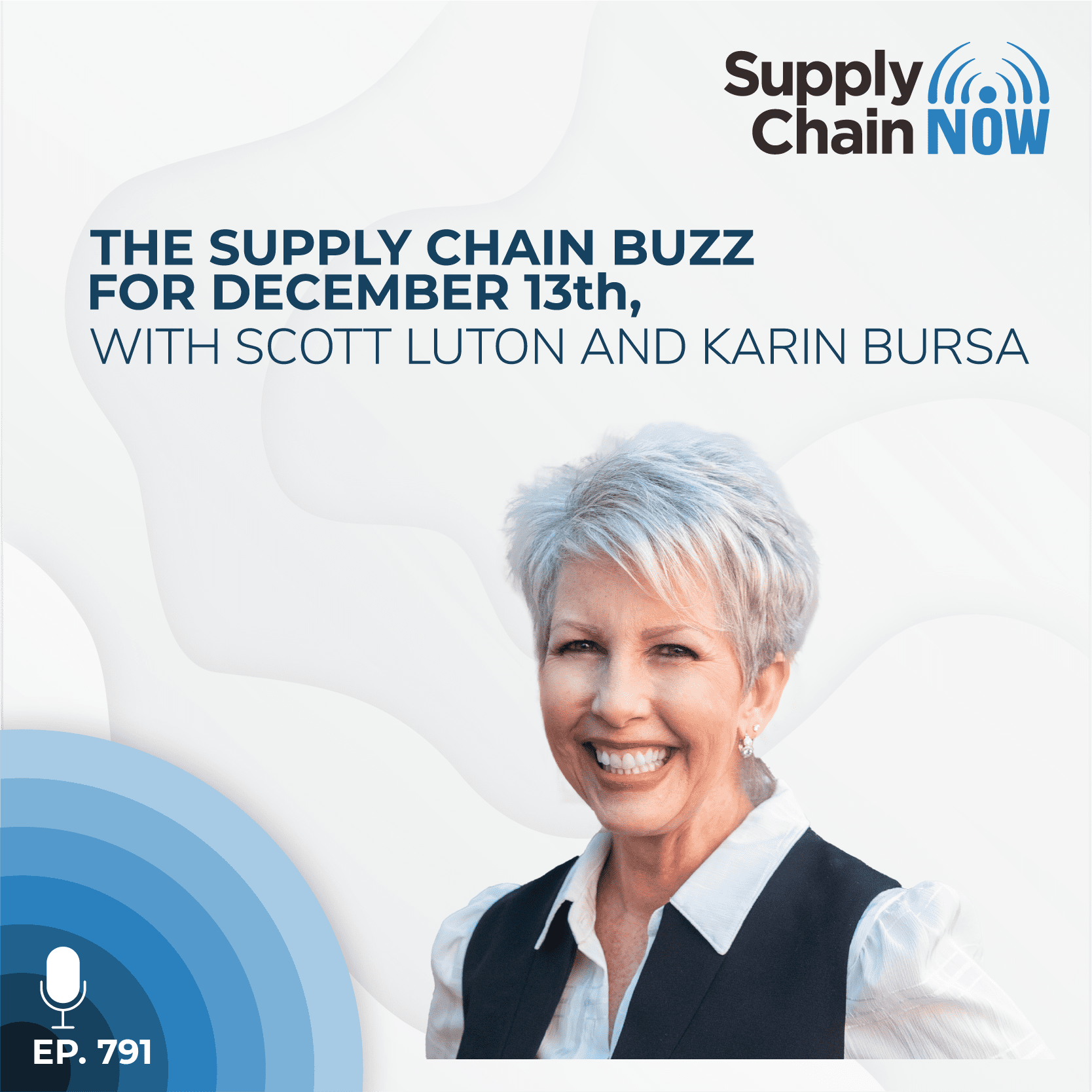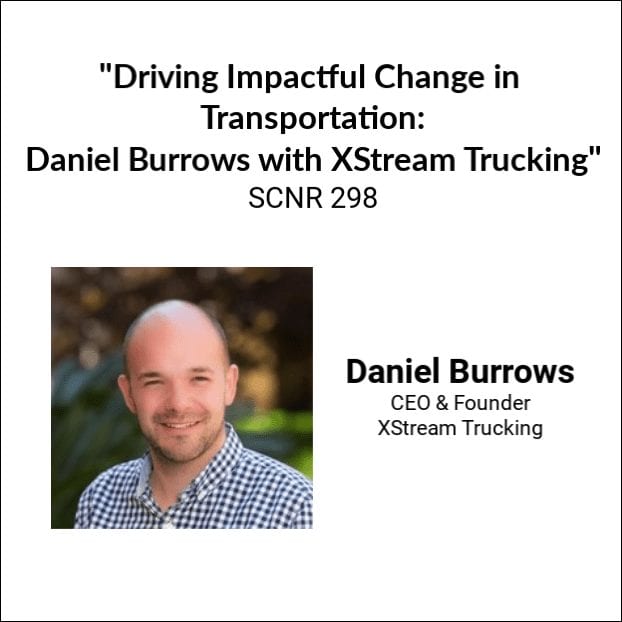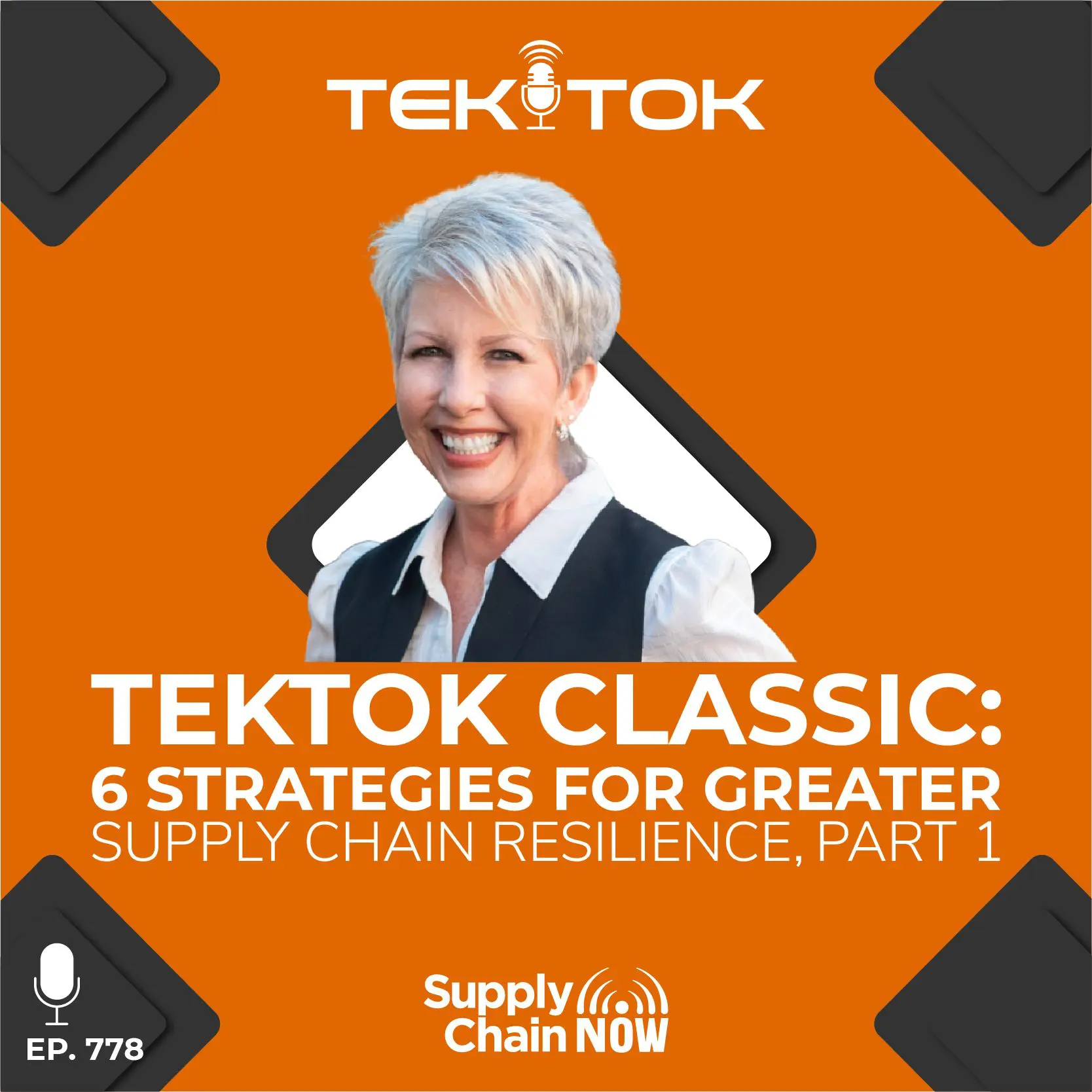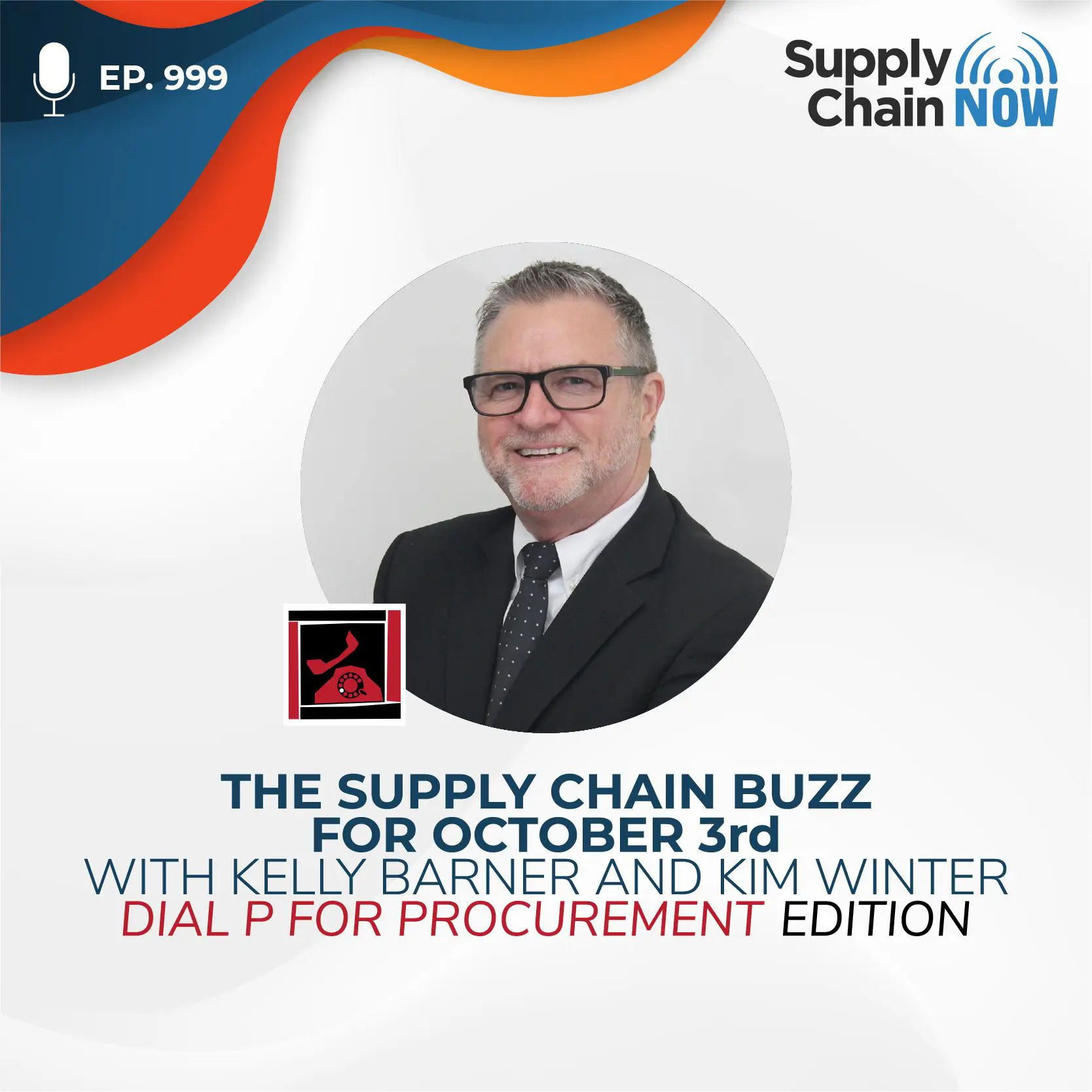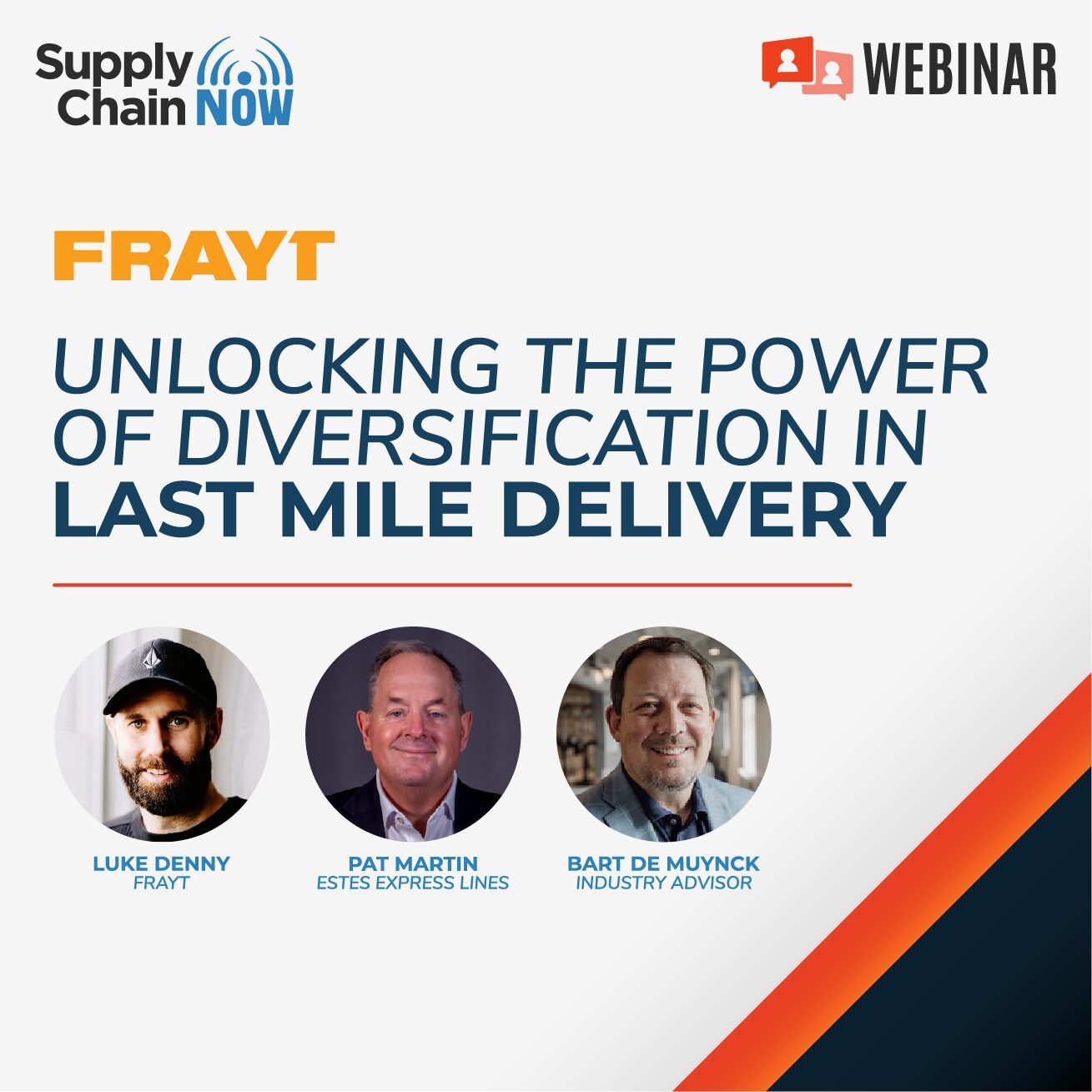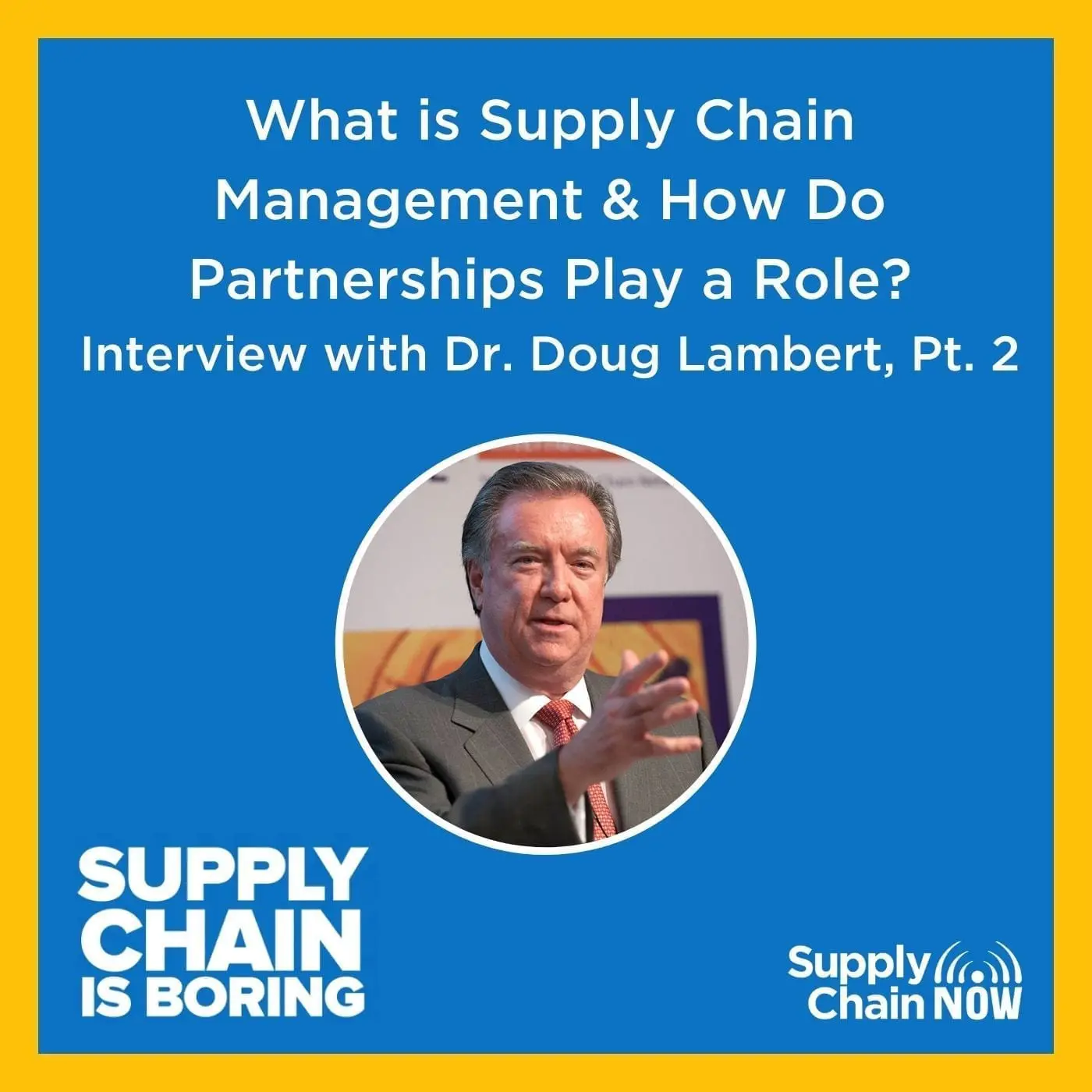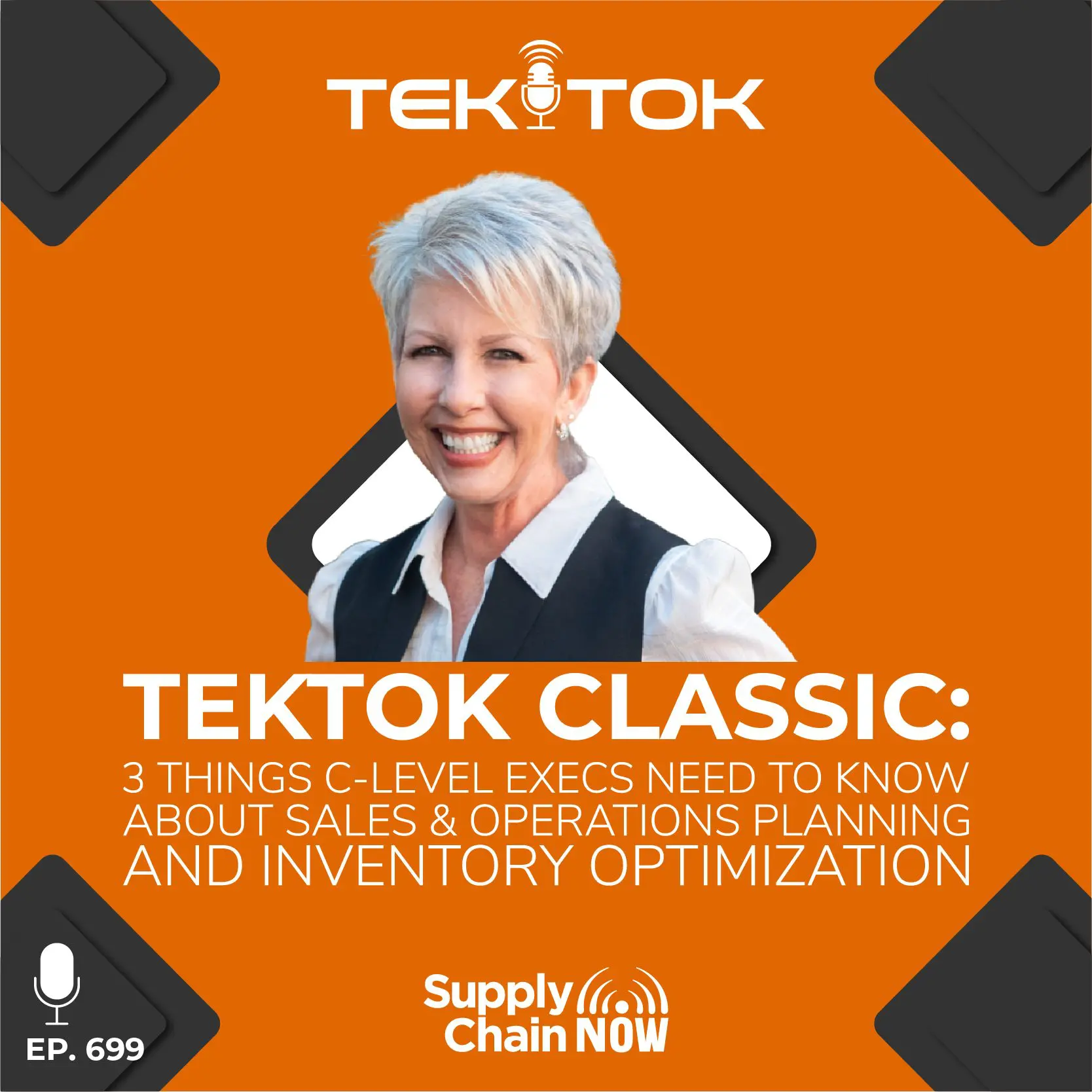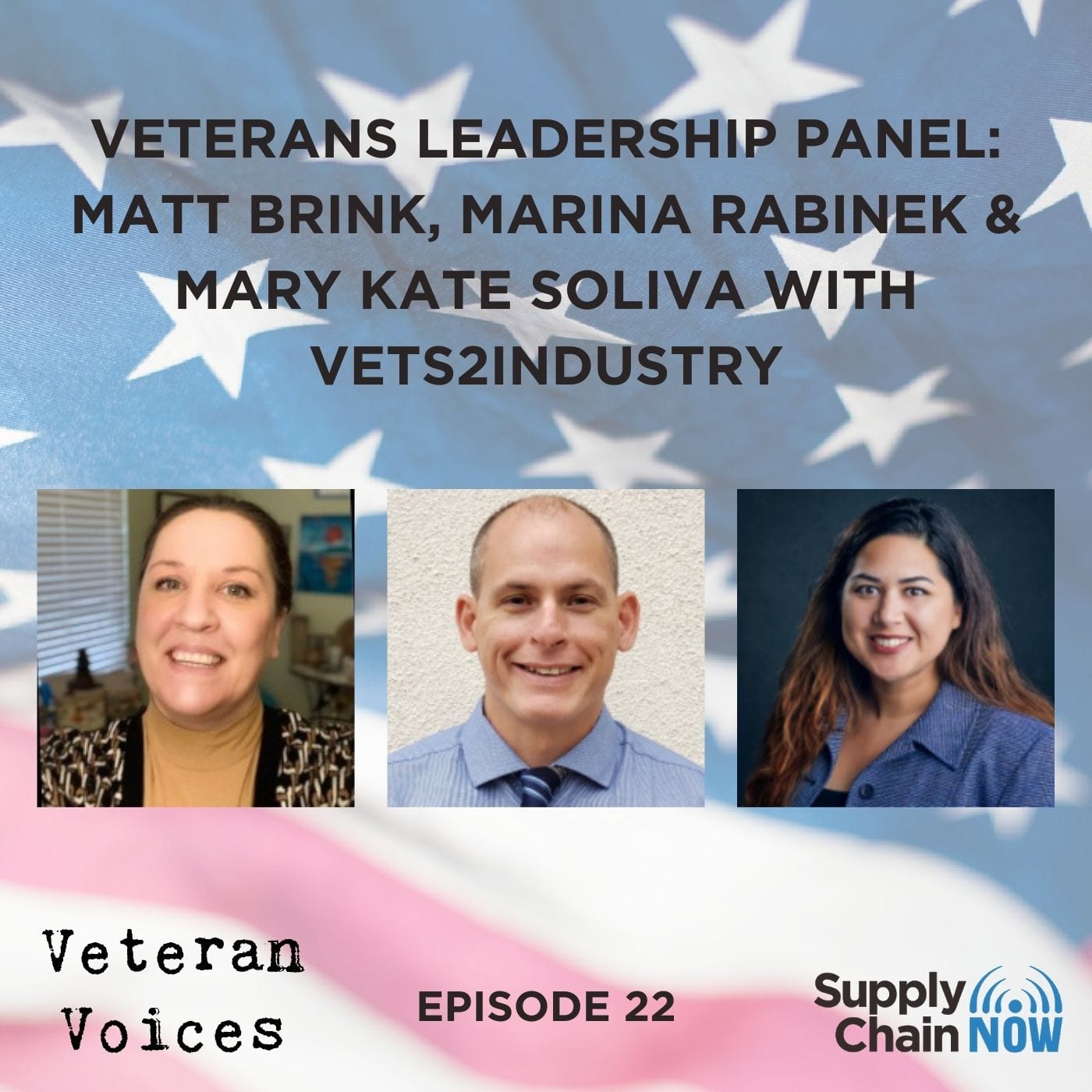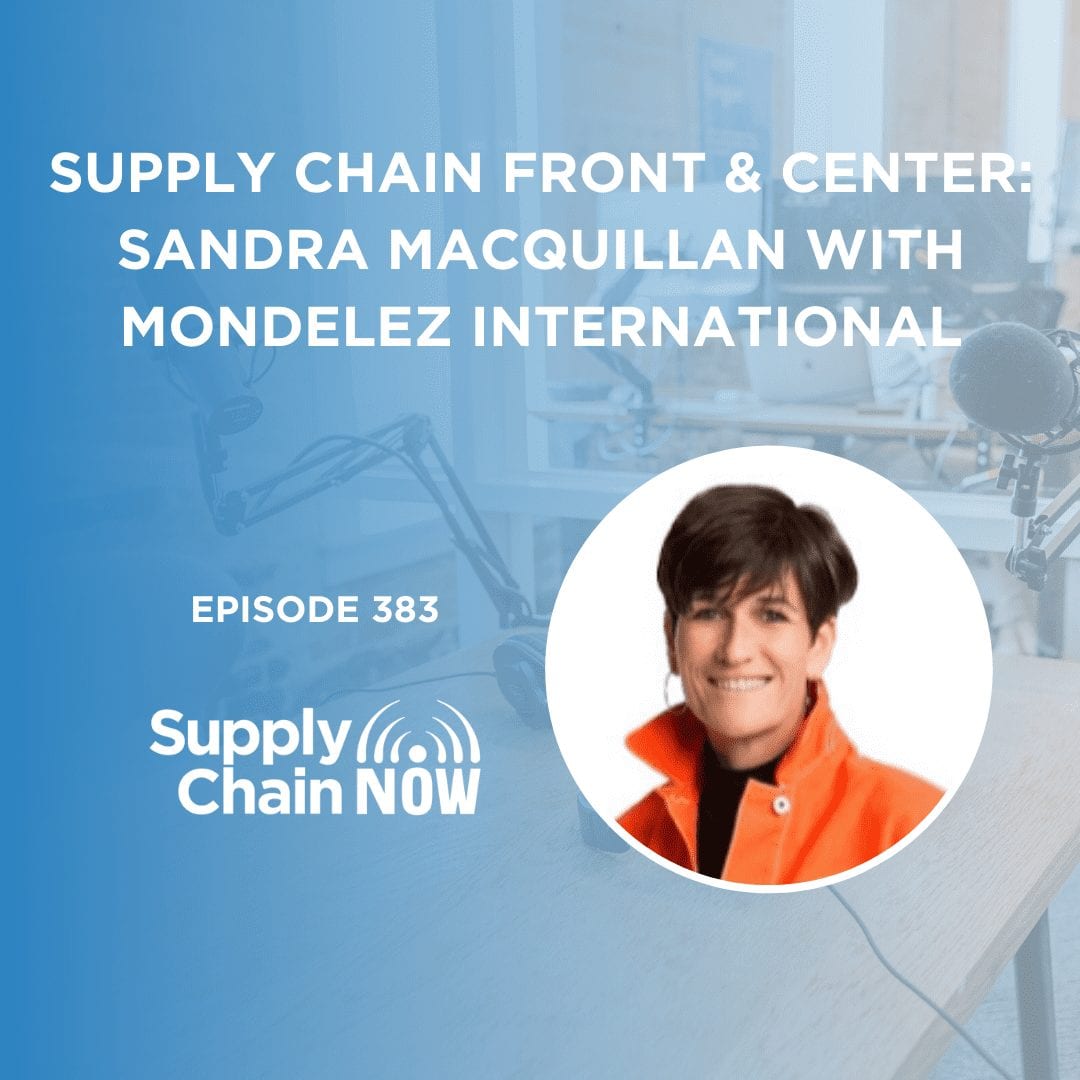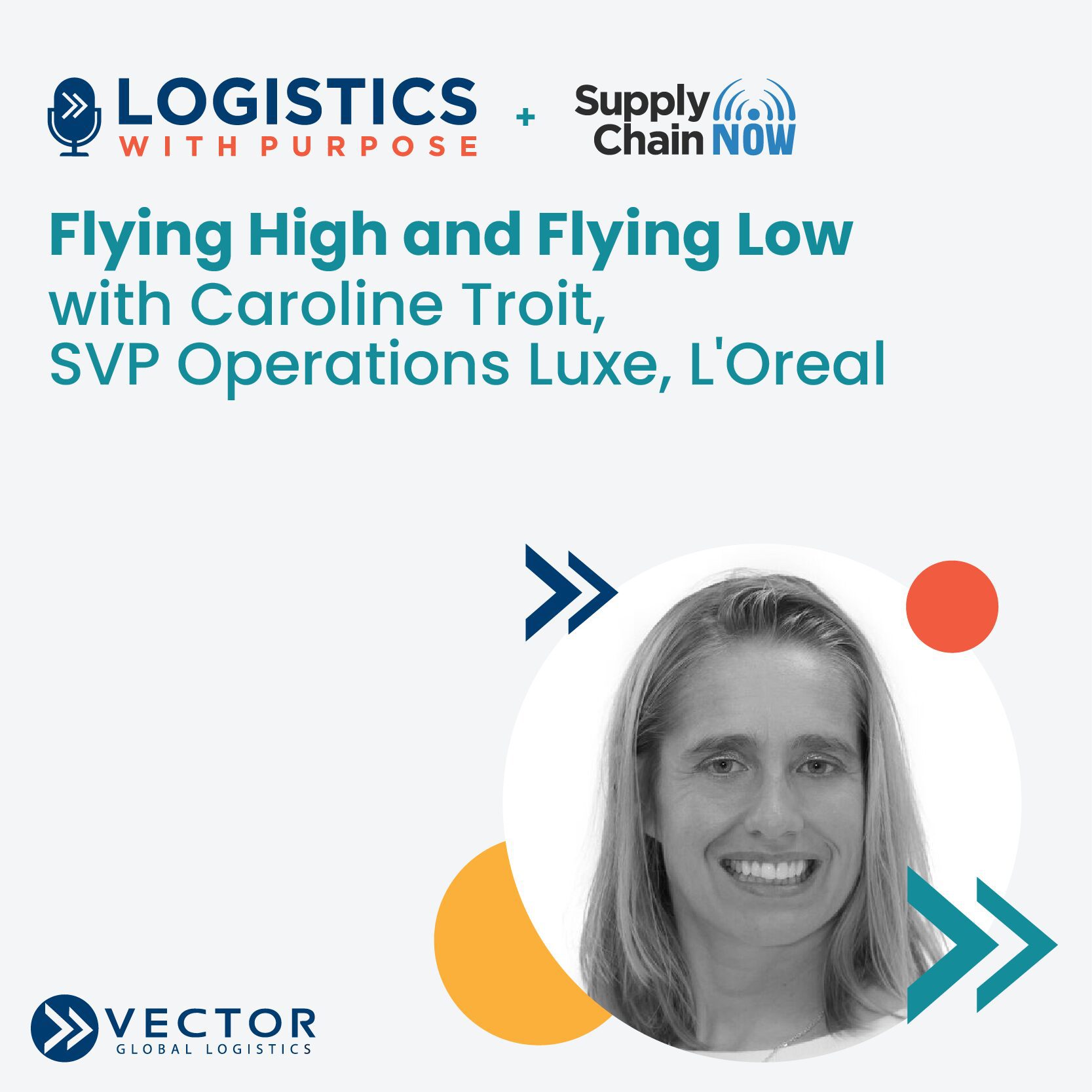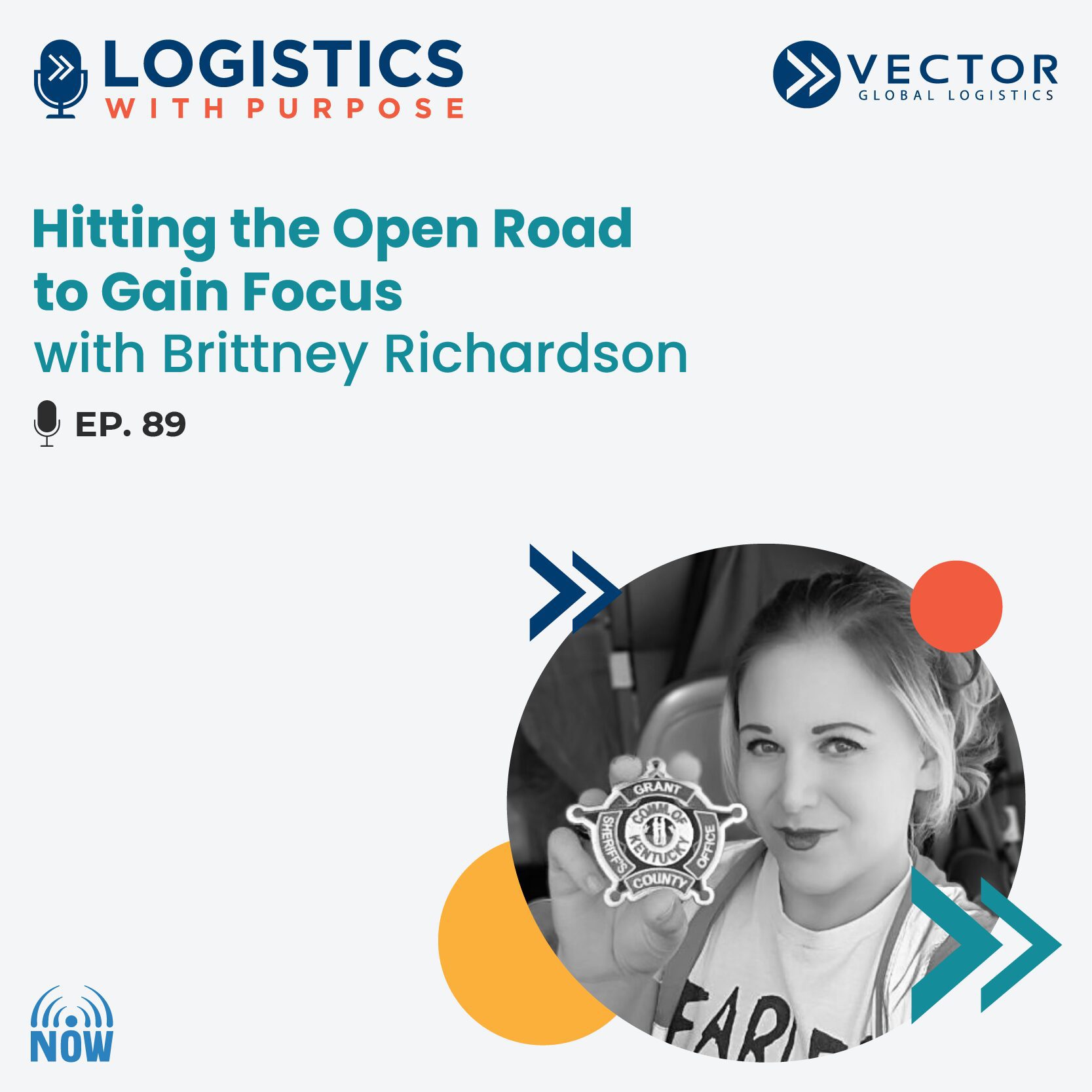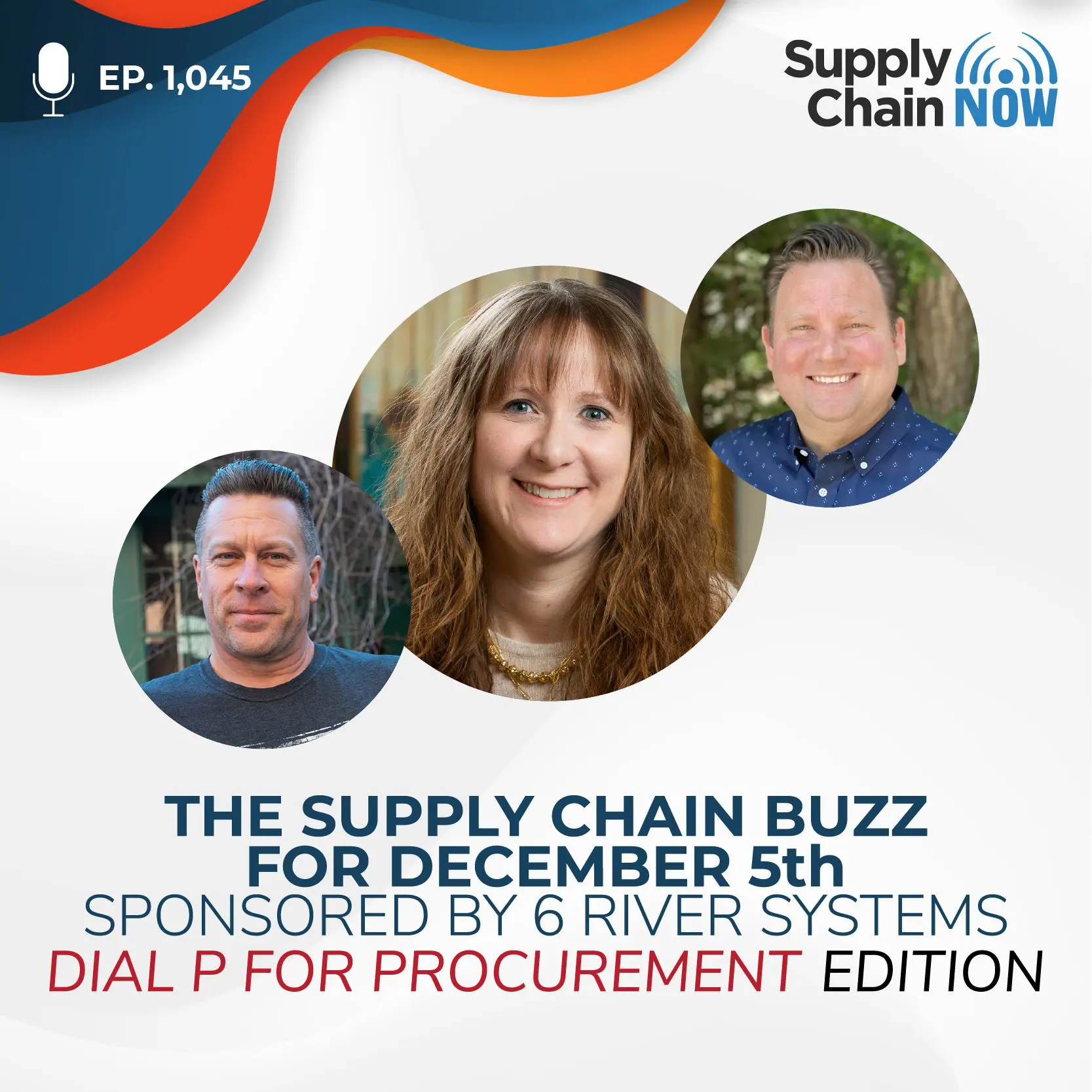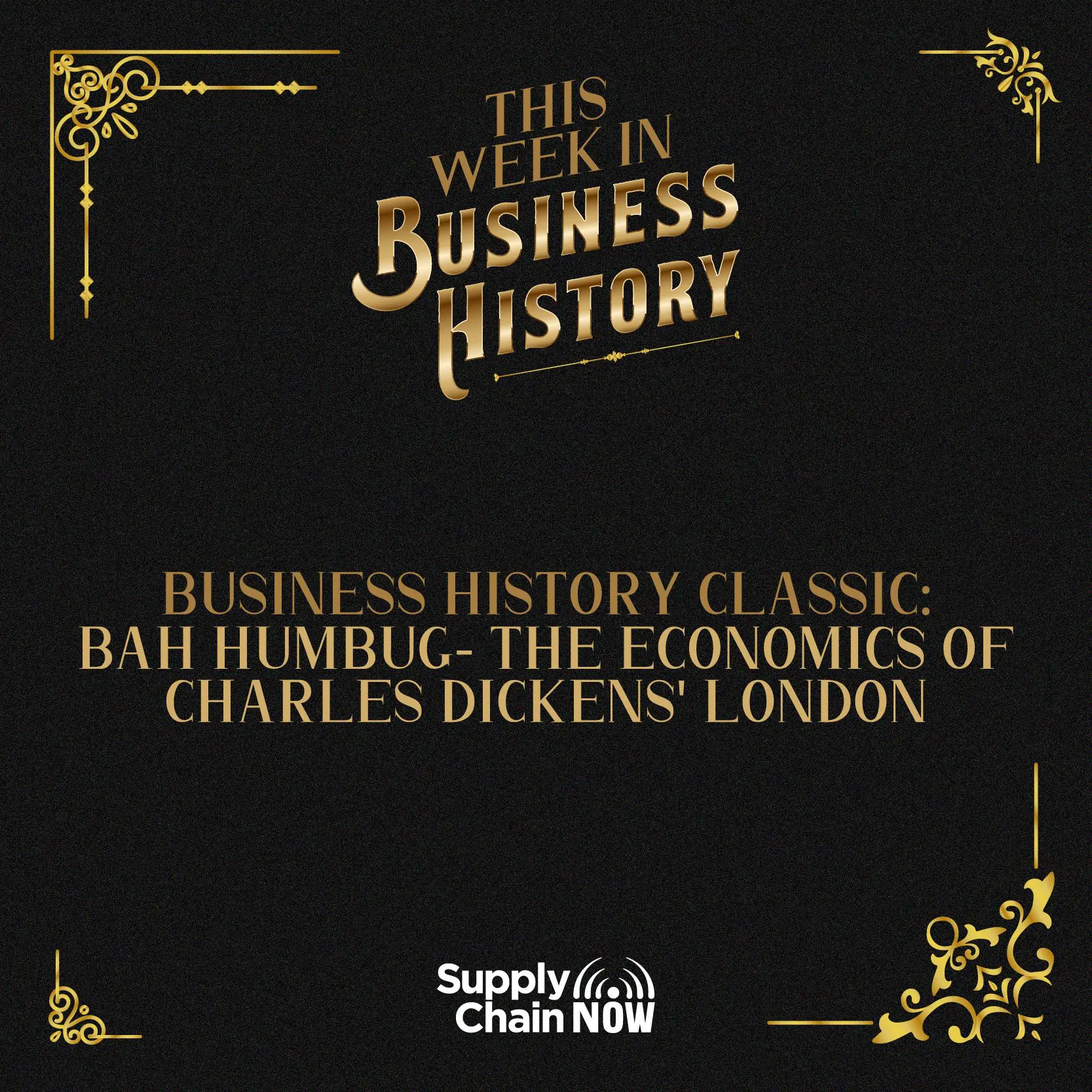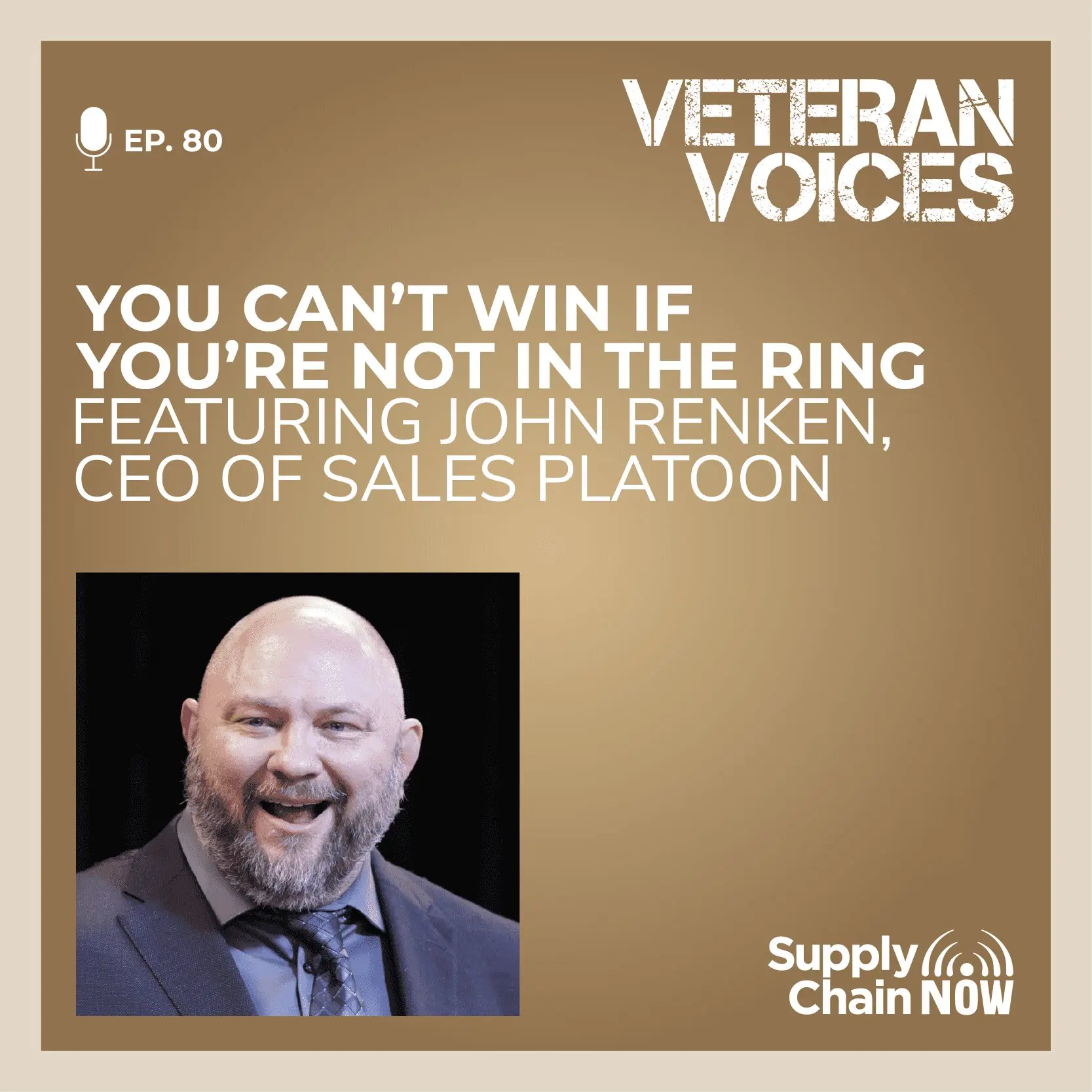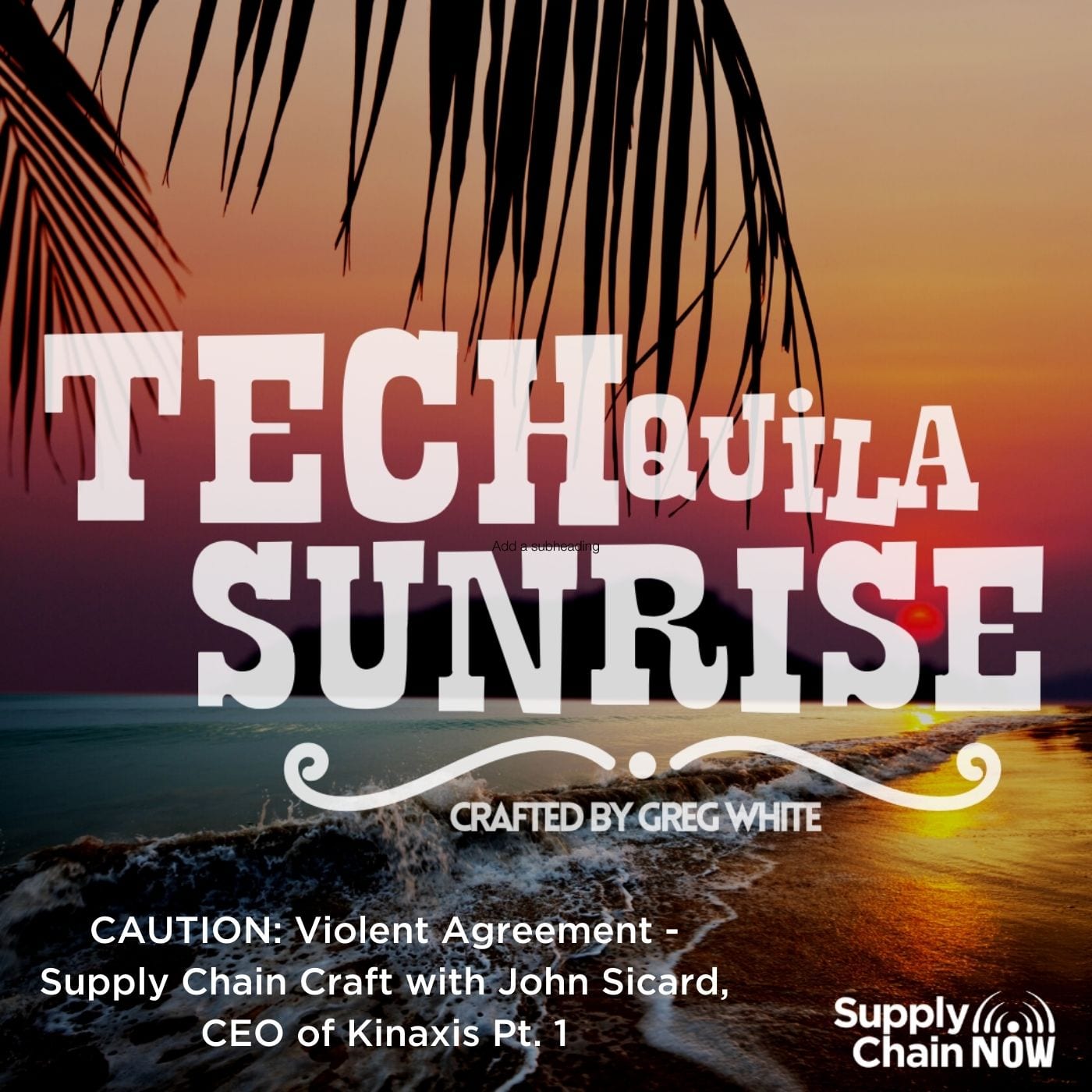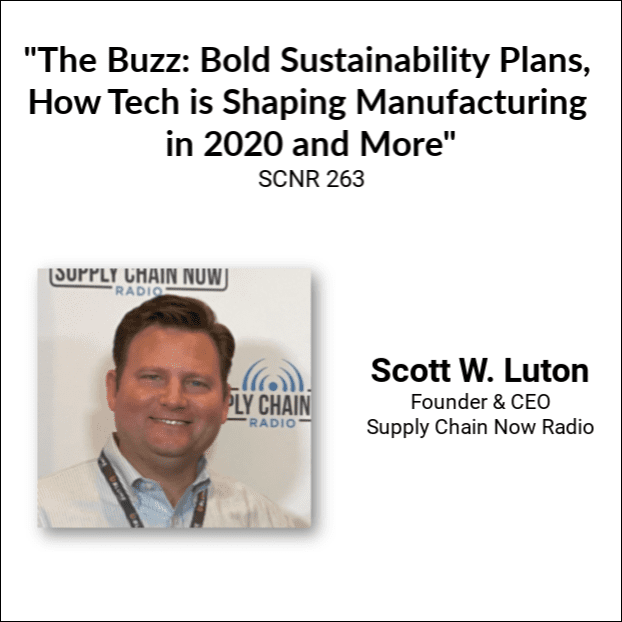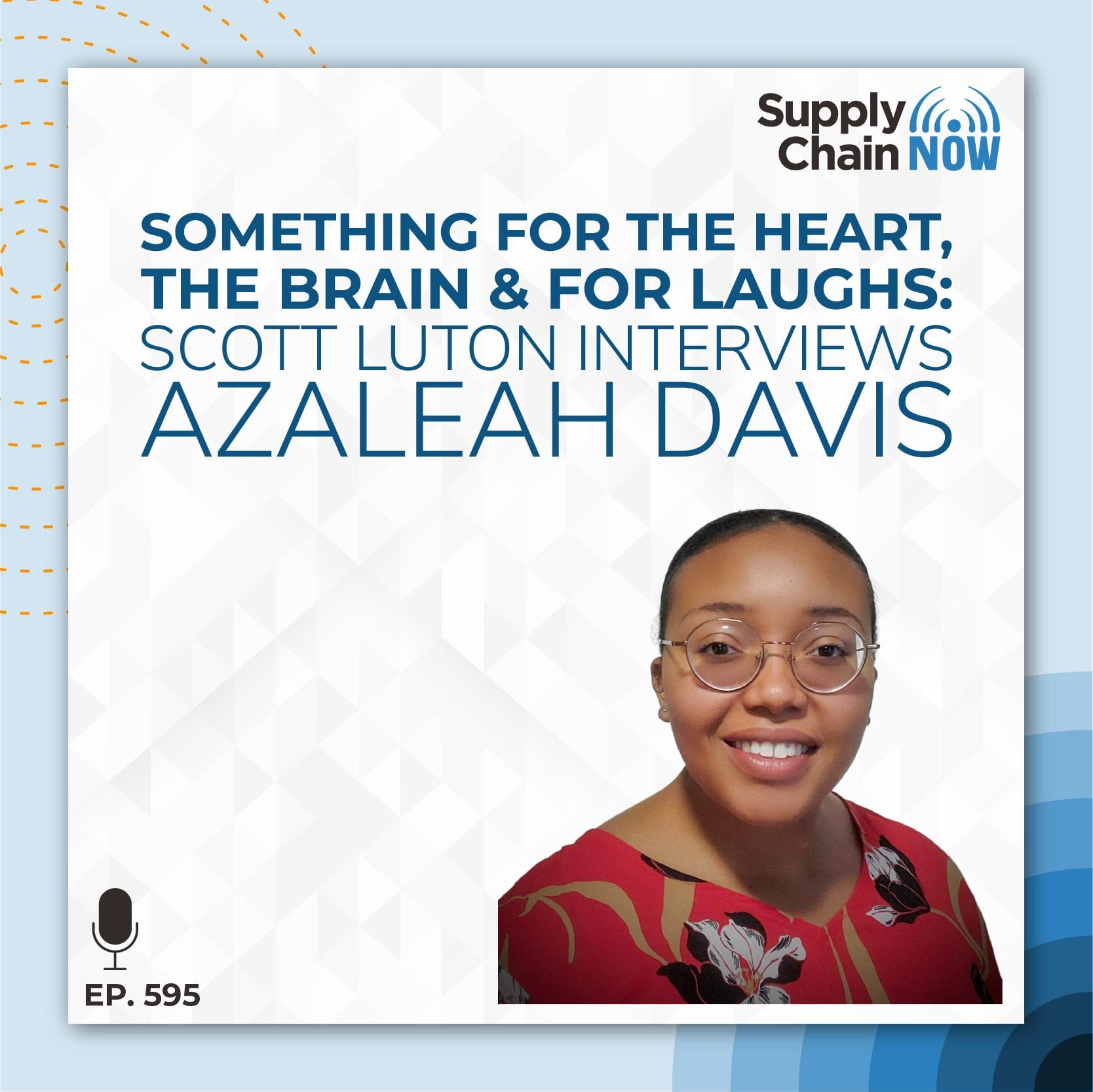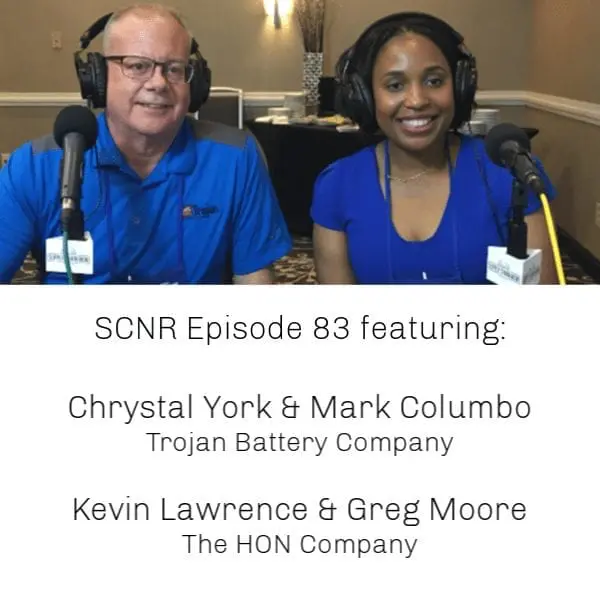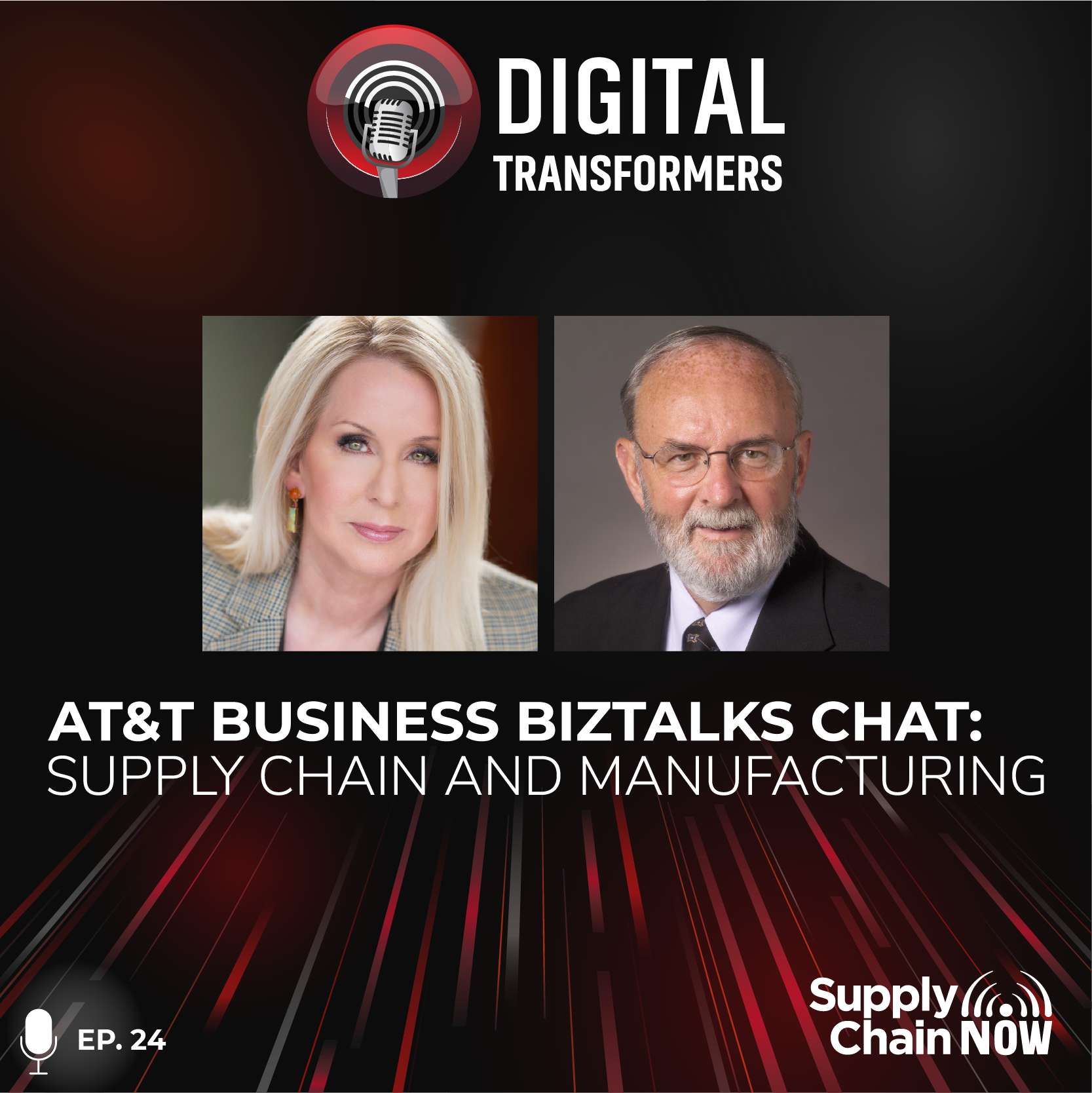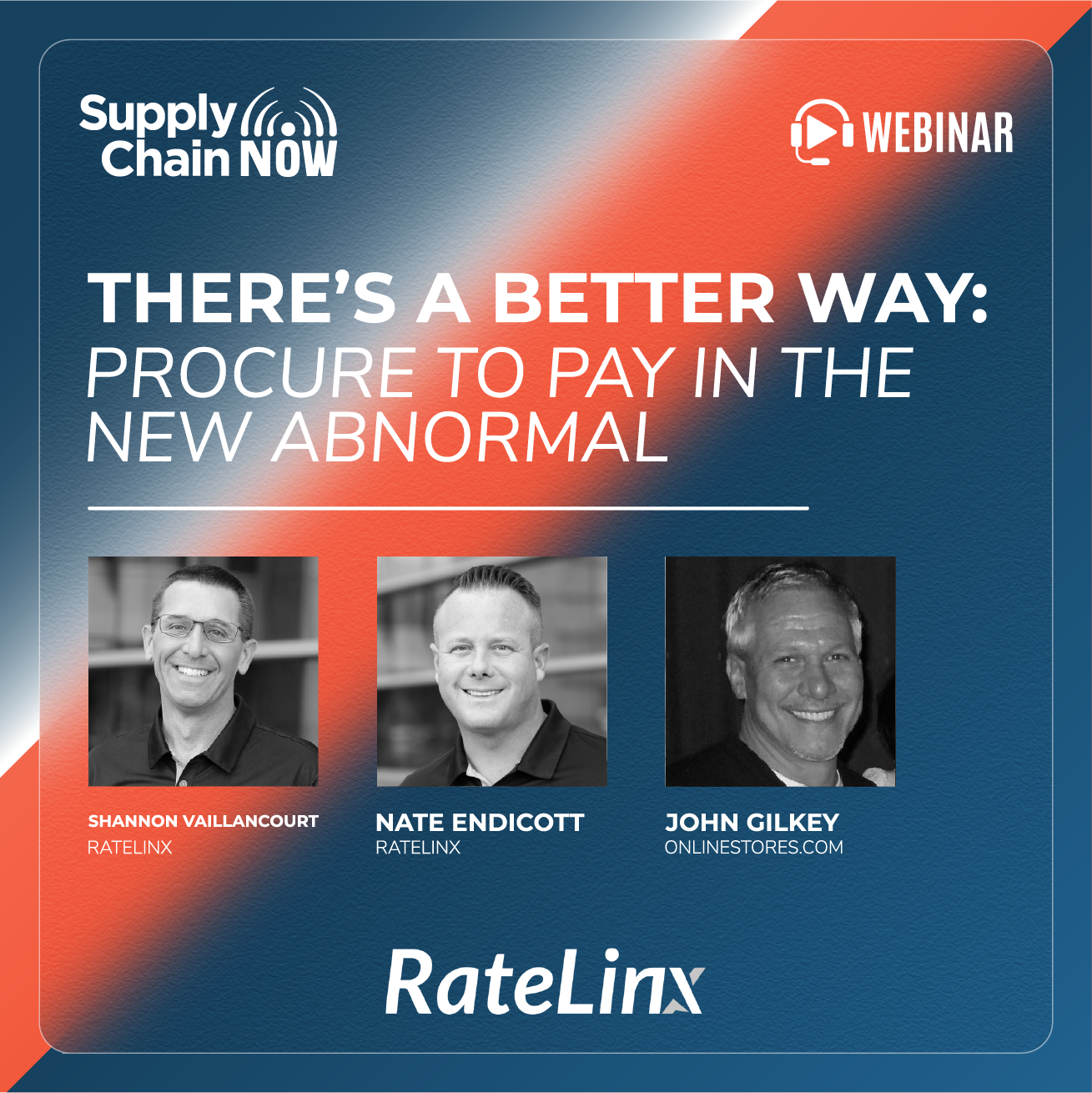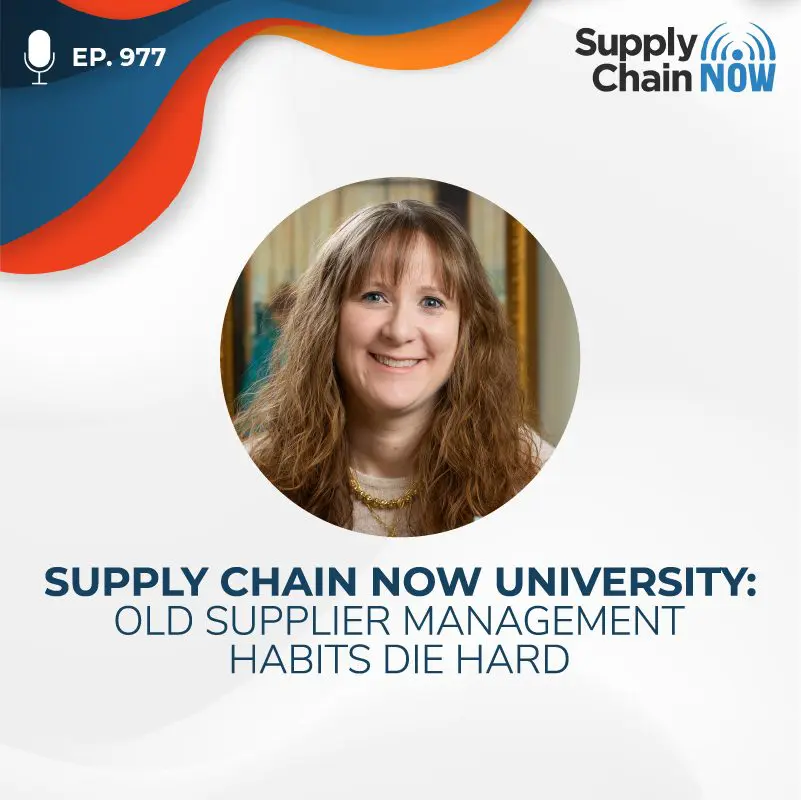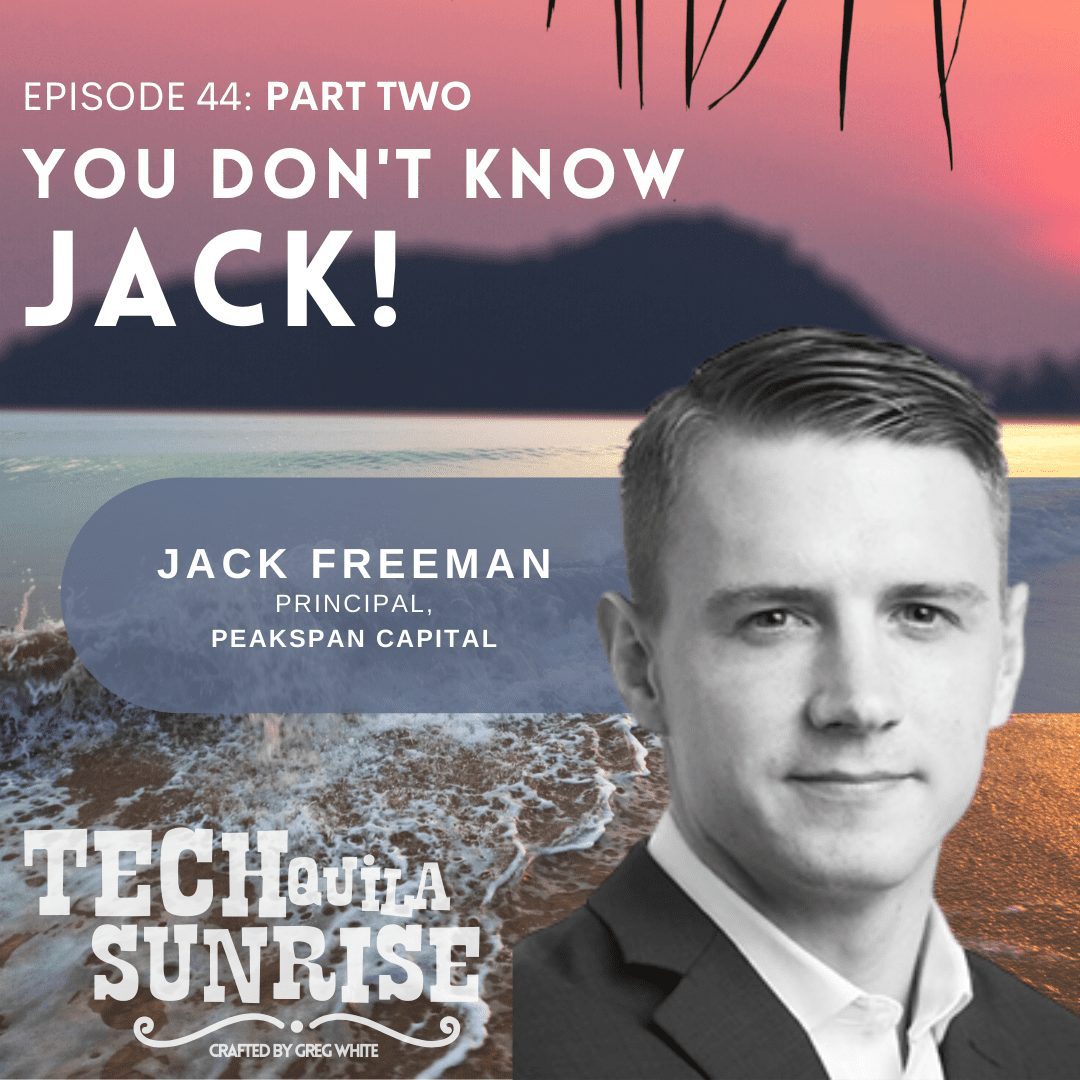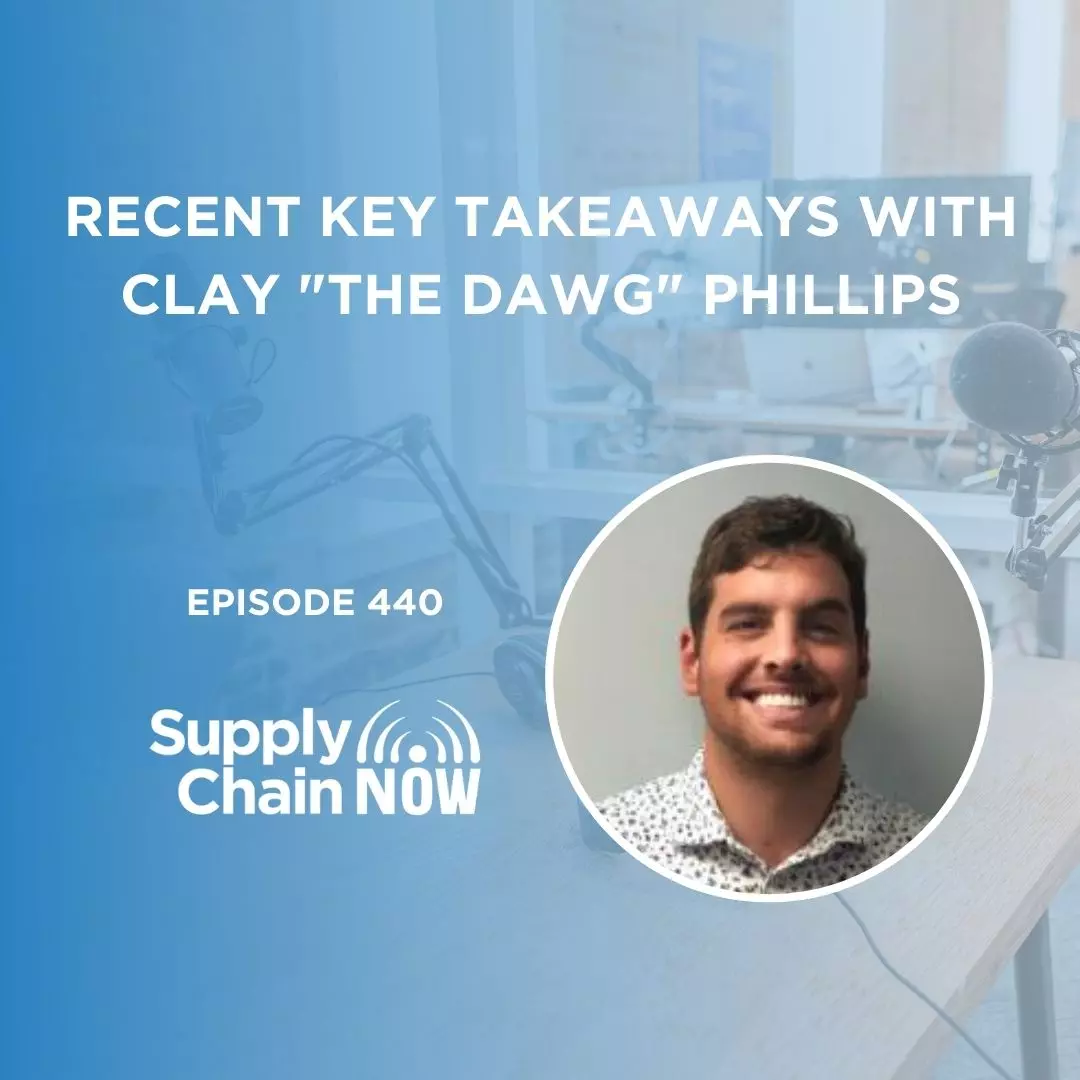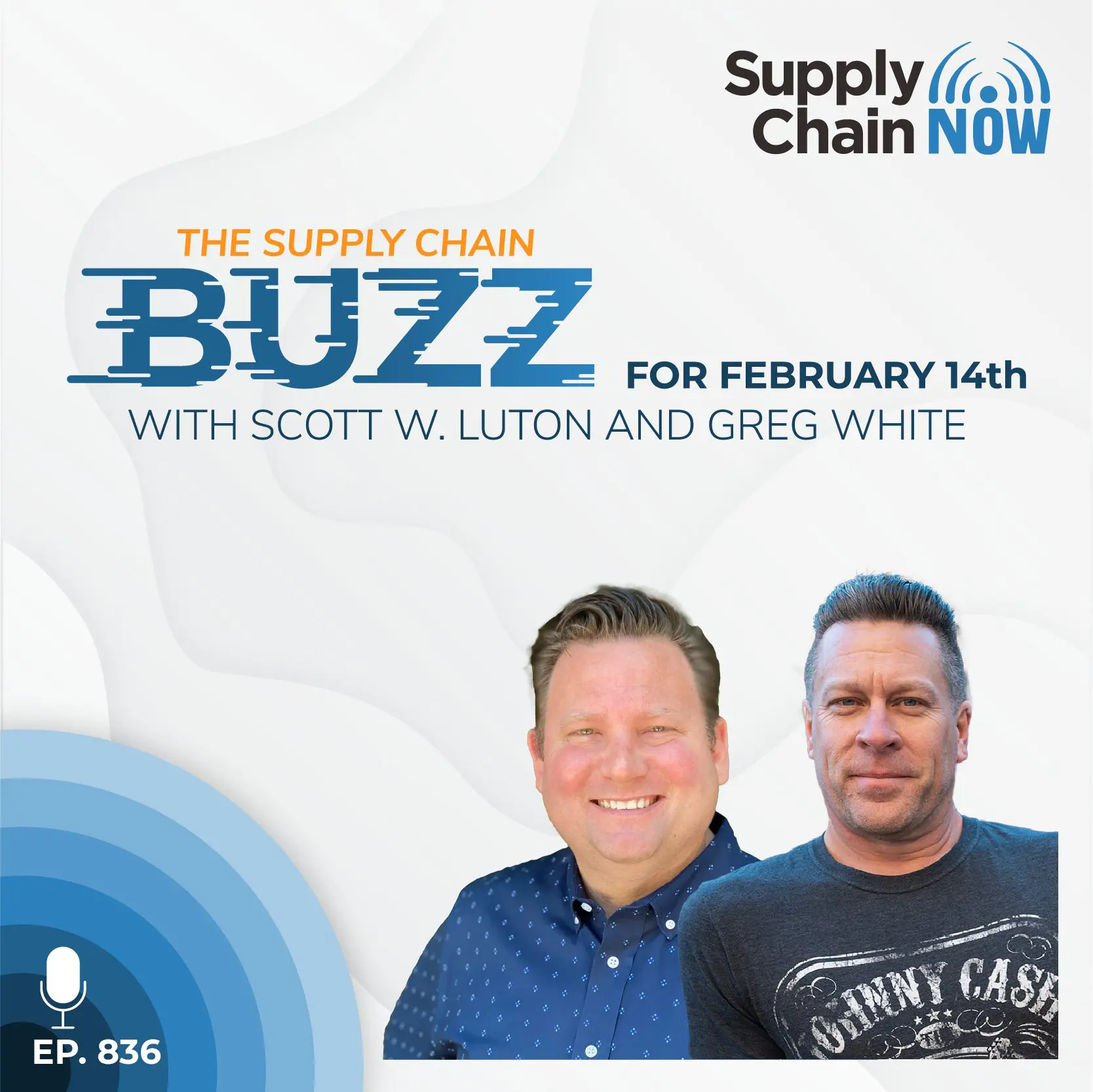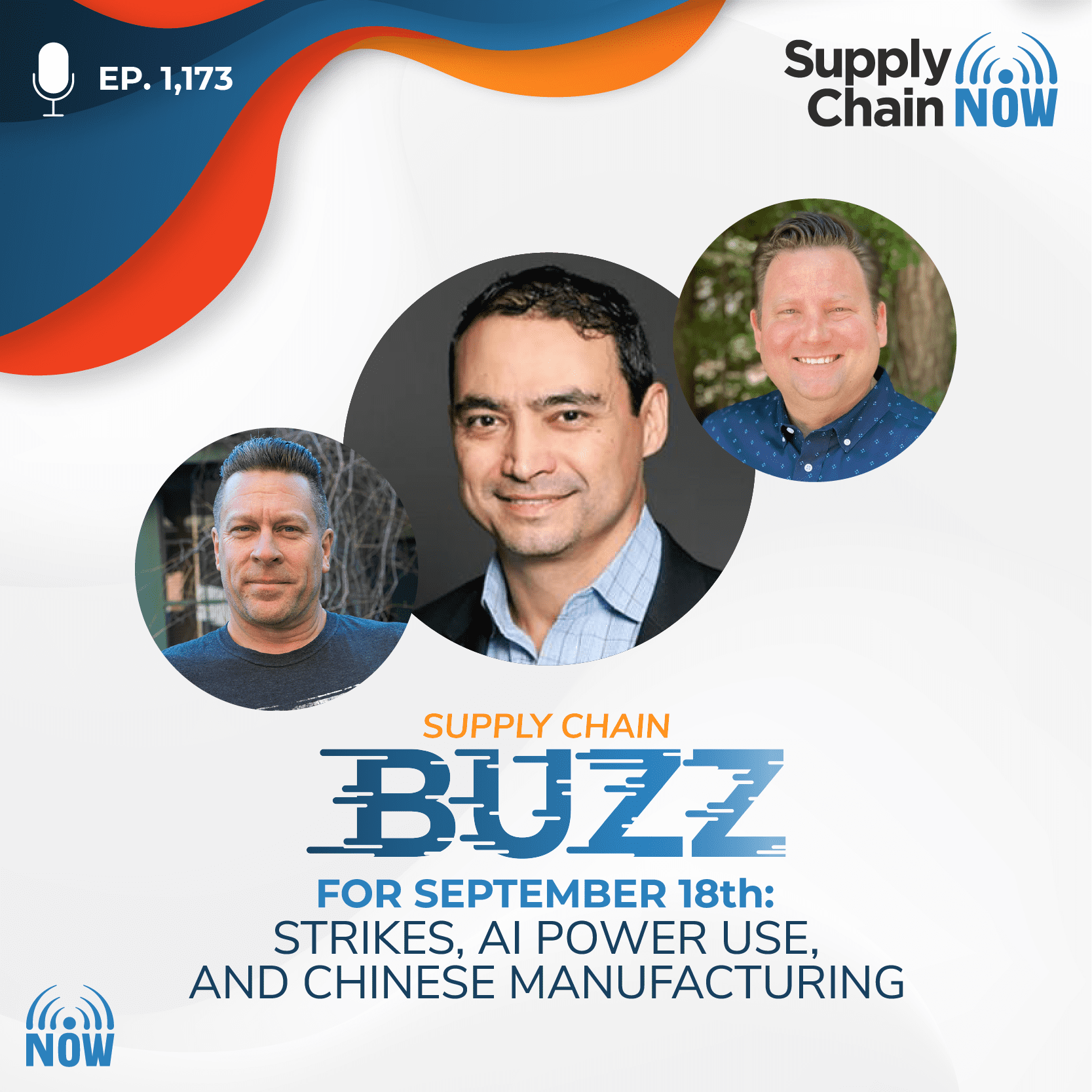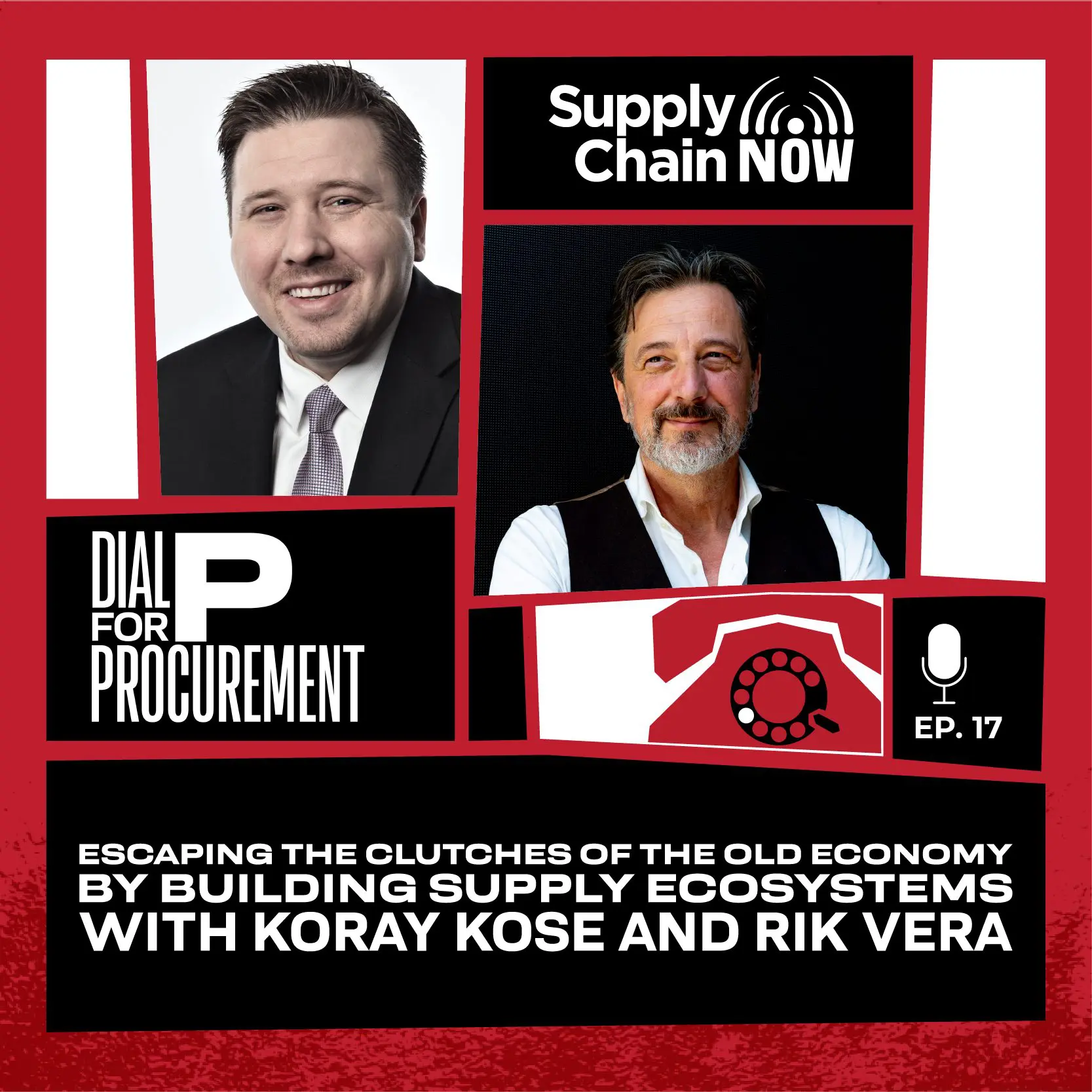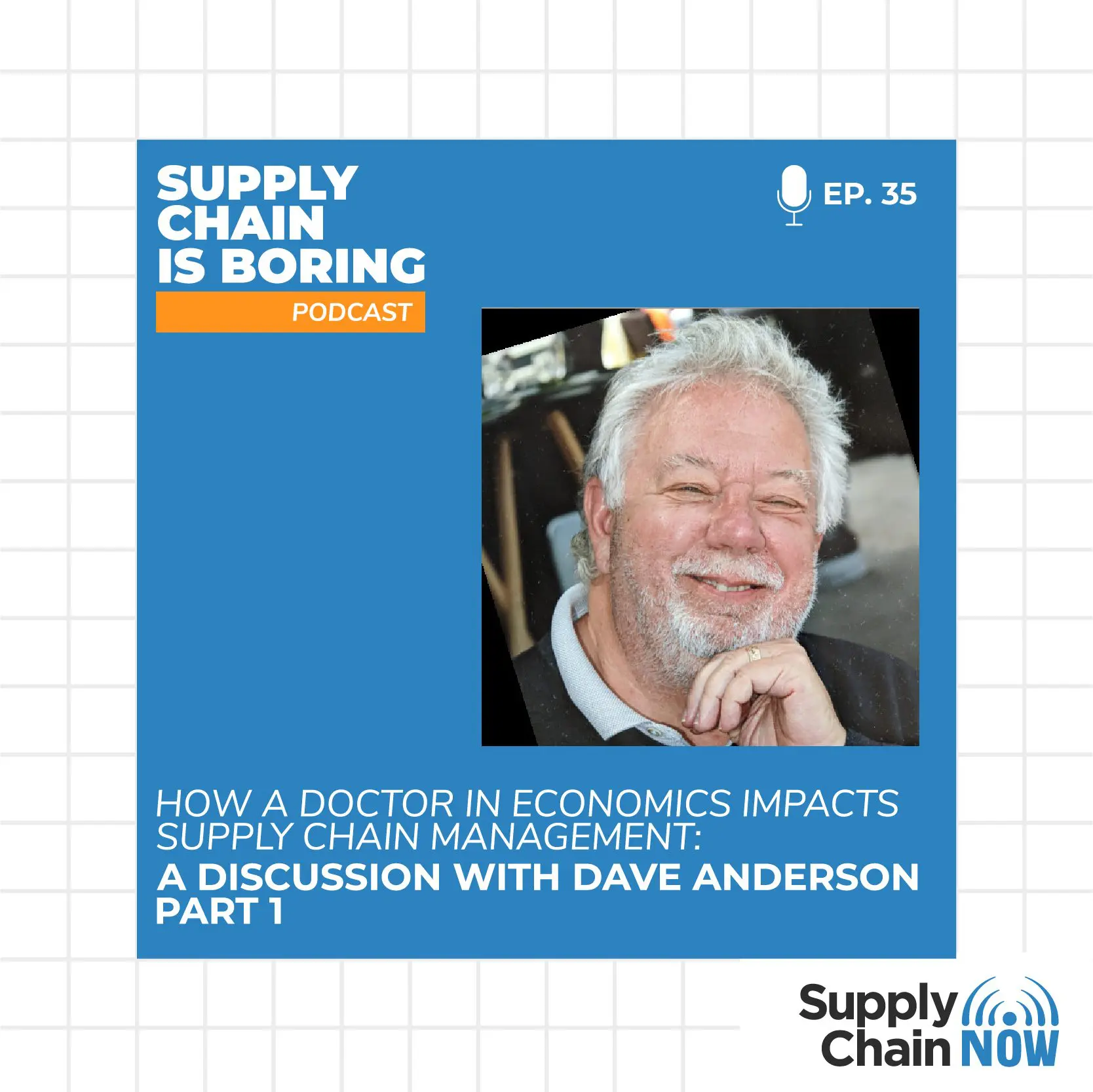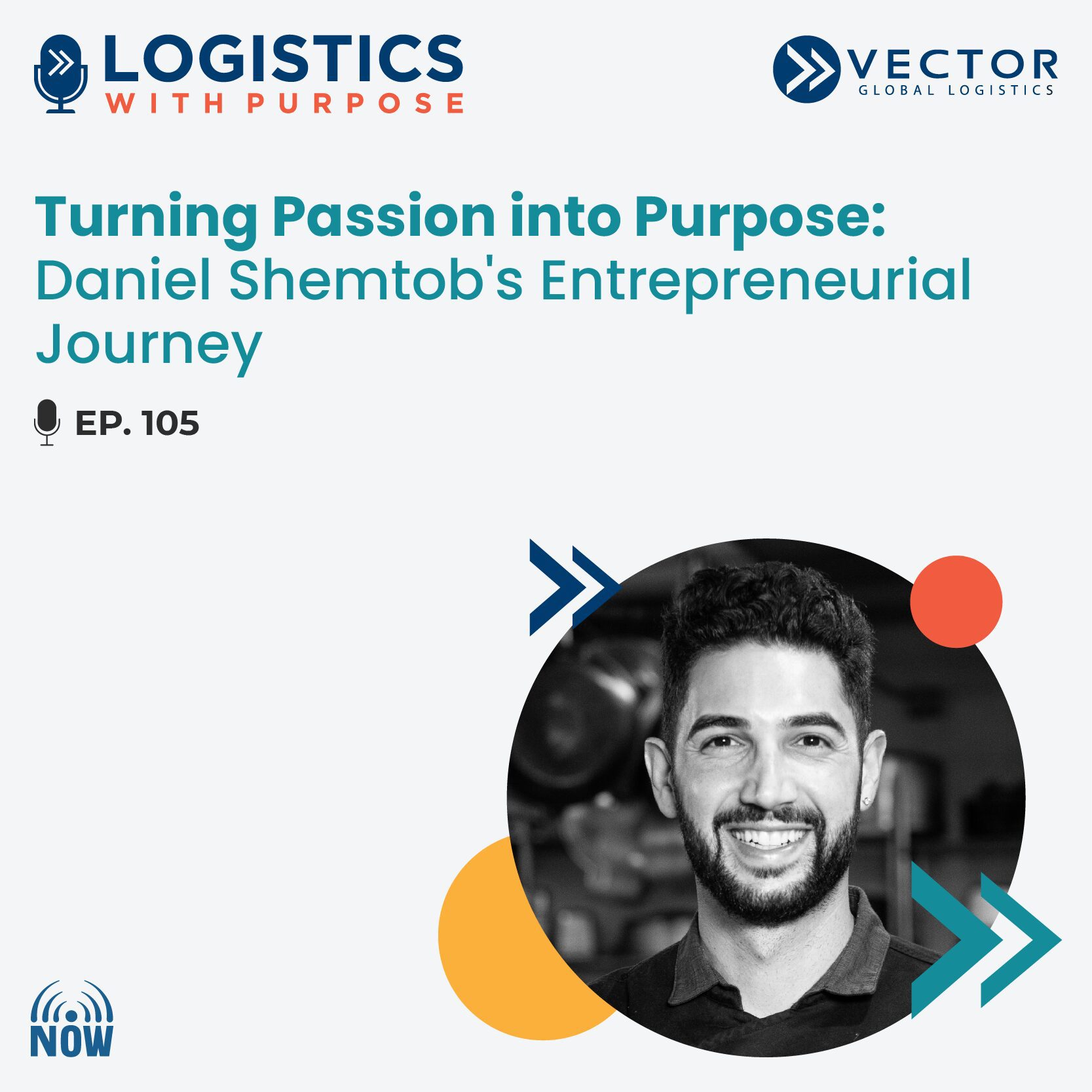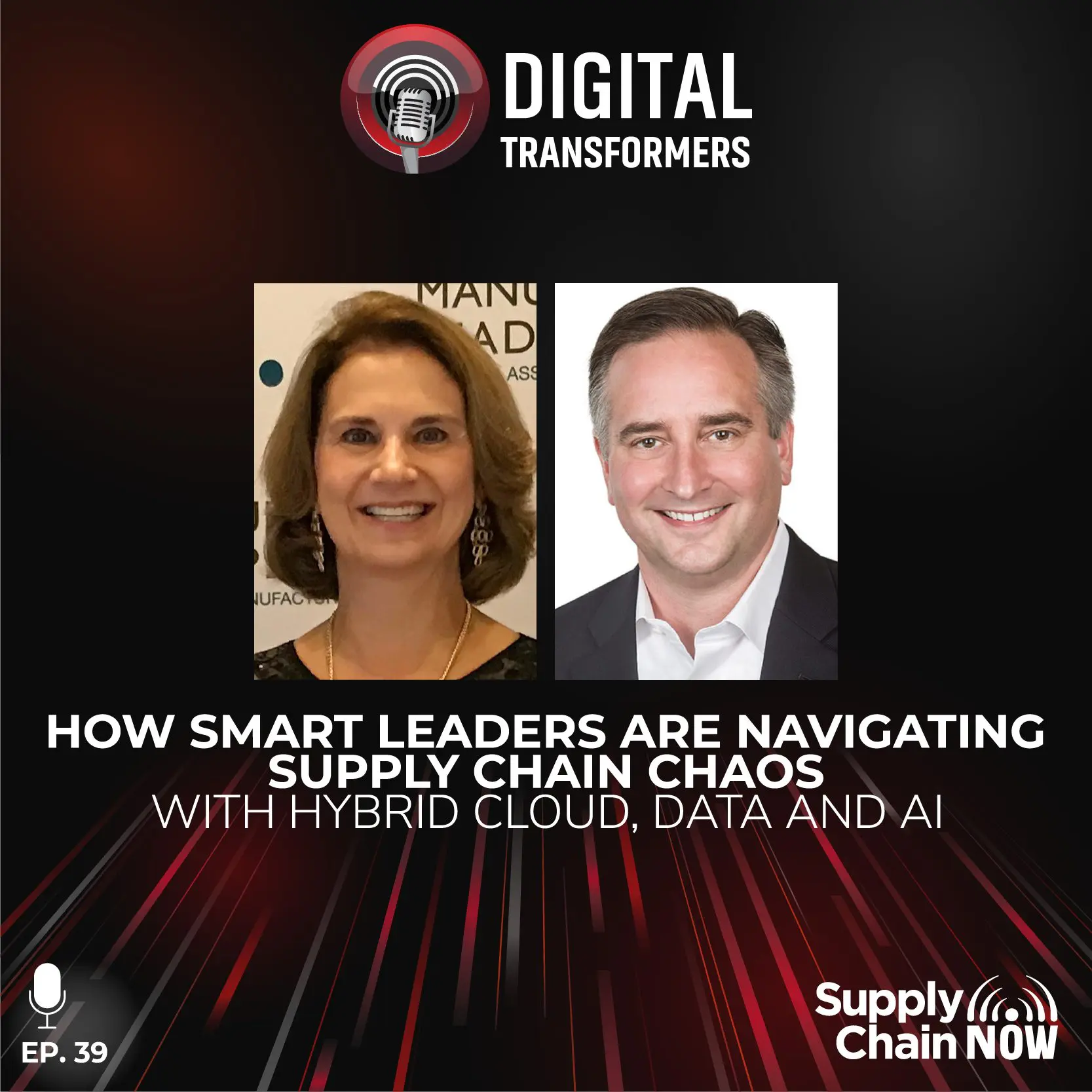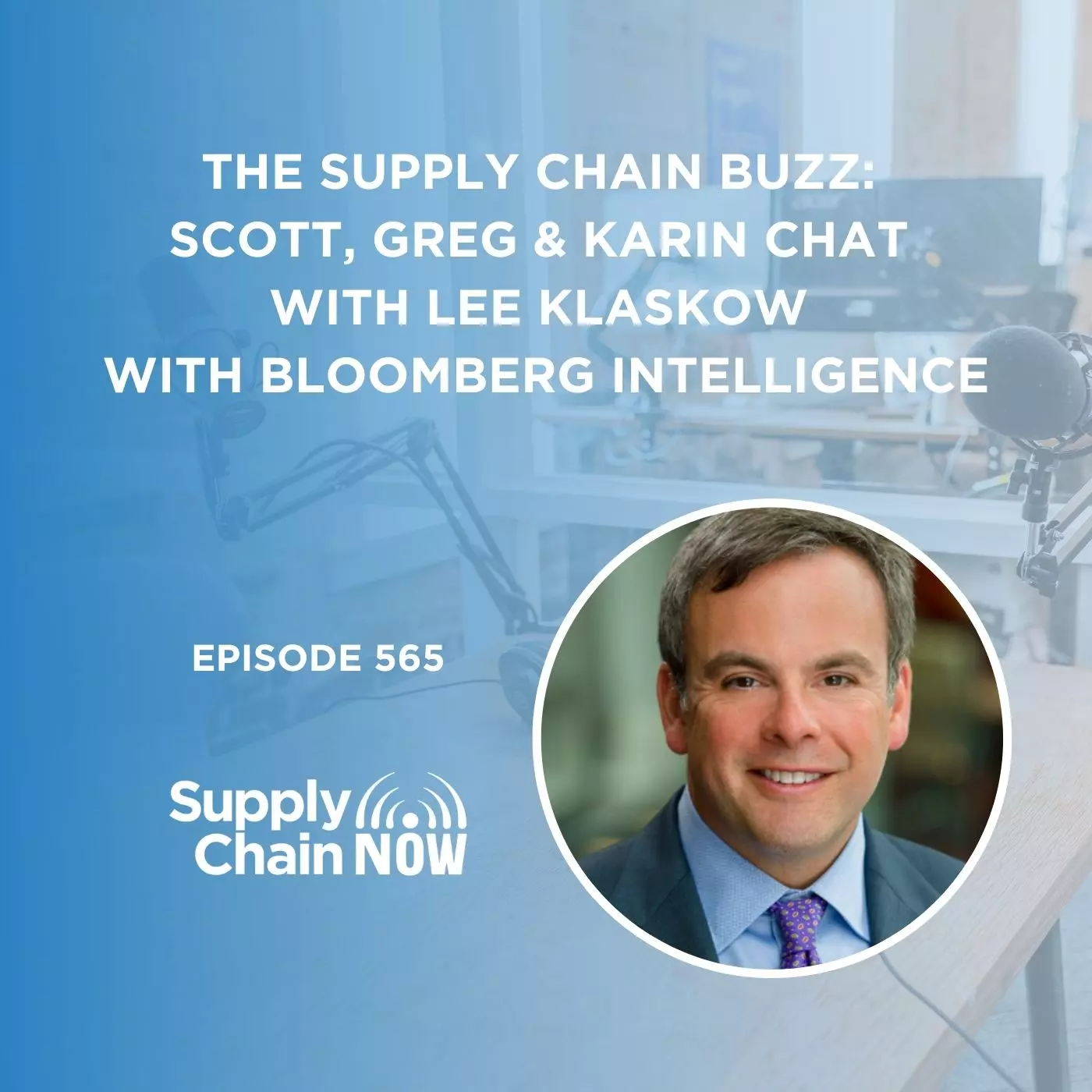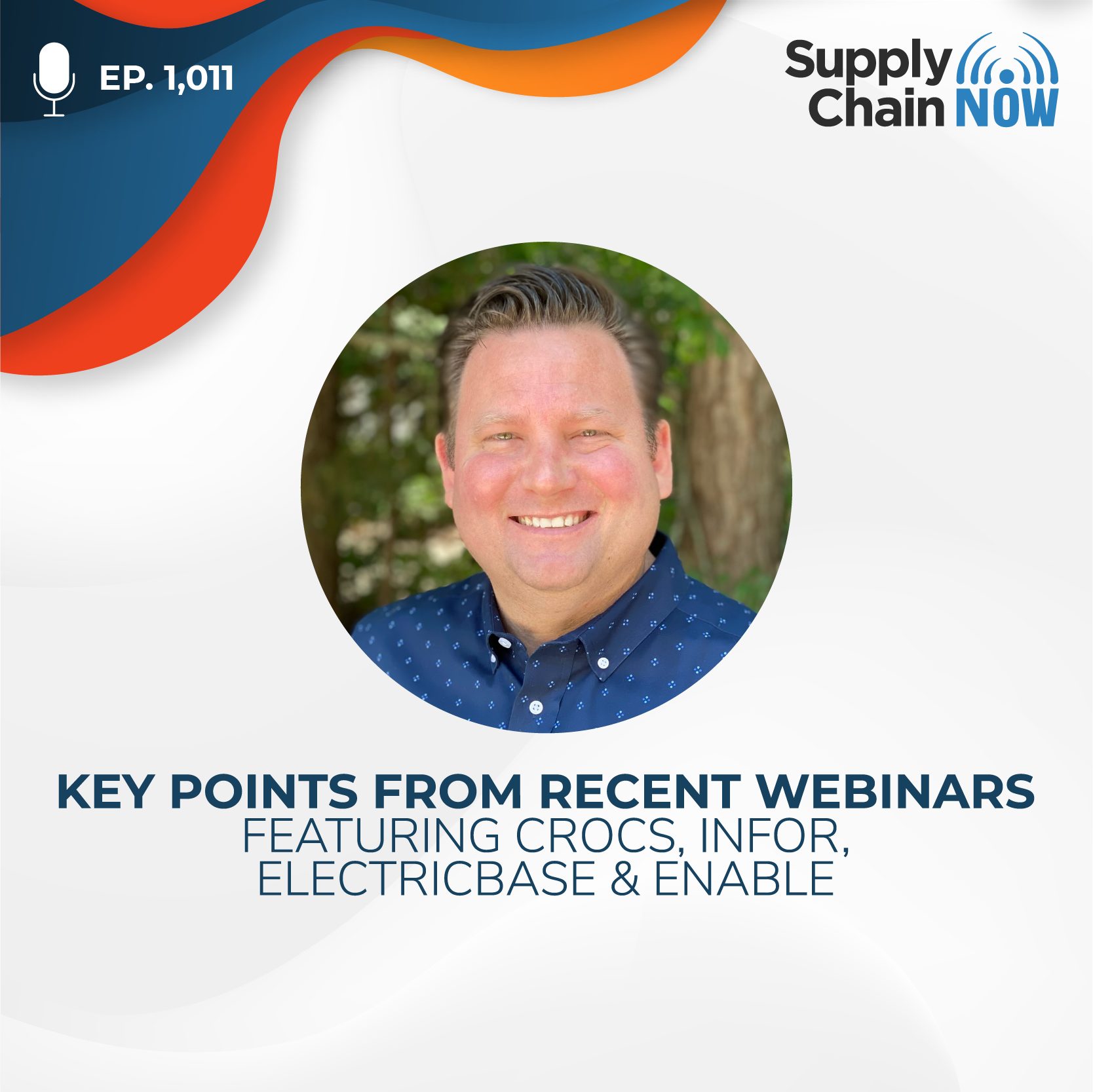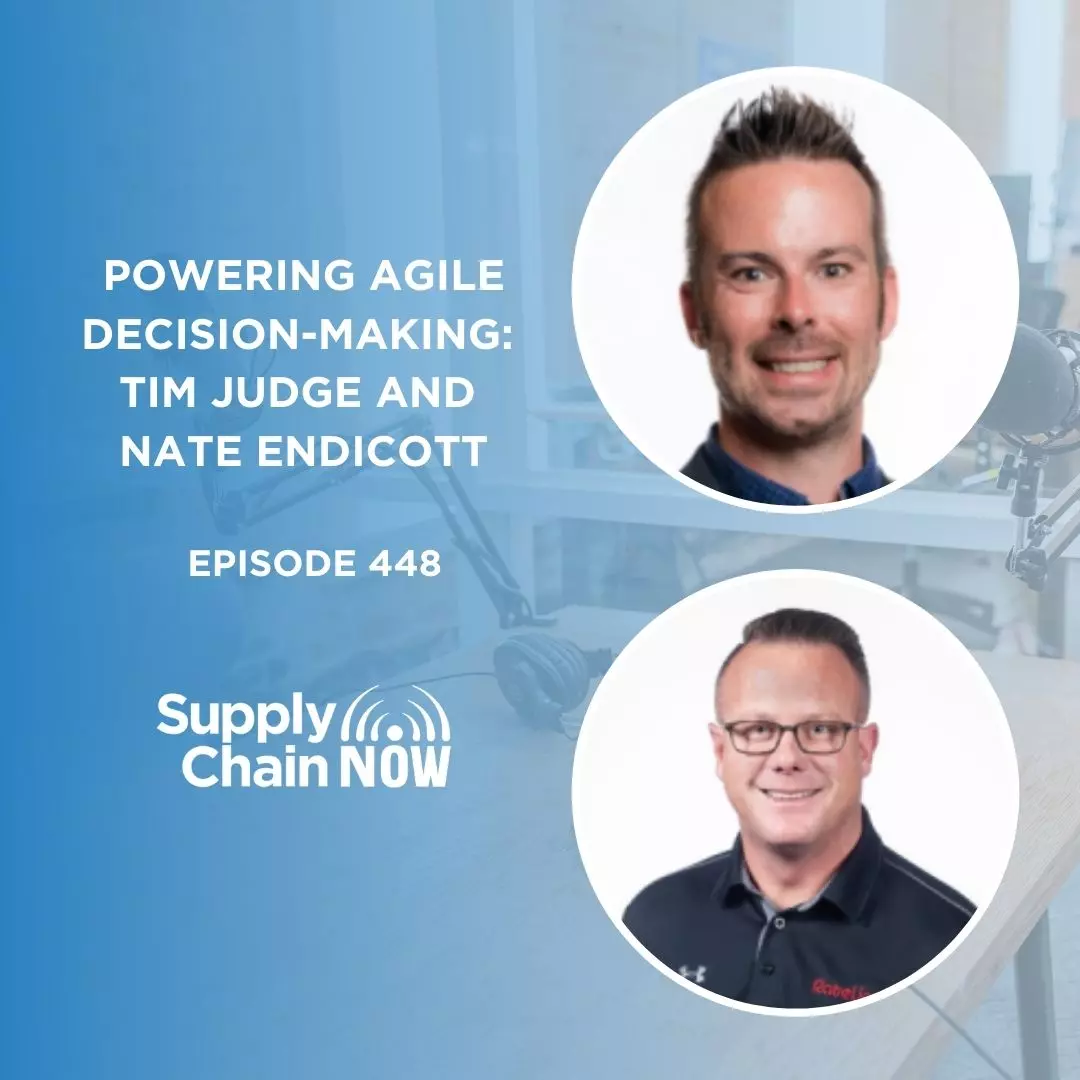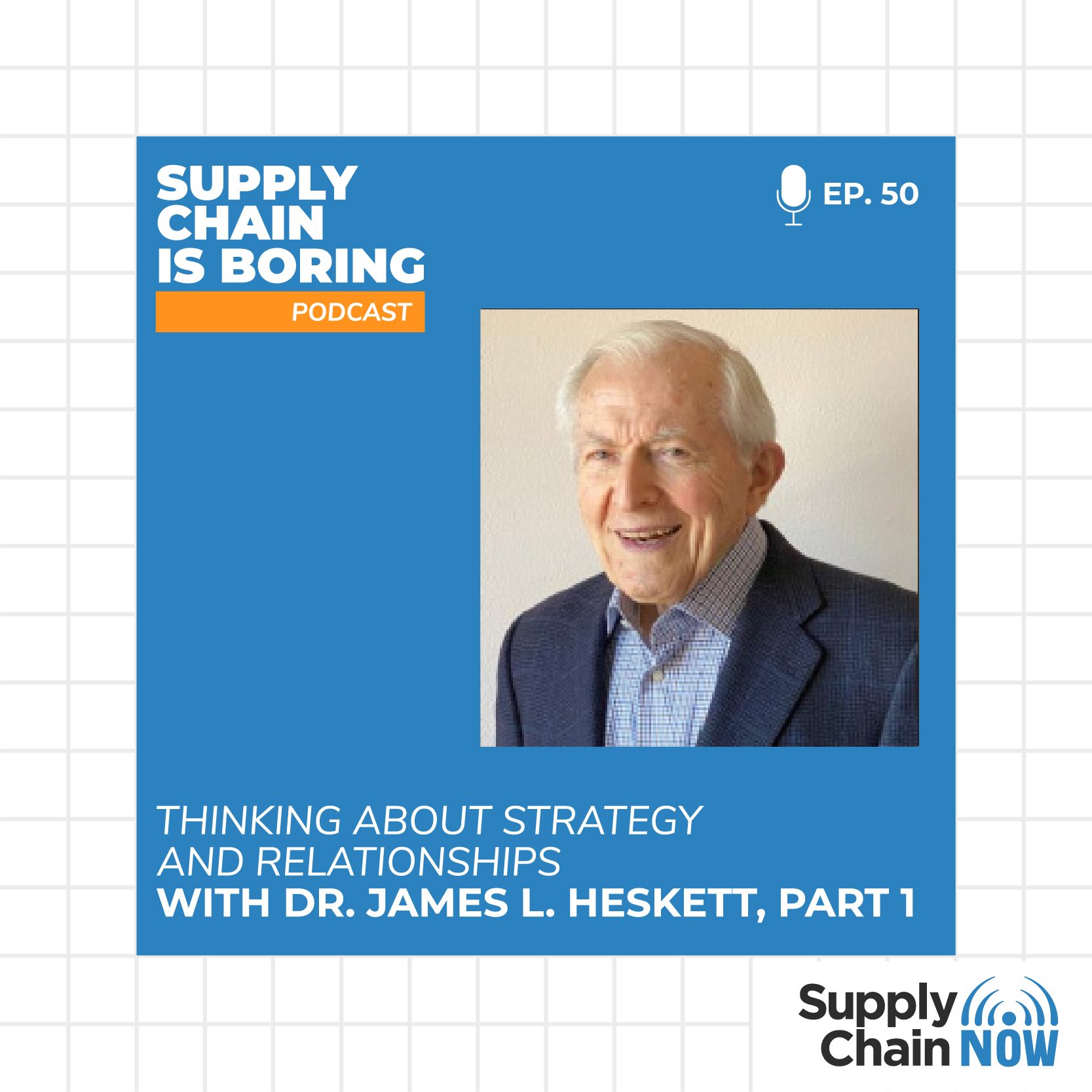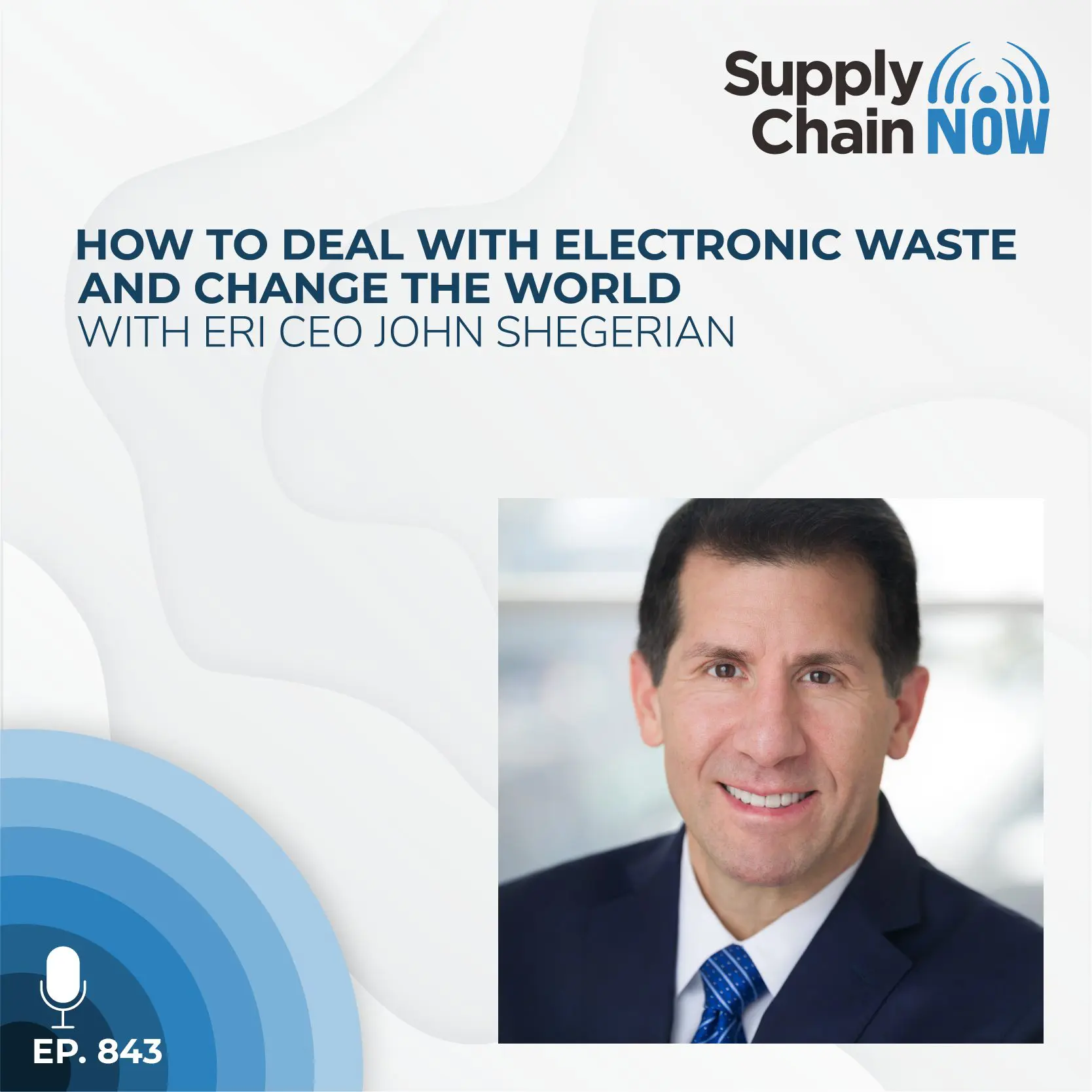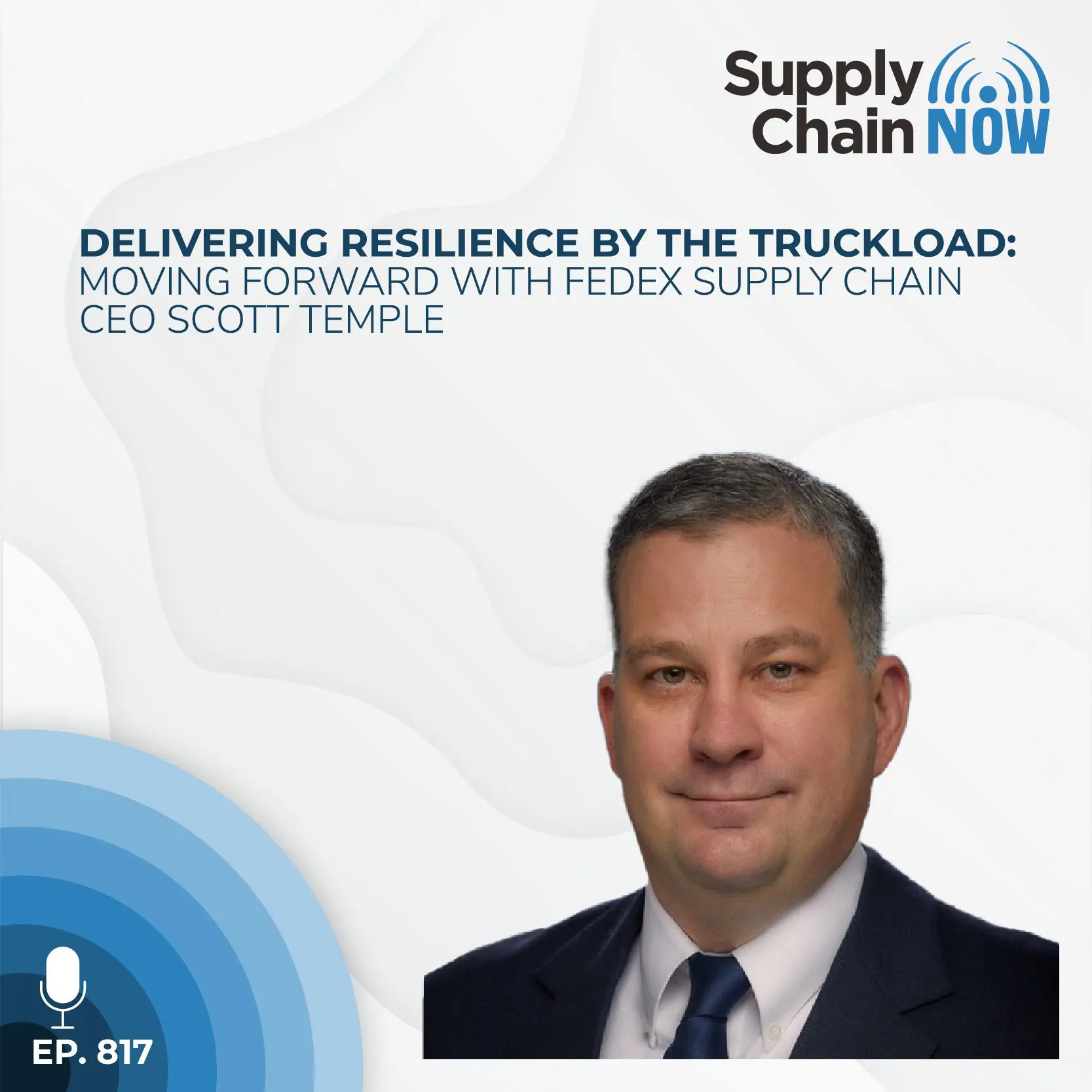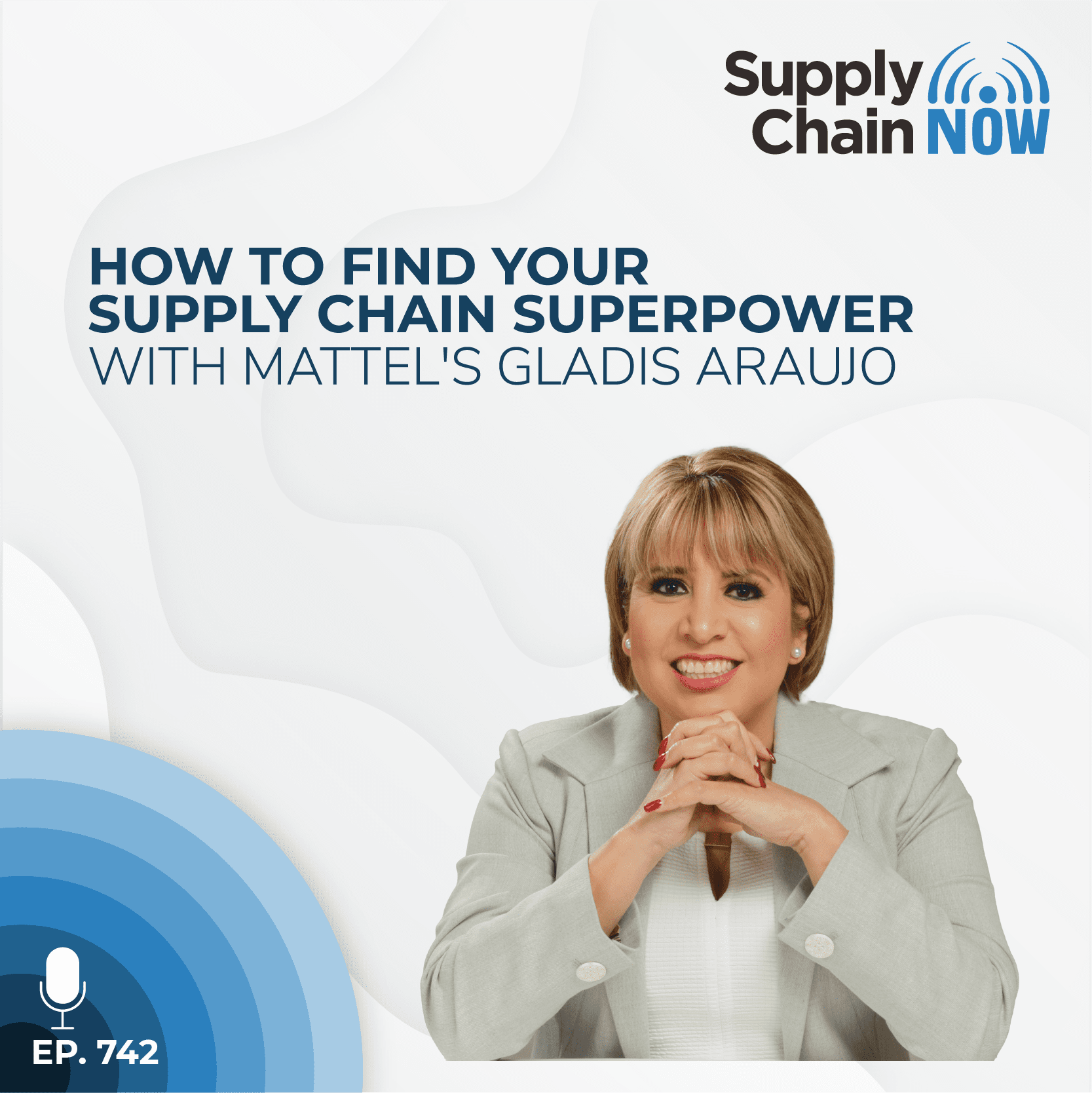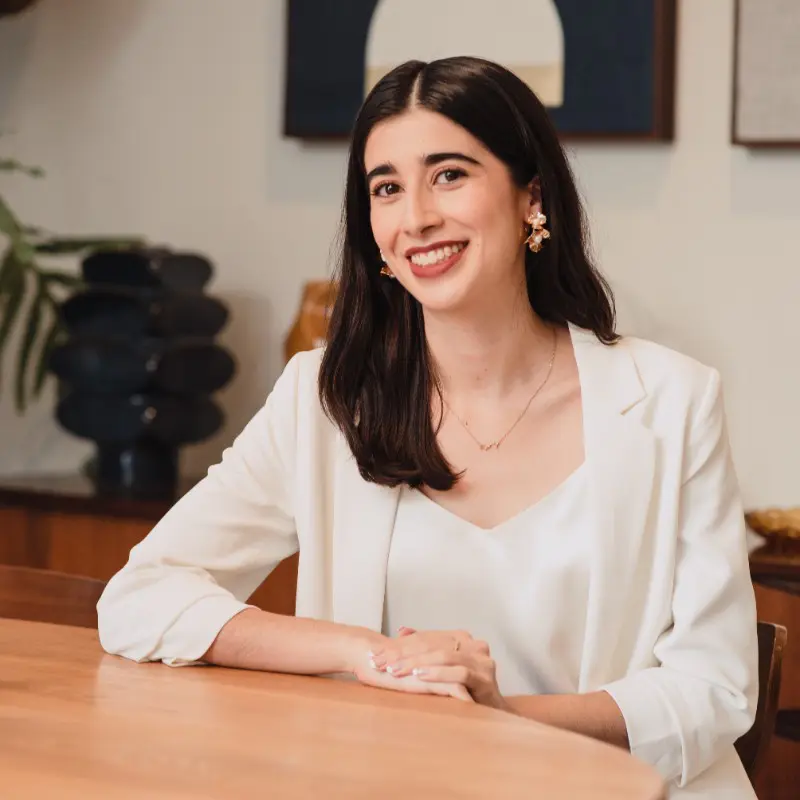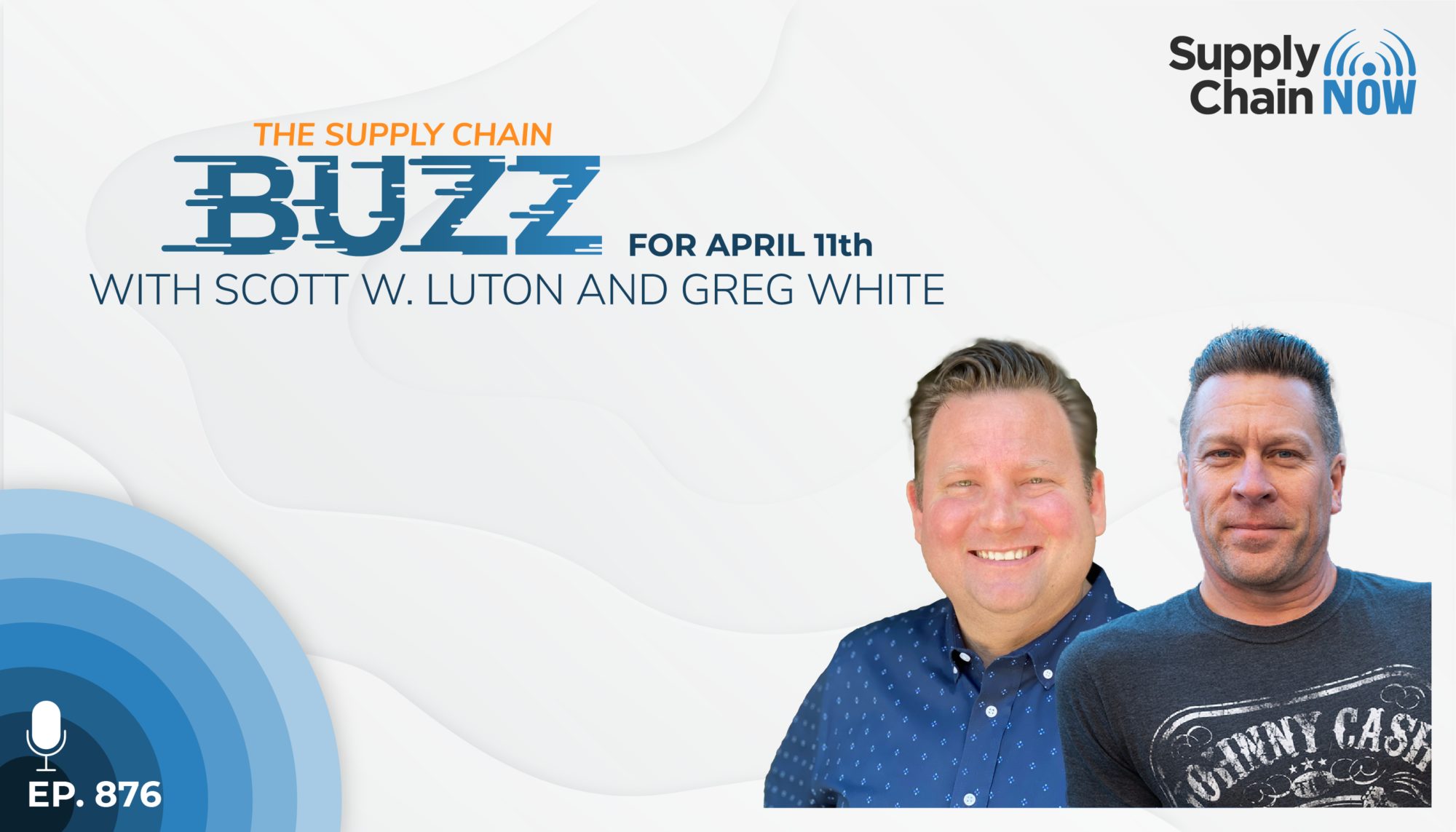
Look at TP. I know we're sick of hearing about TP, but look at it. Our point is playing out because truly the toilet paper shortage was so short-lived and the paper companies knew it was not going to be a long-term thing. So they aren't gonna over-invest and then they're back with too much infrastructure, right?
-Scott Luton
Episode Summary
Food prices are up, transportation stocks are down—and industrial real estate is everywhere. Join Scott and Greg for this week’s Supply Chain Buzz and get the skinny on all the top headlines of the day. Tune in as they discuss the effects of inflation on the grocery sector, new supply shortages, why two-day shipping might not be as alluring as it seems and more.
Episode Transcript
Intro/Outro (00:00:03):
Welcome to supply chain. Now the voice of global supply chain supply chain now focuses on the best in the business for our worldwide audience, the people, the technologies, the best practices, and today’s critical issues. The challenges and entities Stay tuned to hear from those making global business happen right here on supply chain now.
Scott Luton (00:00:30):
Hey, good morning. It’s Scott Luton, Greg white with you here on supply chain. Now, welcome to today’s live stream, Greg, how we doing?
Greg White (00:00:38):
Uh, outstanding. Uh, what a weekend? I mean, lots going on, but, uh, Scotty Sheffler wins the masters for his fourth win in six PGA starts. That dude is on fire
Scott Luton (00:00:56):
On fire. Yeah, I’ll tell you what on fire. You don’t even have to
Greg White (00:00:59):
Like golf to like that story. I mean, he’s just such a thankful guy. I, uh, played like nobody’s business and has been, uh, you know, anyway, it was just, it was a really great, great story. His wife cried and cried and cried <laugh> um, he thanked everyone who had, you know, kind of helped him get there. It was, it was very not just watching it, but watching the after effects at this ceremony and that sort of thing. Unbelievable guy.
Scott Luton (00:01:30):
It is. And of course, Greg is looting as is, uh, speaking of the new master champion, Scott, uh, Scheffler, I think that’s his last name, right?
Greg White (00:01:37):
Scotty Scheffler. Yeah.
Scott Luton (00:01:38):
Uh, Scotty sheer, uh, who won at the August national in Augusta GA just a hours down the road, uh, quite, uh, quite a weekend. And, you know, I was hoping for at least a two, maybe a three or four horse race, uh, almost got a two horse race, uh, for about two minutes. Uh, it should be very beginning of the final round, right? When cam Smith, uh, cam not cam Smith,
Greg White (00:02:00):
Cameron Smith. That’s right. Yep.
Scott Luton (00:02:02):
Is it cam Smith? Okay. Uh, from Austin, uh, came out.
Greg White (00:02:06):
That’s what I’m calling him. <laugh>
Scott Luton (00:02:08):
Well, nevertheless, it was a great departure from, uh, everything else going on in the world for sure. But folks, welcome to the supply chain buzz here today, where we share some of the leading stories across global business every Monday at 12 noon Eastern time and buckle up and get ready. Not only are we gonna offer up, uh, the stories and, and some quick takes on them, but we wanna hear from you. So use, we’re gonna say hello to everybody in, in the, uh, um, sky box is the cheap seats here momentarily, but give us, uh, let us know what you’re thinking. If we work our way through these stories. Now, Greg, we’ve got a bunch of folks with us here today. I’m gonna go ahead and share one. Uh, Michael Jones is glad the podcast is today. Cause he’s got one to two feet of fresh powder tomorrow. <laugh> so guess where he’s
Greg White (00:02:52):
Gonna be here he comes. Yep. <laugh>
Scott Luton (00:02:55):
So Michael, great to have you back enjoyed, uh, I think you joined us for one or two live streams last week. So
Greg White (00:03:01):
Whatt he get outta bed for eight inches of fresh powder, which is what he got last week, right?
Scott Luton (00:03:06):
That is right. He’s getting
Greg White (00:03:08):
Tomorrow guaranteed.
Scott Luton (00:03:09):
<laugh> well, let’s share a couple of quick program notes. Uh, we’d love for folks to join us. Uh, for starters at this upcoming, uh, webinar we have with our friends at six river systems, how to solve three common peak season challenges, it’s gonna be May 10th at 12 noon Eastern time. Greg and I host John and will from, uh, six river systems note, uh, Greg, it’s not six river robotics, very intentionally it’s six river systems
Greg White (00:03:36):
Technologies. Right? It’s none of that, right? Yeah. That’s a really good point. I mean, it’s a whole kind of holistic solution, but of course robotics a big part of it. But you know, again, just like last week, we’re talking about peak season, right. Which in the states is kind of Thanksgiving through Christmas. So, um, unbelievable, but great that we’re talking about it in the now, because with things the way they are though, they’re starting to loosen up and we’re gonna talk about that in a little bit with things the way they are, um, gotta be prepared earlier than ever. And as we discovered, you can do everything right. And still have something ed, wrong supply chain. Right.
Scott Luton (00:04:18):
That’s right. So, uh, uh, no Ivan, um, Alan Iverson. We’re not talking about practice. We’re talking about peak. Took me a second. That <laugh> I remember that reference. Uh, do you remember our friend Alan Iverson, Greg?
Greg White (00:04:34):
Yeah, of course. Yeah. He hated
Scott Luton (00:04:36):
Practice and that <laugh> come on, man. We’re talking practice. Yeah. We’re talking practice. I love that. That’s almost as good as, as the one NFL. Yes. You knew where I was going with that, Greg. I love that small favorite. Those two
Greg White (00:04:49):
Must be related. Cause they had about the same response.
Scott Luton (00:04:52):
<laugh> that’s true. All right. So moving right along folks, uh, I tell you talk about a train that is picking up steam. We publish this a at, you know, we’ve been running, uh, the 20, 22 supply chain procurement awards, the nomination process for several months. Now we’ve got, uh, tons of nominees that we’re now processing and getting in them into the judge’s hands. Well, last week, Greg, we teed up the livestream. That will be the actual awards, uh, ceremony itself to our livestream on May 18th with a bunch of our friends, right? Uh, some surprise guests, uh, special keynotes and more Greg, the market is speaking. We we’ve got almost 900 folks that are already registered for that event. And we still got, you know, it’s not even, um, the preacher hadn’t got warmed up yet. We’re not talking about folks arriving, you know, 30 minutes early to church, we’re talking a month than a week out. Right.
Greg White (00:05:44):
Well, and we don’t have will Smith as a keynote or anything. So <laugh>, I mean, this is real interest in real supply chain, in real innovators, uh, and high performers in a very real industry. Real, real that’s right. Real. So, yeah, it’s, it’s, it’s gratifying frankly, to have this many people, this interested in it, it’s a virtual event. Scott. Imagine the day when this is an in person and virtual event, as I reckon it will always be that’s right. But, um, yeah, just incredible. What, what this thing has become.
Scott Luton (00:06:20):
It’s gonna be awesome. Uh, so folks join us. It’s gonna be really a celebration of, as Greg mentioned, some of the movers and shakers and leading innovators across global industry, um, and all of that, while we call attention to give visibility to, and, and support to our, for ends, that hope for justice, which is only a very noble mission. They’re a nonprofit that is, uh, looking to eradicate modern slavery and human tra trafficking from the entire world. So I’m very, I’m so excited Greg, that we have thanks to all of our friends out in the market that have made nominations and, and soon will be sponsoring this event that we’re gonna be able to, you know, send a, a rate check their way, but more importantly, you know, give them build a platform to help get their mission out there. So folks join us. Uh, on May 18th, you can learn more@supplychainprocurementawards.com or check out the link that our friends are dropping into comments now.
Scott Luton (00:07:13):
Okay. Speaking of noble mission grid, uh, how about vector global logistics, uh, hosts and sponsors of our logistics with purpose series here at supply chain now, uh, Enrique Christie, uh, Mon the whole team there. Um, it, it’s all about action, uh, leveraging logistics for Ukraine. So they’re, these are weekly sessions that we’re, uh, we’re, we’re, we’re partnering on. Uh, they, their teams really put out and they’ve got a bunch of partners that are, that really know what’s going on and where the real needs are in Ukraine and Poland in, in that region. And they are working kind of as a information broker, but also, um, a logistics broker to find resources, uh, help find ways of, of conveyance to get into the real validated that the pinpoint needs in Ukraine, Poland, and elsewhere in that region. This is a hugely noble mission. Right. Great.
Greg White (00:08:07):
Yeah. They, um, you know, they introduced us to some great people that we had on the show. Dovi a doc. Um, and Dominique, I forgot her last name who have been doing some things David from Poland and, and Dominique from here in the states coordinating. And now they have this great particular lead, this one great shipment that they need some help, uh, getting funded to get it over there. So, um, it, you know, it’s obviously a lot going on. Um, it’s funny because you can feel the situation in Ukraine starting to kind of fade from the news a little bit as the, the economy becomes bigger news here, but that, you know, uh, atrocities are still occurring and, um, you know, war is still being waged there, so
Scott Luton (00:08:58):
That’s right. And people are still in need engaged there. That’s right. And, and per the point you made last week and, and several others have made the need is gonna be around for a long time. Sadly mm-hmm <affirmative>. So let’s, uh, let’s come together as a, as a global community and try to serve, uh, meet that need and serve it. So folks, uh, these are weekly sessions, the next one’s Wednesday, it’s every Wednesday at 3:00 PM Eastern time. You’ll see the link that we’re dropping in the comments. You can also go to vector gl.com, uh, and you’ll find you’ll, you’ll see more information there, but it’s, it’s, it’s simple. You tune in, you register for the zoom. You can just sit back and listen and gather market Intel and get a better sense of what’s going on by people in the know that are actually boots on ground.
Scott Luton (00:09:40):
They’re doing things, uh, in Ukraine and pulling elsewhere. Um, or if you can take action, right. If, if you know of a, a truly vetted need, or if you’ve got wherewithal to donate resources, you name it right. Please do, uh, Greg. Yes. Talk about action. Talk about action for, has covered the cost and made all the arrangements for three for in April alone. Uh, if I’m found my facts, right. Three to four containers of aid headed to, um, Europe, right. They they’ve covered that. Wow. And how about, uh, tip of the hat to our friends at Hapag Lloyd? Yeah. Who are moving containers at cost to help support this initiative? That’s what I’m talking about, Greg.
Greg White (00:10:22):
Yeah. That’s outstanding
Scott Luton (00:10:24):
Folks. Join us Wednesday, 3:00 PM, uh, for the next weekly session. And if nothing else again, uh, just come sit in kind of gather kind of what, what the, uh, the mission is and how it all works or come to learn you name it it, but just sign up and join us this Wednesday 3:00 PM. Okay. So Greg, we’ve got a SL of folks, uh, some old faces, some new faces, some of our favorites. You name it. Yeah. And I’m gonna start here, you know, Josh goody,
Greg White (00:10:52):
How’s the weather in Seattle. Josh.
Scott Luton (00:10:55):
<laugh> probably rainy with side of, uh, afternoon sunshine, maybe. Yeah.
Greg White (00:10:59):
It would. It, um, it doesn’t, it doesn’t warrant any comments, so it might be pretty good. Right.
Scott Luton (00:11:05):
We shall see. But Josh, great to have you back here today, looking forward to your contributions, Brenda Allen is back. Brenda joined us, uh, last Friday for, uh, you, for Stephanie, the Stephanie Stuckey show. I unscripted, uh, you and Stephanie really enjoyed y’all’s take on fundraising and, and access to capital for all course of Stuckey stories. A fascinating one. So Brenda, welcome in from Springfield, Tennessee. Scott,
Greg White (00:11:31):
Did you know Springfield in every state in America?
Scott Luton (00:11:35):
I did not know
Greg White (00:11:35):
That every single state one state, I can’t remember which one it does was is, has two towns called Springfield. I think how about that? I think it might be Indiana or man, I could be way off there
Scott Luton (00:11:48):
You are just a, uh,
Greg White (00:11:50):
Knowledge
Scott Luton (00:11:51):
AOU of <laugh> been there, done that knowledge. I bet you you’ve been to each one of these Springfields perhaps, and can tell us the best place to eat in each. Maybe. I don’t know. But, uh, Brenda, Brenda, welcome in from the Springfield in Tennessee clay, AKA, the dog is tuned in here today. Uh, own that note big, thanks to clay and Chan and Amanda Katherine on the production team helps make, uh, this happen here today. Kimba is tuned in via LinkedIn. Great to see you Kimba. Of course, Amanda. Hello, Amanda. Hey, we’re gonna talk about on the first story, uh, food prices and how it’s impacting consumer behaviors and Amanda, you’re gonna be a good source, uh, because we’ve shared some of your, your, uh, shopping behaviors in the past. So be ready. Uh, Leah, Leah Paulo tuned in from Tijuana. Uh, Greg, we were just talking about Tijuana think last
Greg White (00:12:44):
Week, right? Yeah. Yeah. So, um, it’s funny. I used to go through Tijuana to do a, a bike race, Rosa, Rita to Ensenada, um, every year, the most treacherous hundred miles you will ever ride on a road bike. Yes.
Scott Luton (00:13:01):
Yeah. Interesting man.
Greg White (00:13:02):
Interesting. Carry a wheel on my back. How about that? Oh, cause I knew, did you share the road front wheel in a pothole or something?
Scott Luton (00:13:10):
<laugh> did you share the road though? Because bikers out here in Goodall, Walton county, Georgia do not like sharing the road with automobile.
Greg White (00:13:18):
It was a, it was hundreds of people. It was like an organized race. So we own
Scott Luton (00:13:24):
The road. We own the road as you
Greg White (00:13:25):
Can there, but it was, it was fun. So
Scott Luton (00:13:30):
Good stuff. Yeah. Good stuff with a wheel on your back. Uh, Michael’s clarifying its Alta Utah where the, uh, all the fresh powder is. Okay. And ski slips will be, uh, Peter Bole all night and all day is tuned in once again, Peter enjoyed your commentary on Friday as well. Thanks for always, you know, Peter’s like a clearing house of information, you know, he, I really appreciate what, what he does and the conversations he, he drives and the comments Greg.
Greg White (00:13:54):
Yeah, no doubt. Well, and also I saw a, I think I saw in the comments, he’s got his, uh, Mustang out and he’s gonna put the top down, but remember last spring you had trouble with that top Peter. So I hope you got that fixed. Cause we don’t want it getting stuck down in a rainstorm or something like that.
Scott Luton (00:14:10):
<laugh> we want Peter nice and cool and enjoying spring. Right? We’ll leave all the bad stress, uh, out sight outta mind. Uh, Catherine, the four mentioned Catherine part of our production team. Thank you for being here. And she says happy Monday, all Mohe is back. Good morning. Supply chain is always interesting, especially on a gloomy Monday morning in Wichita, Greg.
Greg White (00:14:32):
Wow. Gloomy.
Scott Luton (00:14:33):
There ever a gloomy day in Wichita, Kansas
Greg White (00:14:36):
Often.
Scott Luton (00:14:37):
<laugh> okay. My,
Greg White (00:14:40):
My recollection is gloomy and cold or 106 and no wind. It’s about the only time there is no wind
Scott Luton (00:14:50):
Opening the oven door sometimes like the summer days, Wichita, uh, Adriana is tuned in from Brazil via LinkedIn. Great to see you here today. Look forward to your perspective. Dr. RH is back, uh, spending in the nineties there in the air in Arizona, cooling down. She says to the seventies this week, she was enjoying the heat. Greg, how about that?
Greg White (00:15:09):
Well, you know, they they’ve had some odd Springs there lately. I mean, you used to be able to kind of count on it, um, kind of the way the weather went and um, and then you had monsoon season. So a month of rain every day at 2:00 PM. <laugh> but now, I mean, it, it seems like they’ve gotten some kind of odd cycles, so
Scott Luton (00:15:30):
Weather it just get it is just that universal unifying subject matter, right? Yeah. Uh, all, all will know where it is and what it’s like. Sure. Hey Greg, great to have you back, uh, uh, via Milwaukee and LinkedIn. I wonder if you’re a Brewer’s fan, uh, Greg
Greg White (00:15:45):
Harley fan
Scott Luton (00:15:46):
Or a Harley that’s right. Harley Davidson’s based in Milwaukee. Yeah. Maybe he watched watches. Um, <laugh> let’s see. Maybe he watches brewers games while driving down the road, eating, uh, uh, one of their, their butter burgers that Wisconsin’s known for while, while driving on a nice spring afternoon on his Heartley. I should.
Greg White (00:16:07):
How about hope? He’s not doing all of those things at once,
Scott Luton (00:16:09):
But
Greg White (00:16:10):
If he’s like many people in you, Milwaukee, his garage has a television, a place to eat and a Harley, so right. And, and a couch you got right? I mean, and a couch, the garage becomes the den in so many houses, which is awesome.
Scott Luton (00:16:26):
I love you got a, you got all those things. You got what you need for sure. Oh, uh, let’s see here. Donna has tuned in via LinkedIn. Good morning. You, you Donna. Great to see you here. Uh, Peter Bole re remembers his, uh, uh, convertible issues all too well, but working perfectly now, he says,
Greg White (00:16:42):
I recall that he had gotten that fixed. OK, good.
Scott Luton (00:16:45):
Uh, Kathryn loved butter burgers when she lived in Wisconsin, Culvers on every corner. How about that? Uh, and then finally Greg
Greg White (00:16:53):
Culvers is from, so Culper is in Atlanta. Now that that’s right. There’s one, there’s one, uh, out by us.
Scott Luton (00:16:58):
That’s right. Amazing
Greg White (00:17:00):
Food. Really, very impressive. <laugh> I mean, for, for kind of fast casual, I guess. Uh Wendy’s and McDonald’s better look out
Scott Luton (00:17:10):
<laugh> uh, Greg says go brewers and Harley. And he’s a big fan of the Culvers butter burgers. As we talked about big sports town go bucks and the bucks are one of the most talented teams. Of course, the defending world champions in NBA. Uh, Greg, take it easy on our Hawks. If our Hawks ever can, can get to the bucks again this year, we we’ve had a tough year, uh, with Atlanta, for sure. Um, okay. So Greg, I know to get everybody, uh, but folks keep the comments coming. We’re we’ve got three stories we’re gonna walk through here today and we’d love to hear your take, uh, as we work our way through the stories, Greg, are you ready to get started?
Greg White (00:17:46):
Yeah. This, uh, first one is fascinating.
Scott Luton (00:17:49):
It really is. So, uh, goodness gracious, man. Oh man. Food prices are soaring amongst other things as inflation is running rampant, right? And it’s impacting consumer behaviors in a number of ways, including driving Americans back to in person shopping Greg. So tell us more.
Greg White (00:18:09):
Well, uh, you know, this article was prompted, uh, by the fact that grocery Del grocery sales are actually down, believe it or not. Um, and, and grocery deliveries are down 30% over a year ago. Wow. So since people can go to this store, I mean, I guess it’s different, you know, depending on where you are in, in Atlanta, we’ve always been able to go to the store pretty much since late 2020, but, um, but now that people can or feel safe going to the store, um, they are going, and you know what I’ve thought about this Scott that was kind of compelling here was how, how we talked about how eCommerce and various things have shifted, you know, the way that people shop. I wonder how much of a shift back we will see. I think we all believe that it won’t go back to the way it was the old norm, but I, I wonder how, how far back we will go, but a 30% drop in a year in deliveries. That’s incredible. I, I wonder because you guys use Instacart quite a bit, I think. Right. So
Scott Luton (00:19:21):
Yes.
Greg White (00:19:22):
Do you still, or are you going to the store more or only, or what,
Scott Luton (00:19:27):
You know, I’m so glad you asked. Cause right when, as we were identifying, you know, the news of, to talk about today, right. When you sent this over, that’s immediately where I thought about right. Cause we’ve been Amanda in particular, uh, has been, become big fans of Instacart over the last couple years, but just yesterday to your point. Exactly. She and, and my middle child, my dear Gracie went to the store, uh, then and, and did their shopping in person to your point. So we’ll have to, um, so Amanda, I know you’re tuned in, uh, part of the production team back there, let us know your thoughts of how, whether it’s pricing or something else that may be factoring into your decisions, but Greg, um, what about you and your family? How do you all get your groceries? What, what does that look like?
Greg White (00:20:08):
I’m not allowed in a grocery store, Scott, unless my wife is not in town. So I went to a store for the first time in a, in a while, uh, yesterday, but Vicky has always gone to the store. She has to, she has some very specific requirements and, and the tactile aspect of produce is critical for her. Um, interesting. She likes the bananas, just a certain way. The, um, avocados, she makes amazing guacamole. So she has to have the avocados just a certain way in tomatoes and whatnot. So we,
Scott Luton (00:20:43):
You know, Greg, uh, I, if I, if I, um, research is correct, and Greg, if it jobs of what you have been seeing the produce department, the actual produce department is, is some of the best insulated or, or, or the, the, uh, least impacted if I read this right by inflation, is that right?
Greg White (00:21:04):
Yeah. Yeah. That, that is right. I, I mean, typically, I mean, there are limits, right? I recall, many years ago when people essentially stopped buying, I think it was tomatoes. And if it’s a Fri kind of a fringe fruit or vegetable, it’s more, more impacted, but you know, bananas, honestly, I, I just went yesterday. I didn’t even look at the price of banana. I did happen to look at the price of eggs and of course I’m on an island, but oh my gosh. I mean, I’m not on an island, a hundred thousand miles out at sea
Scott Luton (00:21:37):
<laugh> right.
Greg White (00:21:40):
Um, it, I mean, it is incredible what some of the pricing is. And that is part of the problem is, um, what I did not realize they don’t specifically say it in this article, but what I did not realize was not only do you pay a delivery fee, you pay a slightly higher price for every product or at least some products when, when they’re delivered to you. So, um, I was having a conversation with some folks on Saturday and they were, they said, I did not know that, that, that was, that was part of the thing, but the numbers are changing rapidly. And I think that is what made this article stand out is that the numbers are changing so dramatically so rapidly. And, um, and largely because of inflation, I think people are, are starting to cut thin. I read another article that said, um, often when inflation is rampant, that people who make and you’ll have to forgive me what the threshold is.
Greg White (00:22:39):
Let’s just say it’s a hundred thousand and less and a hundred thousand and more that, that the there’s a delay, which you would think for people that make a hundred thousand dollars a year and more on when, on when they start cutting back. But right now, as people who make less than a hundred thousand, at least in the states are cutting back. So are people who make more. So that’s very interesting because, uh, while the, whatever we call it, the top one, it’s not even the top 1%, it’s a top large percent, six per percent. I think of the population while they only do 27% of the purchases, they spend 73% of the money. And when that top echelon of, of, um, of earners starts to cut, it impacts the economy really, really quick. I think everybody knows. I feel like there, it’s inevitable now that we will have a recession. Right. Um, and, and I hear it from people who really know, not just people like me with an opinion, right? Uh, I’ve heard, heard that as well, but those kind of indicators, these things, these indicators are, um, I would argue if not leading, they are at least very early lagging. I indicators so well,
Scott Luton (00:23:58):
Let’s share a couple comments here. Folks are weighing in on, on some things you’re talking about here. Amanda says that she’s still personally uses Instacart almost all the time. I did go to grocery store yesterday. I was giving that up, uh, sorry, Amanda. Our frequency is still the same. Our bill is up at least 20, 25%. Uh, wow. She also says it was later in the afternoon yesterday, before I finally decided on the meal plan and grocery list for the li uh, for the week, she’s a big planner. Uh, otherwise I would have ordered it and had it delivered the literal, the literal hours. It saves me each week is worth it almost every time. How about that? Well,
Greg White (00:24:31):
Three kids at a home. I can see where when, you know, a lot is gonna depend on your home situation, right? Both of you work, you both work from home and you have three kids. Um, and I, I think you know, of those things come into play, but I’m telling you, you know, it, it’s an old economic concept, right? That’s right. There are thresholds where at some point it, it just won’t be worth it.
Scott Luton (00:24:56):
Agreed, agreed. Josh says, uh, when the cost of delivery is twice or three times, what it would cost me time wise, and with the cost of gas, I become more willing to go to this to, or excellent point. We’re seeing some surcharges on some, in some services that typically we haven’t seen surcharges. I think Uber, I think either Uber or Lyft rolled out some gas surcharges here in recent weeks,
Greg White (00:25:18):
Um, like in, during the great recession, when those fuel surcharges were first implemented, when fuel got to like 4, 4 40 gallon for diesel, they will, they’ll never go away. They might get reduced, but you know, we’ve had fuel surcharges for over a decade. Now. I think somebody who’s in trucking probably knows when, but now they’re piling surcharges on top of surcharges.
Scott Luton (00:25:43):
<laugh> right. Whatever they can get away with in some cases. Yep. Uh, Greg said, as you have to save money, wherever you can and watch for sales, grocery, grocery delivery is not always free. Excellent point. I would. It’s never free free. They get you somewhere, right? They get you somewhere. That’s right. Uh, Dr. Dr. Ronda says, I’ve noticed the 10 parking spots preserved for curbside grocery delivery are now being used by folks shopping inside less curbside there. Interesting. Or so it seems,
Greg White (00:26:10):
That’s interesting.
Scott Luton (00:26:12):
Catherine says we use thrive market and have definitely seen a price increase. Uh, Peter says I’ve never ordered food online for groceries. I love to walk the aisles. I can, I can see that. I can see that, dude.
Greg White (00:26:23):
It can take me like 10 minutes to find the milk. I’m pathetic in a grocery store.
Scott Luton (00:26:29):
I’ve heard some stories there, Greg, but I’ll say this for another time. Yeah. Uh, um, and I also, uh, whether it’s this article that we’re talking about from market watch, which I’ll pop this back up here, or it might have been in some other, other, um, uh, stuff. I was reading the food away from home. Right. So we’re talking about restaurants, right? Mm-hmm <affirmative> um, I think that’s how the U S D a or whichever, uh, federal organization classifies it. We’re talking about restaurant food. That’s up some 7% where prices were in January, 2021. So just over a year or so ago, some cases on the high side, what’s driving the average up, um, chicken wings, I think we’ve heard specifically, Greg, have you, what have you been paying $20 for what you normally pay, you know, 11 bucks for chicken wings
Greg White (00:27:15):
Lately. There’s no suitable wing place on Hilton head island. I can assure you of that. We had wing Fest here a couple weeks ago and I got to try okay. All of them. And, uh, so that saved me a pile, frankly. Uh, but you know, back home, my neighbor has a sports bar with, I think the greatest wing flavor ever invented, um, lemon pepper, hot and ranch dressing, all mixed into the sauce. It’s delicious. Anyway. Um, so, um, but yeah, there, I mean that, and, um, just this weekend I heard of something else that is in incredibly short supply. Yeah. That really, that impacts that. Yeah. Uh, look, I mean, everything is outta balance since, you know, labor has been hard to get back to work and that has had an impact on the supply of everything and right. When, when demand outstrip supply, right. Prices go up
Scott Luton (00:28:15):
That’s right. Well, I, I think going back to the chicken wing example, I think fats and oils, uh, and the grease that you chick, uh, that you cook, these things in ha are, have been some of the most to inflation. If I read
Greg White (00:28:27):
That, right. They have, and also susceptible to supply because Russia and Ukraine produce a huge amount of the grains and the oils that we use for cooking. So yeah, we haven’t even begun to see the impact of those of that. Cause think about this Fields that are, are being bombed, aren’t be being harvested fields that have been bombed, can’t be planted. So this impact to talk about, you know, what, what we’ve seen, this could have an impact for a year or more to come.
Scott Luton (00:29:04):
Yep.
Greg White (00:29:04):
I was actually stunned. I can’t quote the numbers, but they were big double digits in both the case of Ukraine and Russia in terms of supply of grain and cooking oils. Um, so it it’s gonna have an in incredible impact, uh, agreed over the next few weeks.
Scott Luton (00:29:23):
Agreed. Um, the ripple effect. We’re, we’re, we’re, we’re only seeing the small us ripples right now. Just give it some time. Unfortunately, we’re gonna see a lot bigger ripples in the months to come. Uh, let’s see here T squared, the cost of chicken is highway robbery. Chicken has gone through the roof. Uh, let’s see here. Peter says, I love Hilton head island been the few times for the golf Pao dunes, I guess. Oh yeah. So we’ll have to make that happen. Uh, Greg, uh, says Wisconsin has a major bird flu outbreak over 3 million birds destroyed on one farm. Greg. I know that was a topic of one year. Your commentaries last week, right?
Greg White (00:30:00):
Yeah, it was last week and it, uh, far more than that had been destroyed, uh, nationwide. In fact, the, uh, population went because of other reasons, but the population is overall popul population has gone down by almost 10%, from 340 million to around 310 million. Some of that is because birds are being because, uh, in California they require cage free eggs, whether no matter where they’re produced. So they had to where cage free used to be 6% of the, of the eggs produced. Now it’s up around 23%, I believe. Wow.
Scott Luton (00:30:38):
Okay.
Greg White (00:30:39):
Yeah, that’s substantial. But
Scott Luton (00:30:40):
As you point out in your commentary last week and folks y’all can get that Monday, Wednesday, Friday on LinkedIn, uh, make sure you follow or connect with Greg to, to, to see that. Um, but as you point out, this is not a, a once in a lifetime, you know, unique, uh, challenge. This happens regularly in supply chains. I think it, uh,
Greg White (00:30:59):
Excellent point.
Scott Luton (00:31:00):
Yeah. Our well suited to kind of,
Greg White (00:31:02):
Yeah. The, the, the resilience, um, processes are well established for this because it’s not uncommon. We’ve had five incidences of bird flu since just since 2014, so. Wow. Um, yeah.
Scott Luton (00:31:17):
So despite what the media
Greg White (00:31:19):
Or the CDC <laugh> right.
Scott Luton (00:31:21):
Despite how the news might, uh, played up as the, as the sky may be falling. I can’t remember exactly how you put it.
Greg White (00:31:26):
Chicken, little
Scott Luton (00:31:27):
Chicken, little, four old chicken, little, um, but folks gotta check with gr uh, we’ll make sure we mention that at the end as well. We’ve really gotten a ton of feedback around that weekly. Um, uh, the Monday, Wednesday, Friday, weekly commentary, cause you mix is, is interesting. Greg, uh, to quick aside, before we move to a second article, you mix a bin there, done that perspective with, with data and, and inarguable, um, you know, data and, and information there with a nice sense of humor. And so it really reads and
Greg White (00:32:00):
Sometimes a little bit of bitterness <laugh>, but
Scott Luton (00:32:02):
Sometimes, sometimes, but of course, it’s also a pretty quick read. Uh, so check that out folks, every Monday, Wednesday, and Friday and eight, Greg loves comments on those things. I love to see the interactions back and forth. And
Greg White (00:32:13):
While we, we have gotten a lot of both views, I mean, 10, 12,000 people viewing those things and dozens to a hundred comments that that’s right. Uh, I love that and I try to respond to every single one
Scott Luton (00:32:28):
So much so that we’re actually coming attractions. We’re working on, uh, a, a functional, um, build out on our website, what page, where folks can find it easily and find past, uh, supply chain commentaries. So look for that folks, the market is spoken and we try to try to, but kinda going
Greg White (00:32:47):
Backwards from these commentaries into a blog. Right, right. Fighting,
Scott Luton (00:32:52):
Fighting furiously baby. But, uh, Hey, we gotta give the, give the people what they need. Right. What they want. Yeah. Um, Brenda says my husband and I use an app cozy to make a grocery list and try to stick to that list. Also, don’t go to the store hungry. That’s a great timeless best practice. Can
Greg White (00:33:09):
You use that advice last night, by the way <laugh>
Scott Luton (00:33:12):
Overall, her bill has gone up some 20% just for two people. I hate to
Greg White (00:33:16):
Hear that. So that is very, very much what, what she and Amanda are saying. That is very, very much in line with what the stats are showing. And I mean, just a, a week or two ago, the, you know, the, when we see inflation, they kind of strip out a certain, uh, segment and a lot of it has to do with groceries. So the impact on groceries, which is the real impact on people, on, you know, on the, uh, Amer the consumer is much, much higher than the blended inflation rate that’s being reported. So it’s, it’s, I mean, it’s a struggle, you know, I think I saw, um, I think it was JP Morgan Said that, um, American <affirmative> consumers will spend an extra $5,200 a year on the things that they buy in their market basket. Wow. So buckle up folks.
Scott Luton (00:34:10):
That’s right. Uh, and that comes in the Hills. Of course, all the, the challenges and, and costliness of, of how the, uh, pandemic amongst other things have, have impacted consumers. So, um, a wanna share this comment here, cause Greg also points out the drought, cause we’re, we’re, we’re seeing continued repercussions. Of course he says, United States is still in a drought. We’ll have to see if we are still in a drought, this growing season. And of course that impact on grain and all produce.
Greg White (00:34:37):
Excellent. So that, that’s really interesting because of course droughts are re regional, right? I mean, overall, yes. The us is in a drought. Let me assure you that in the Southeast, we are not in a drought <laugh> and, and frankly, coming from the Midwest like Greg, uh, the concept of a drought in the Southeast is about five times the amount of rain that you get in the Midwest in the, in the, uh, grain produ producing states of the Midwest. So a drought, uh, or, or the regular amount of rain in the Atlanta area for instance, is around, uh, 50 inches a year. So a drought 20% or 30% drop from that is still 35 inches of rain a year in Kansas. When, when you have drought, you, you drop from like 11 inches of rain a year to, uh, six, seven inches of rain a year. And that is that’s dramatic and it can be hard on crops. Mm. So,
Scott Luton (00:35:38):
Uh, I wanna share this from Rhonda then, and then we’re gonna get to this next story. Uh, Rhonda says that she has a dear friend who purchases windows from Ukraine. She owns her own company focused on kitchen and bathroom restoration. She used special window glass from there, and this is yet another disruption for her since that’s not part possible. Now I share that knowing there are more important, devastating consequences of human loss, but it hits the hearts of others trying to pay the bills and work here as well as in different ways.
Greg White (00:36:09):
Scott, you know, that, that, that is an excellent point. You just don’t know where things come from. So I have a friend who works at a BMW dealership and he said, they are telling us now that, that, um, so so many cars, new cars are being ordered, even from Germany, even the ones made in Germany, not just the ones made here in South Carolina, but they’re being ordered in advance. And the lead time is increasing by four weeks about every two months. Wow. And the latest reason is because the wiring harnesses for certain vehicles are made in Ukraine. And of course, no production is ongoing. Yeah. I mean, it’s, I mean, in a global supply chain situation like this, right? The impact of, of an action like this is far and wide agreed,
Scott Luton (00:36:59):
Agreed. And Greg, you know, for, in some cases, short term, uh, repercussions and, and, and short term challenges, folks, aren’t gonna, you know, overhaul their whole global supply chain, build new plants and sites. We gotta keep these things in context.
Greg White (00:37:15):
I mean, I mean, think about a wiring harness for a call today. That’s not even including the chips that, that get wired into it. This is just the wires that make your blinkers work, your headlights, go on the lights in your, you know, in your dash, go on and various and sundry other things, the cigarette lighter work for you, smokers stop smoking <laugh> um, um, but
Scott Luton (00:37:37):
Look at all those things. Yeah. Look at, look at TP. I know we don’t, we’re sick of hearing about TP, but look at it. Ha had, I mean, it played, our point is playing out because truly the toilet paper shortage was so shortlived and the, to, and the paper companies knew it was not gonna be a, you know, a long term thing. So they aren’t gonna overinvest. And then they’re right back with, with too much infrastructure, right? I mean, right’s,
Greg White (00:38:04):
Who
Scott Luton (00:38:04):
Has a hard time,
Greg White (00:38:06):
Which is that that’s an issue now is some of these popup factories and things like that. Warehouses, as the economy, tails, things will start, you know, it it’s the whiplash of on steroids, right, right. Too many warehouses, too many, uh, too much shelf space, whatever you wanna call it, production space got your dead on there. And by the way, the next article we’re gonna talk about is not, not trying to go there yet, but the next article we’re gonna talk about is one of the most prominent issues in supply chain today. And it is being reversed in, in unbelievably rapid order.
Scott Luton (00:38:46):
So there it is. That’s a great segue. It’s a great segue because while food prices continue to skyrocket Greg white, they want an only transportation industry strikes, uh, transportation, indu industry stocks, try to say that without 18 cups of coffee on a Monday morning, they’re headed in the opposite direction, amid concerns of a freight recession ahead. So Greg, tell us more here.
Greg White (00:39:13):
Well, you know, there is a transportation index. So the Dow index in the United States is, is the pool of stocks, the collection of stocks that identify the stock market and where it’s going. So when you hear about, um, the Dow or the NASDAQ, or the S and P 500, it’s a collection of stocks and there, and within the Dow, there is also the Dow transport. Whereas the Dow has been roughly flat, uh, over the last month or so, right. Transportation stocks starting, it looks like it right at the beginning of, of April, no foolin have gone down 12%. So the, and, and the wrap on this from the analysts in the industry, uh, is that, um, rapidly deteriorating market demand conditions. And now of course the supply chain is just reaching a state of, of recovery and overcompensation, which is typical in the transportation industry.
Greg White (00:40:17):
Uh, in a, again, there are probably those of you who know better than even these analysts, uh, at JP Morgan, but, um, but their concern is that these companies are gonna build a ton of capacity just in time for demand to collapse. And, you know, and again, this is, this is both, this is the, um, of this particular situation. This is both a contributor to the recession and a victim of the recession, right. Transportation, because people are going to stop buying things. They’re gonna, they’re gonna buy fewer things. And, and as that happens, fewer shipments, cetera, et cetera.
Scott Luton (00:40:57):
Right. Um, and we’re talking about another article here via market watch, uh, as we’re working through this, these, uh, transportation stocks that are keep, uh, continuing to fall. So y’all check that. I think we’ve got a link to that in the comments as well. Um,
Greg White (00:41:12):
The good news is tho those stocks are up a little over a half a percent today, but down quite a bit. Yes. Um, in, in just the last couple weeks, not even two weeks,
Scott Luton (00:41:25):
We need a supply chain, stock show, Greg, maybe, maybe, oh, tequila, sunrise. We’ll be back after your sabbatical.
Greg White (00:41:32):
We, you know, we tried, we tried that. And boy, yeah. It would be interesting to see what has gone on, you know, Shopify was part of the tequila, sunrise supply chain, stock index. Yes. You know, I love long titles. Right. Um, and Shopify is going to split 10 for one they announced today. Wow. So, um, you know, the, one of the best facilitators of, of eCommerce on the planet, maybe the universe,
Scott Luton (00:42:03):
Well, <laugh> sot
Greg White (00:42:05):
Universe yet.
Scott Luton (00:42:06):
That’s right. Stay tuned. You never know what’s right around the corner. Uh, but, uh, we’ll, we’ll get tequila out. I’m, I’m bound determined to get special episode tequila, sunrise, an update episode
Greg White (00:42:17):
Soon. I can see that.
Scott Luton (00:42:18):
Yeah. That’d be cool. Um, all
Greg White (00:42:20):
Right. I, I think it would be interesting, you know, I know we have, I think Erin is on here and maybe Sylvia. I know we have a lot of people really in the know on transportation. So I’m really curious if, if they are starting to see the man turns. So I have been talking to a company called boomerang, which is a freight broker. Um, and they have not had, not at least the last time I talked to them, but Scott, all this has happened since the beginning of April. I haven’t talked to them in April. So, ah, you know, but again, this is just stock prices and you know, sometimes the stock market can lead these kind of things. They see, they see crisis on the horizon, they start selling. So, um, it may be that this hasn’t hit yet. I would just say if you’re in the transportation industry, keep your eyes wide open and your head on a swivel.
Scott Luton (00:43:13):
Okay, listen, Hey, if Greg White’s offering advice, take it and heat it, take it and heat it. Okay. Let me, uh, I wanna share a couple comments here. So Mohe says nature works in a mysterious way. It’s time to get rid of that extra 20% fat inventory we’ve been hoarding in the last couple of years,
Greg White (00:43:34):
You know, it’s it is that, um, we just started talking about just in time inventory now, understand I want PE make sure people understand this. If you’re not a supply chain wonk, you may not know this. Many of you who are supply chain wonks do do, or if you’re in manufacturing, you may not know this. There has always been in just in case inventory in the supply chain. When we say companies don’t hold just in case inventory, we’re talking about manufacturers, mm. Manufacturers make the news because they make all the money. And that’s where everybody goes to determine where the, um, you know, where the market is. But at the consumer level, distribution and retail always have held just in case or safety stocks or buffer stocks, whatever you might call ’em inventory. So that just in case inventory is a very new thing. And often, um, widely, uh, widely spread because it’s new to manufacturers and not terribly scientifically approached. So to a A’s point, we definitely have a, a risk there of some of those C being companies being overstocked on items that they probably should not have so much inventory.
Scott Luton (00:44:50):
It’s like ghost inventory, uh, not, not everyone knows about it. Uh, but Mohe, thanks for sharing. And thanks, uh, Greg, for that clarification important folks, uh, to know these, these things, Erin, you’re just mentioning Erin, uh, me tech, I believe she now works for a company that is an intermediary between carriers and customs brokers in Canada, looking at this of origins that come through. It’s really amazing where things come from.
Greg White (00:45:15):
I’d love to know what’s the most unsuspecting place you’ve ever gotten. Something from Erin. Let’s hear that
Scott Luton (00:45:22):
Erin would love would love if you could, uh, share with our, uh, ecosystem here. Let’s see here. Um, Brenda, okay. So Brenda <laugh> Brenda, uh, and by the way, I’d love to know what Kenny Bob’s foods is all about.
Greg White (00:45:36):
Oh, this is Brenda. Yeah.
Scott Luton (00:45:37):
Got it. <laugh> so Brenda, uh, says, I’m curious if you know, where we get still from my husband has not been able to find a 400 amp electric box needed for a building from manufacturing, the electric. He said they can’t even get the normal 200 amp boxes for houses being built. Wow. So Greg I’ve checked our safety stock here and we are fresh out of the 400 amp, uh, electric boxes. But perhaps you may know where to get your hands on
Greg White (00:46:06):
If Grainger or Schneider electric doesn’t have it. My opinion is it probably can’t be got at all right now. So those are the big, big, uh, energy and electric distributors. That’s the first place I would, I would look at, uh, depending on what state you’re in, talk to your state or local, or in this in Georgia, we have cooperative energy, um, companies and see where they’re getting that they are usually the one often it’s the energy company that is providing that box to a big facility, like an industrial building.
Scott Luton (00:46:42):
That’s great. Great tip. Great tip. And by the way, Peter and, and Brenda, thanks for the questions we’re here to serve as connectors. However we can, uh, Peter steps, right in, uh, talking about comfortable around the many raw materials are getting harder and harder to source to manufacture and product urethane is another such item. Our hose manufacturers are now saying six to eight months lead time with no guarantee on costs. Wow. Wow. Um, let’s see here, move ’em right along, but Brenda, we hope, uh, appreciate you asking the question again. If we can, we can connect and facilitate. We certainly will, will try. Sunil is looking for a job in, uh, procurement purchase supply chain. Let me know if you have any requirements, Sunil, Hey, connect with the folks here, connect with the folks here. Also check out dial P for procurement, which is led by Kelly Barner and, and buyer’s meaning point and order procurement. Those are great resources that may give you some inside tips there. UMT squared. Yes. A stock show supply chain strategy can and does impact stock prices, Greg, who who’s the that’s right. More and more, uh, who is the guy? Is it Jim Kramer that does that the,
Greg White (00:47:49):
That makes all the noise. Yeah,
Scott Luton (00:47:51):
Yeah, yeah. But how cool would it be to have that type of energy show, but focus squarely on global supply chain. Greg, I’m convinced you can be that guy. You can be that guru right here. We can come up with a 20 word title, right? Kinda like our, our greater Hilton head supply chain, transportation, logistics, ship index. I missed a few words there, but, uh, T square, thanks for encouraging us. And we’ll see, I think it would be, you know, not a, um, it’s things, things change so much hour by hour. It’d be tough to kind of the timing and cadence would be a little bit tricky, but it’d be cool to, you know, have us weigh in and, and kind of have our gurus way in once month on some interesting moves from a stock standpoint. We’ll see. Yeah. Uh, all right. Uh, Jose,
Greg White (00:48:37):
Uh, just real quick, Jose Montoya is saying they are seeing a little slow down in transportation. How about that eastbound?
Scott Luton (00:48:45):
How about, yeah, so, uh, and
Greg White (00:48:48):
Actually I was kind of hoping, hoping beyond hopes, but that it might be that the market was way ahead of this sort of downturn in demand, frankly. I think it’s a good opportunity to kind of, uh, reestablish stability. What did I say would be the word of 2014 for supply chain reestablish some stability in the supply chain, uh, by you hate to see a recession, you know, it’s not gonna be good for everybody. It may be really bad for some, but, but to see that demand come down and allow the supply chain to catch up. Right. And if, think about this, if instead of this sort of, we have one shift, then another shift, another shift, then another shift that has kept the supply chain on the back foot for two years, if demand goes down and prices go down and, and, uh, back logs go down and we can, can kind of have a convergence of slow down while it in, in the short term, as I’ve been calling transitory sacrifice, right? It’s a transit transitory sacrifice to get supply chain back on level, ground, and able to deal with what we’ve always dealt with is a series of, of disruptions that don’t disrupt the entire world. Mm-hmm <affirmative> right. We had one major disruption that entire, that disrupted the entire world and has put us behind the eight balls ever since. Yep.
Scott Luton (00:50:18):
So well said, uh, and Jose, thanks for being here. Uh, y’all check out logistics and coffee, uh, make sure you’re getting those invites to join Jose and his team. Uh, thanks for popping in Peter says, just in case is in many areas, including, especially airlines where Peter spent almost 30 years. Yeah. Uh, Greg’s talking about, uh, many countries and individuals looking to source their food more locally, if possible. Now, Aaron,
Greg White (00:50:42):
If I didn’t have deer in my backyard, I would be eating my wife’s delicious to make right now
Scott Luton (00:50:48):
<laugh> so, OK. Not right now, Erin is answering your question, uh, about what would be most interesting. She says just the usual, unfortunately, China, the us Taiwan, et cetera. Sorry for her to let down. I keep my eyes peeled for an off the wall locations though.
Greg White (00:51:04):
I bet she means it’s surprising the stuff that comes from those countries and, and it it’s, that is truly the case. It is, you would think some of these things could be produced elsewhere. Right. But it, it is stunning. What comes from it.
Scott Luton (00:51:21):
Agreed, agreed. Uh, Sunil, I love this. I love Sunil is shameless, uh, putting self out there. We almost look to grow locally that will give more margin and profit. I can help you all. I love that Sunil, uh, keep that, <laugh> keep that, uh, attitude and I’m sure, uh, the next venture and opportunity is right around the corner. Uh, Brenda is answering my question. Kenny Bob’s foods is a manufacturer of barbecue sauces and coaker for others. How cool is that
Greg White (00:51:47):
One under what brands?
Scott Luton (00:51:49):
Yeah. Share with us please.
Greg White (00:51:51):
COFA. That’d be interesting to, oh yeah.
Scott Luton (00:51:52):
We’re big fans, big fans of, uh, barbecue here. All right. So let’s get gray. We got one more thing we’re gonna tackle quickly.
Greg White (00:52:00):
Yeah. And we have derailed haven’t we Scott, you know, that’s why they don’t let us just the two of us be on here. Very agreed. But I, I, I think this is actually good because, uh, you know, everybody is about to experience much like we did with COVID everybody possibly in the world is about to experience what we are talking about here. This slow down of demand, this slowing of economies and that sort of thing. I, I don’t know that. I certainly don’t know. Remember I always like to qualify, not an economy. Yeah. But I’m hearing a lot about it from people who should know,
Scott Luton (00:52:37):
So they should know they should. But
Greg White (00:52:39):
Anyways, I think it’s a broadly impactful discussion, so I’m glad everybody’s getting to
Scott Luton (00:52:45):
Agreed.
Greg White (00:52:46):
Get in on this.
Scott Luton (00:52:47):
Nerf is back. Great to see in Nerf. We’ve missed you here. Uh, great to see ya. And Catherine is picking up on a phrase. You just said just the two of us and that we, you said it Greg. Oh,
Greg White (00:52:57):
That was good. Scott
Scott Luton (00:52:58):
<laugh> oh, man. That was really good writing. What was that from just the two of us. Was that a, a deodorant commercial or was that
Greg White (00:53:05):
A no, that’s a, no, that was like a popular song in the eighties. I think
Scott Luton (00:53:09):
That’s okay. But then it was applied to a commercial.
Greg White (00:53:13):
Oh, let’s, don’t go there.
Scott Luton (00:53:15):
So Katherine, check that out. Uh, give us more information on who sang this song? Just the two of us. And thank you for will O oh,
Greg White (00:53:24):
I heard, I heard Amanda.
Scott Luton (00:53:25):
You heard that too. Yeah. Will Smith she’s
Greg White (00:53:30):
No, no, no, no.
Scott Luton (00:53:31):
Will had a, will sampled the original song in a, in a rap song
Greg White (00:53:35):
Rover Washington junior saying the original.
Scott Luton (00:53:38):
Yes. Yes. Thank you. So, uh, I did not like the will Smith, uh, reinvented version
Greg White (00:53:45):
Also Dr. Evil, by the way he
Scott Luton (00:53:48):
<laugh> that’s right. All right. So all of that gets us. Thank you. T squared Grover Washington, Jr. And bill Withers, maybe, maybe bill Withers, legendary wrote the song. We’ll see. Um, okay, so let’s get back to our final story here today. We might over just a couple minutes, but I find this to be interesting and not the first time we’ve touched on this. Yeah. Um, so according to this report via the wall street journal, as eCommerce and other factors trigger the need for more and more infrastructure, many Americans are beginning to get to, to push back rather on warehouses and fulfillment sitters and the light coming to their neighborhoods. Greg folks are complaining about the noise, the pollution, uh, the industrial trucks, big trucks, rolling through local roads and neighborhoods, Kushman and Wakefield. Yes. The reputable real estate firm says that companies have added more than 1.6, B B B B, B billion.
Scott Luton (00:54:44):
As in Bezos, a big old fat B square feet, 1.6 billion square feet of new industrial space across the us from 2017 to the beginning of 2022, um, hotspots. Wow. I call these push back hotspots. Uh, I’ve been seen in Southern California, uh, and the suburbs of Pittsburgh, PA and Madison Thompson to name just a few, but y’all check out this article, but I love this quote. Cause I think, I think this quote is dead on Greg. This has come. This comes from Tom Ahern with five corner strategies, uh, via this w uh, this wall street journal article. He, uh, Tom says, quote, everyone loves to see amazon.com delivery vans up in the driveway the day after they ordered the new fishing reel or the MIT for their son or daughter. But everybody wants to make sure that the warehouse from which it’s coming is one town over in. And I really believe that is a big part of it.
Greg White (00:55:42):
Well, if that is not the truth, I don’t know what is yeah. That, that, that, that, that principle happens all the time. And that is, you know, we got ours, right. They cut down trees to make our neighborhood, but we sure don’t want people cutting down trees to make a, you know, a delivery center. Right, right. So, yeah. Look, I mean, there are, it, it is an unfortunate fact of, of where we are, but I do think as we were talking about a few minutes ago, we are possibly overcompensating and probably not designing, certainly unquestionably, not designing to make the best use of space. Right. I mean, it’s possible if you build it right to go up on, on some of these warehouses, there’s a, a company called auto store and it is basically robotic retail. Um, and they, they go three, four stories high to, to get the, get the goods. So not for everything, but it, it is something that you can do on, on less ground. Um, but this what I used to call edge distribution, right. Microcenter micro fulfillment and all this other stuff, this stuff where we insist on getting it into hours or one or the same day. Right. Um, yeah, it, it’s gonna take a lot of, it’s gonna take a lot of there’s
Scott Luton (00:57:07):
A to
Greg White (00:57:08):
Do that. That’s
Scott Luton (00:57:09):
Right. And guess a cost
Greg White (00:57:09):
Guess who drives that guess who Amazon and whomever is responding to. Right us the consumer. That’s right. If you don’t want, if you don’t want those facilities in your area, don’t order anything that you want in a day. Right. So
Scott Luton (00:57:23):
Well said, well said, um, look,
Greg White (00:57:26):
And by the way, now that you can go out to the store and get that fishing reel and talk to somebody who knows a little something about fishing. <laugh> you can tell you if it’s the right reel for you.
Scott Luton (00:57:35):
Right?
Greg White (00:57:36):
Most people don’t all have YouTube channels. Some people who know Phish are actually out there fishing.
Scott Luton (00:57:41):
Oh, those darn folks are YouTube channels. Uh, Erin says, uh, in Pennsylvania where she lives Pittsburgh, I guess. Okay. Where she lives, Google, she thinks it was gave up on an old dilapidated Westing house building because the community pushed back against them coming in. And she’s not sure, um, maybe it was Amazon someone else, but that, you know, that’s happening quite a bit. And Greg, it’s not just, e-commerce related, you know, here in Georgia, the, um, there’s a, a really big potential automotive win, uh, for a truck manufacturer called Rivian. I believe it is. Oh yeah. And it’s potentially that’s right. It’s potentially gonna be placed in, uh, east Eastern fringes, Eastern of Eastern Metro Atlanta. Um, and there’s already been the deal hadn’t even been finalized and there’s a ton of pushback, despite the, I think 5,000 estimated jobs and, and good paying, you know, auto automotive jobs that would create and all the supplier clustering that would bring to the area much like Kia, how Kia the, the big investment Kiama here in Georgia that’s right. Revel. It really transformed
Greg White (00:58:49):
Spartanburg where I was just a couple weeks ago. What an, I mean, what an amazingly robust community that is now right. And scientifically advanced, I mean, truly, very impressive community. Um, and I mean, I saw that community in the early nineties and it was not at all that, so that’s right. There’s a lot of goodness, but there is gonna be a lot of pushback. Remember when people didn’t want Walmart in their neighborhood because they didn’t want the people who are on the pictures of Walmart or whatever in their neighborhood. But now I’m thinking of a particular neighborhood in, um, in Wichita, Kansas, and you know who you are, <inaudible> country club. Um <laugh> But once that Walmart got in there, guess who started shopping there every country club members. Right, right.
Scott Luton (00:59:40):
Everybody, um,
Greg White (00:59:42):
Yeah.
Scott Luton (00:59:43):
Uh, this really quick, as we start to wrap here, Josh says there was a fake video of drones using a floating Amazon warehouse, kinda like the death star. He says people would be complaining about the shaded casting pool. <laugh> Josh. Hey, my, my, my kids love watching these, these, uh, care and videos on YouTube. Right. And so from time to time, I, I kind of, um, uh, give the, give the kids what they want. It’s amazing how people lose their mind over nothing. Greg is crazy. It is absolutely crazy. So Josh, thank you for sharing. Uh, Greg’s kind of talking about your point, take a look at Walmart. They’ve had to close stores in the past few years because of the ch changes in the market. Uh, Peter man, Peter’s on the money. So we were just talking a second ago about, uh, just the two of us, the song. I didn’t realize that was a gr that was nominated for the Grammy award record of the year. Uh, and that was bill withs and Grover Washington Jr. And the album he’s even got album here, wine light, uh, released,
Greg White (01:00:44):
Or
Scott Luton (01:00:44):
Maybe, maybe just one wine
Greg White (01:00:45):
Light released in 1980. Yeah. Gotcha. Wine was the name of the album, man. Grover Washington junior has the smoothest voice. He was the perfect pick for that song. Oh, have you not heard the original?
Scott Luton (01:00:56):
I’m gonna have to go. I have in a while.
Greg White (01:00:58):
Yeah.
Scott Luton (01:00:59):
I’m have to go back to it.
Greg White (01:01:01):
A great song.
Scott Luton (01:01:03):
Well, uh, so Greg, uh, we are gonna be just a minute or two over that’s. Okay. We’ve had a lot of stuff to get through here today. I love all the man, the comments. I really appreciate all y’all bringing it today. Um, I want to make sure we wrap. I want to invite again for folks that may have, uh, come in late, join us this Wednesday as the weekly session of, of leveraging logistics for Ukraine 3:00 PM Eastern time, the Link’s already in the comments, or you can venture over to vector.com and they’ve already got, they’ve got a pop up there that will take you exactly where it goes. There’s no need, you know, for this meeting, there’s no need to bring anything. There’s no need to sign up for any, any, any kind of, uh, uh, contribution. If you can’t do it, no worries. Sign up and just walk away, more informed of what’s going on and the needs. Uh, and, and, and the efforts of addressing those needs. What’s taking place a lot of good news there. Um, all right. So Greg, I’m gonna give you the last thought here before I sign off here today, is this the latest edition of the supply chain buzz every Monday, 12 noon Eastern time, uh, Greg, your last thought here today?
Greg White (01:02:08):
I don’t think it’s, I don’t think it is a foregone conclusion, but I do believe myself that that tougher times are ahead and that things are going to be shifting. Just prepare yourself. This two shall pass. It will be unlike, unlike inflation, when the fed predicted it, this sacrifice, this time of trouble will be transitory. It is kind of a natural economic reset. It happens all the time, regardless of how it’s reported, press, remember network news network network news is dying and they have to get eyes on them. So they have to be sensationalistic. They have to be, uh, create, you know, create conflict and that sort of thing. But all of this has happened before. And for those of you who are gen E gen Z or millennials, who we didn’t teach history to, I’m so sorry. All of this has happened before. Go look on Wikipedia or YouTube and get a history lesson and see how countries the world has come out better after recessions than, than they were before. So
Scott Luton (01:03:14):
Well said, well said, yeah, you said this too shall pass. And that always, these days reminds me of, of the phrase that I stole shamelessly from somebody, this two shall pass. It may pass like a kidney stone, but this too shall pass.
Greg White (01:03:28):
Yeah. And it likely will in this case too. Right. But, but we’ll get through it will. Yeah,
Scott Luton (01:03:33):
That’s right. We’ll persevere, uh, folks, Hey, thanks so much for tuning in to the buds here today. Uh, big thanks again to clay and Chantel and Amanda and Catherine, all the folks behind the scenes, big things. Everybody have tuned in into the sky boxes. Uh, we couldn’t get to all the comments, but we got to a bunch of ’em. Y’all keep, keep those things coming in. Uh, it’s so important to have a, a nice interactive, um, discussion with folks from all types of walks of life. Uh, but whatever you do, uh, on behalf of Greg white Scott loop is signing off today, challenging you to do good to give forward and to be the change that’s needed on that note. We’ll see. Next time, right back here on
Scott Luton (01:04:08):
Supply chain now. Thanks everybody.
Intro/Outro (01:04:10):
Thanks for being a part of our supply chain. Now, community check out all of our programming at supply.
